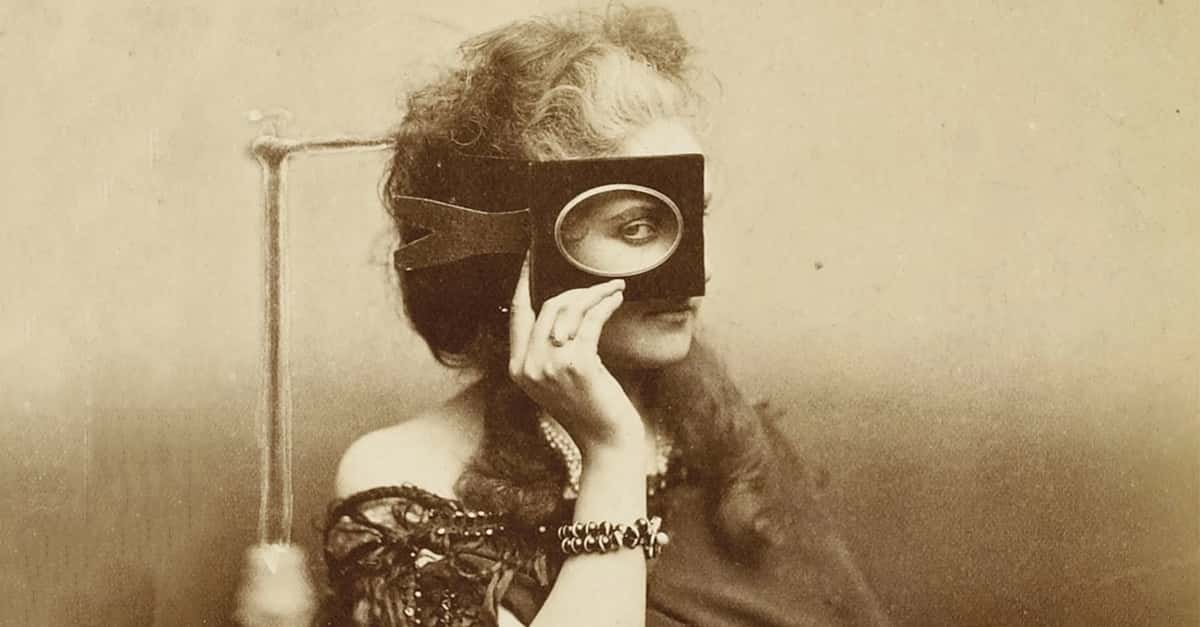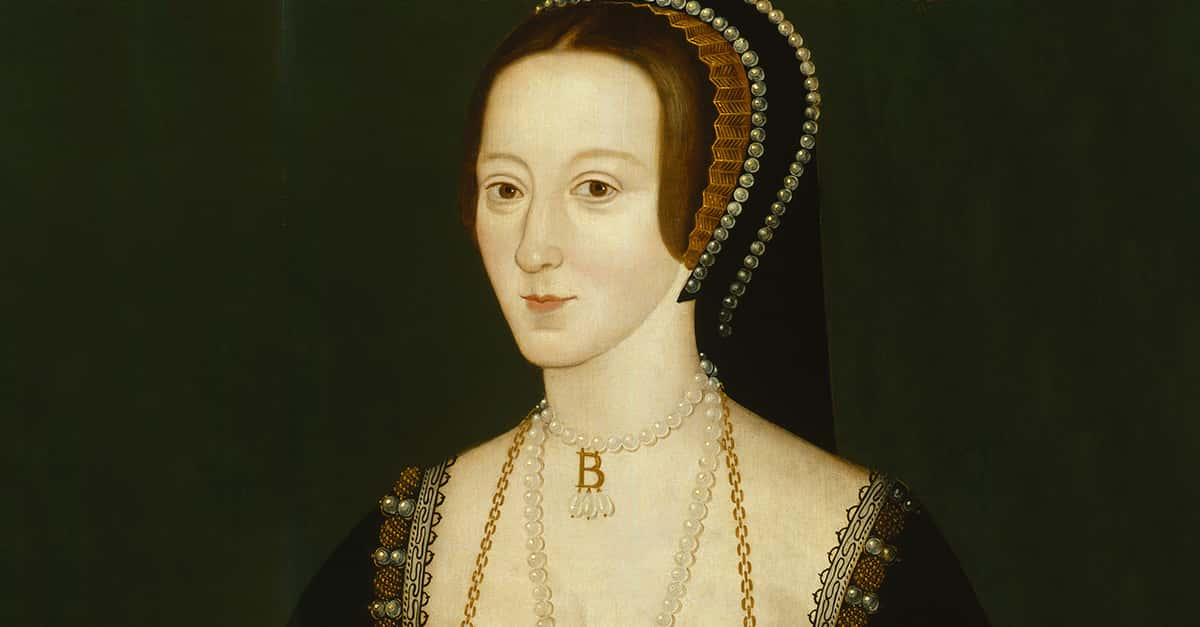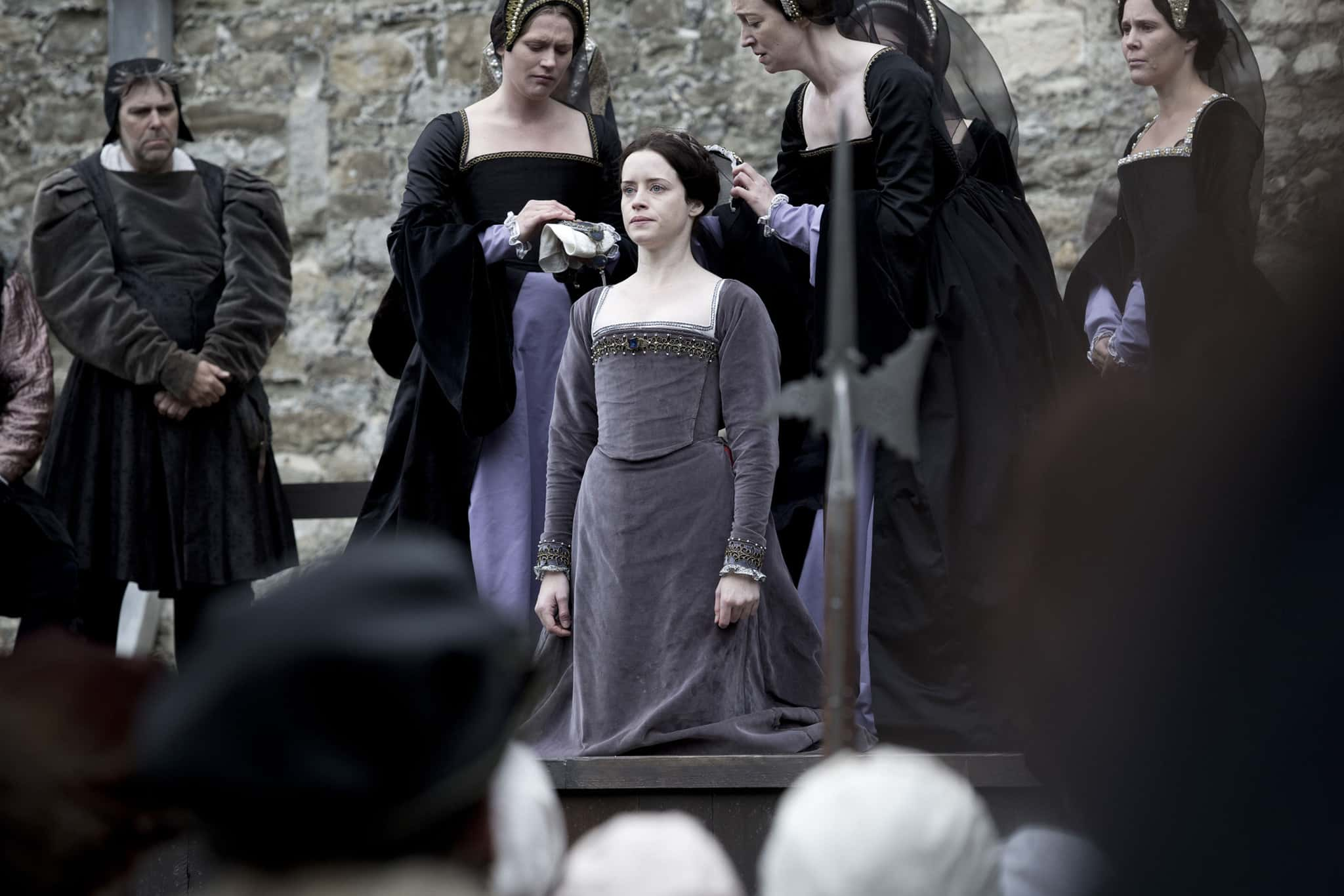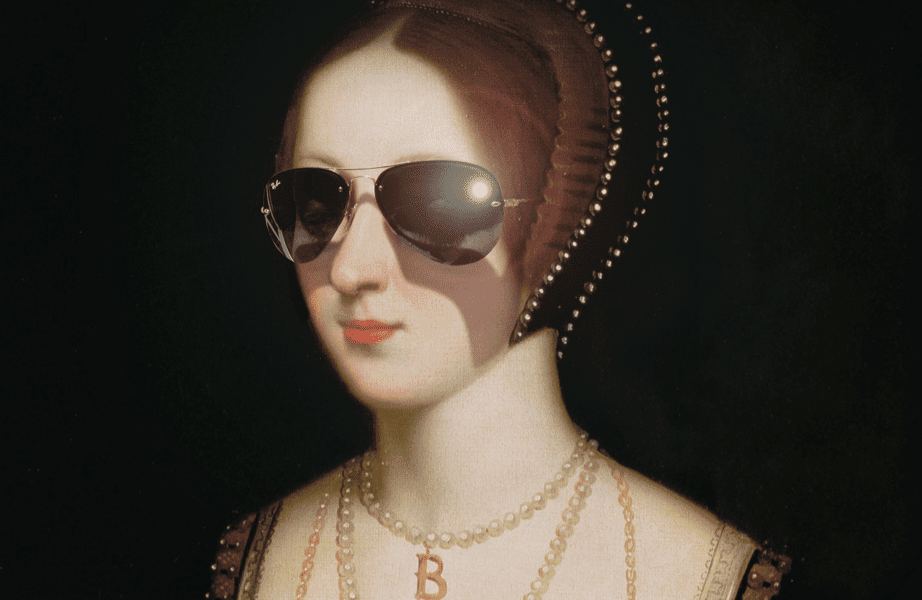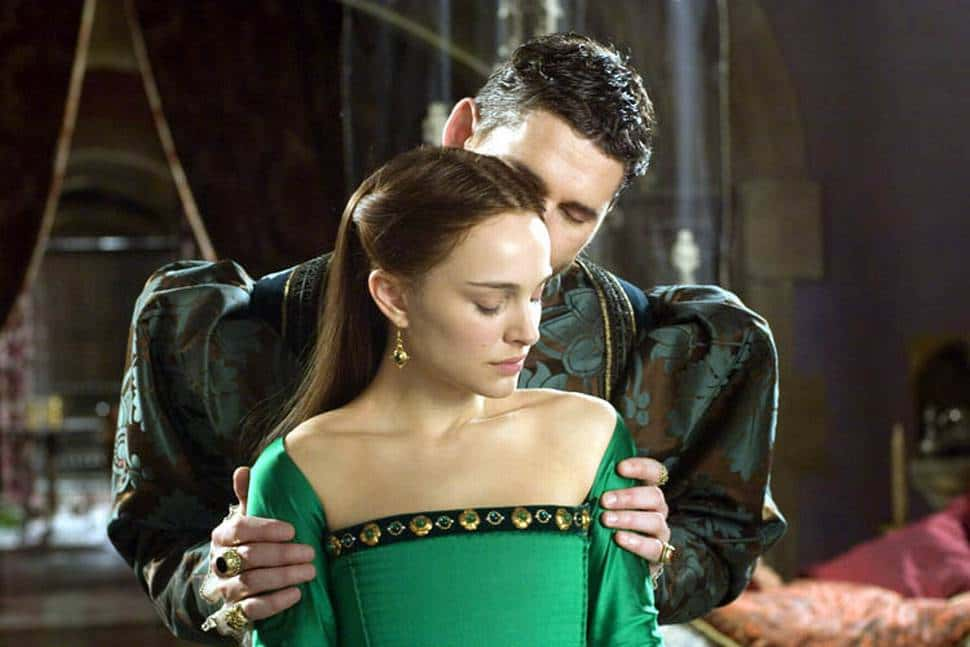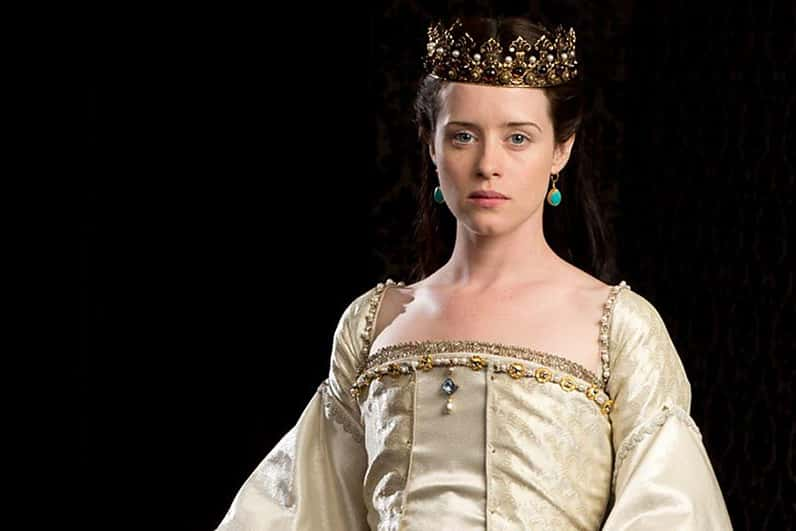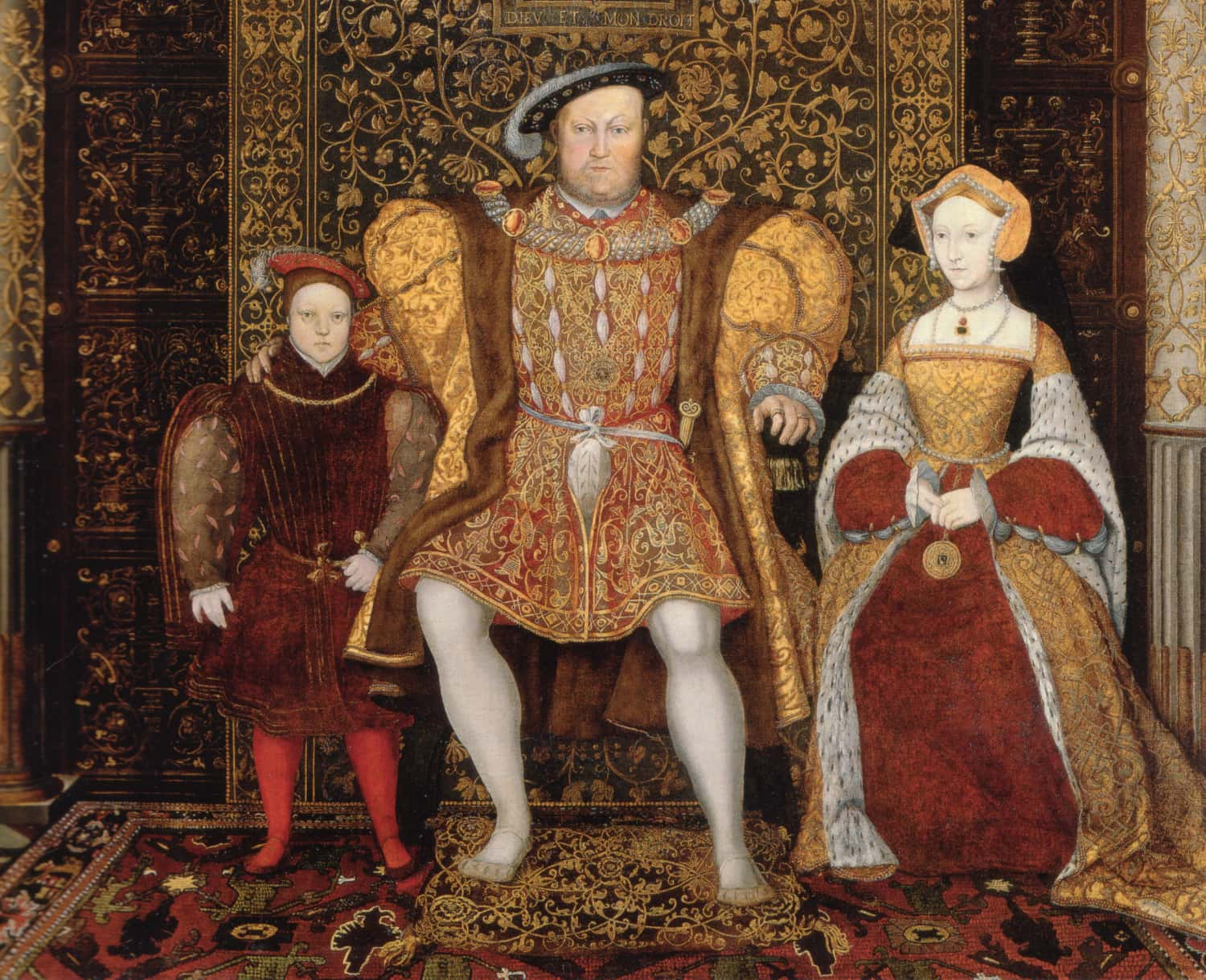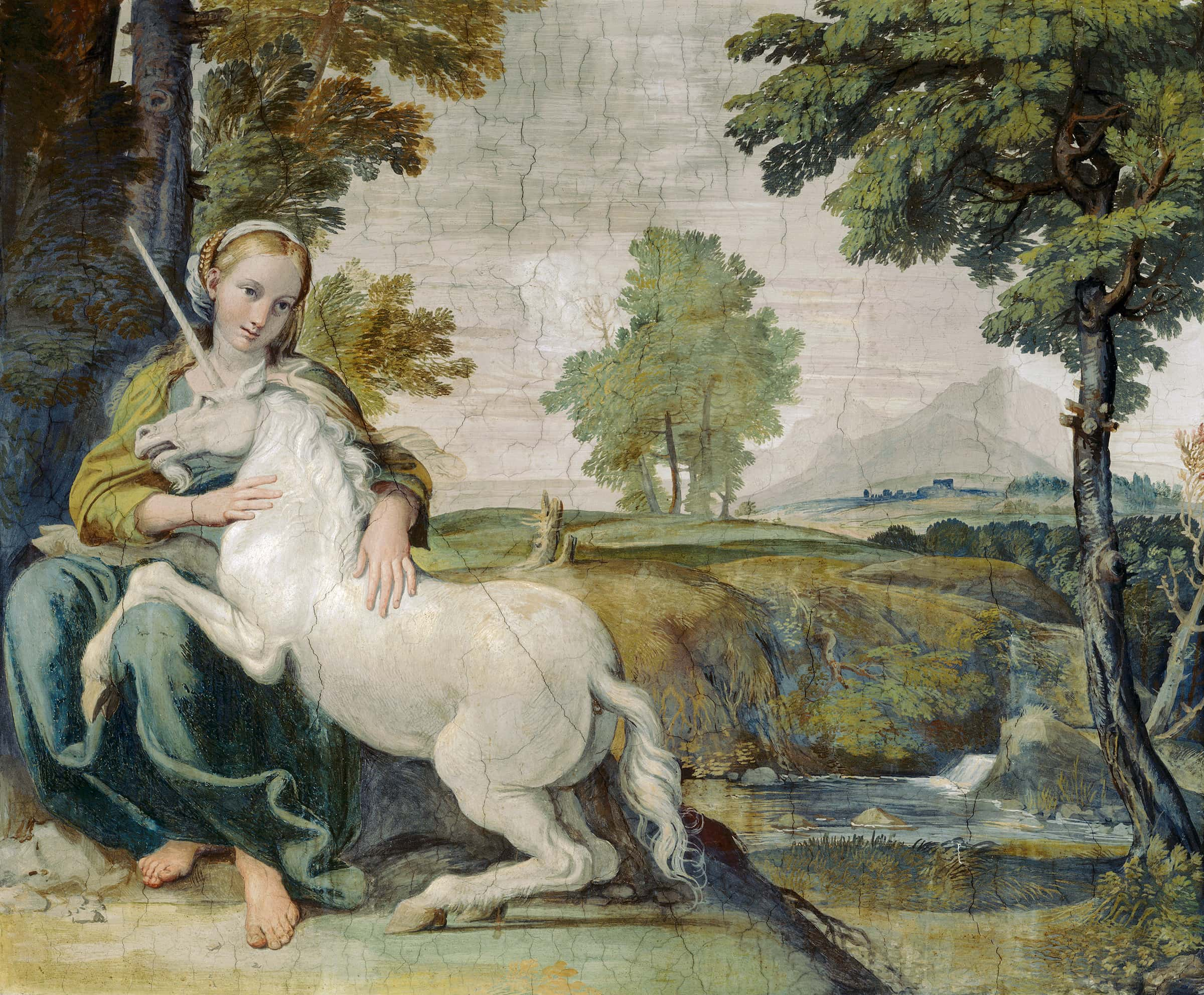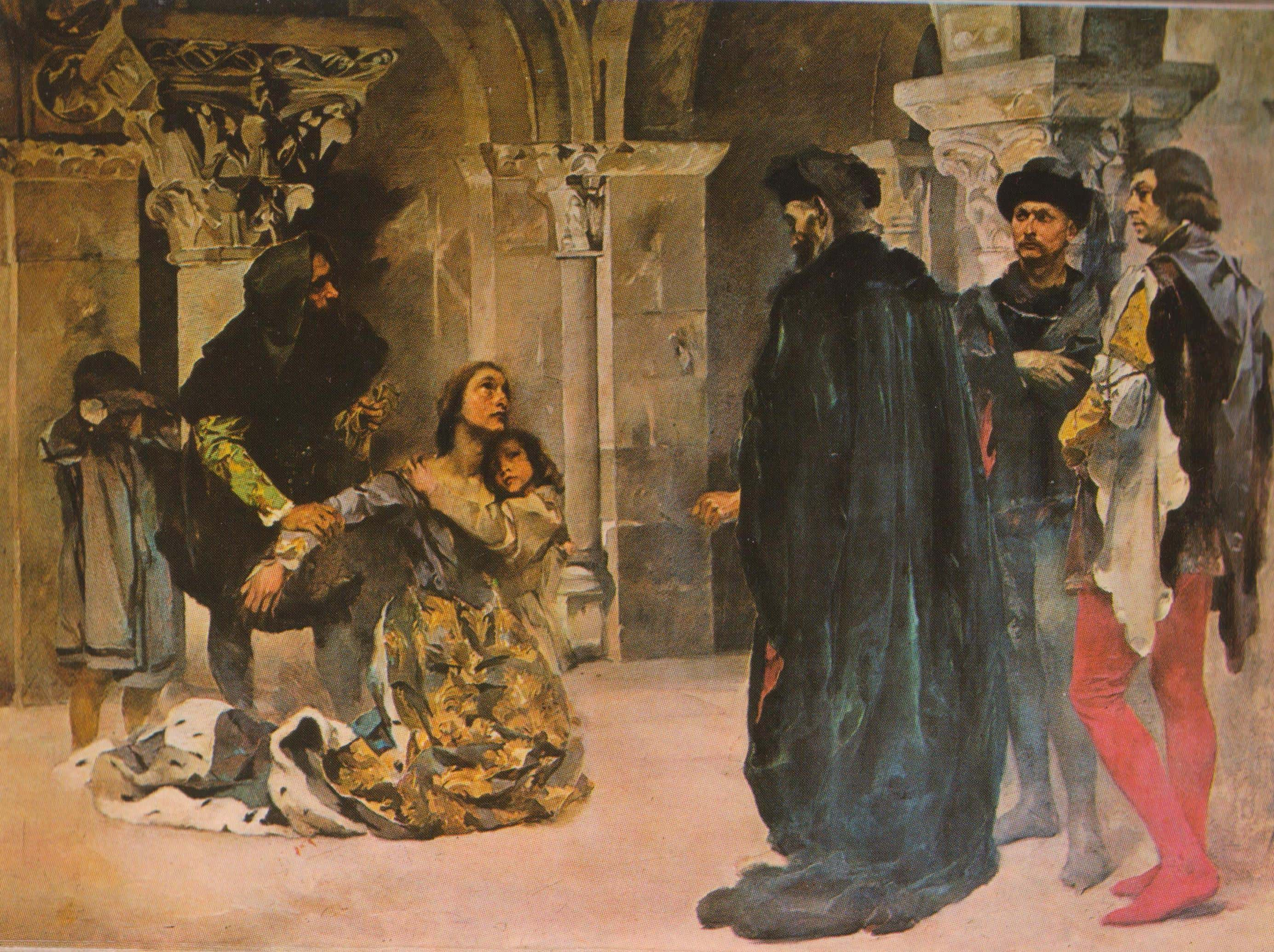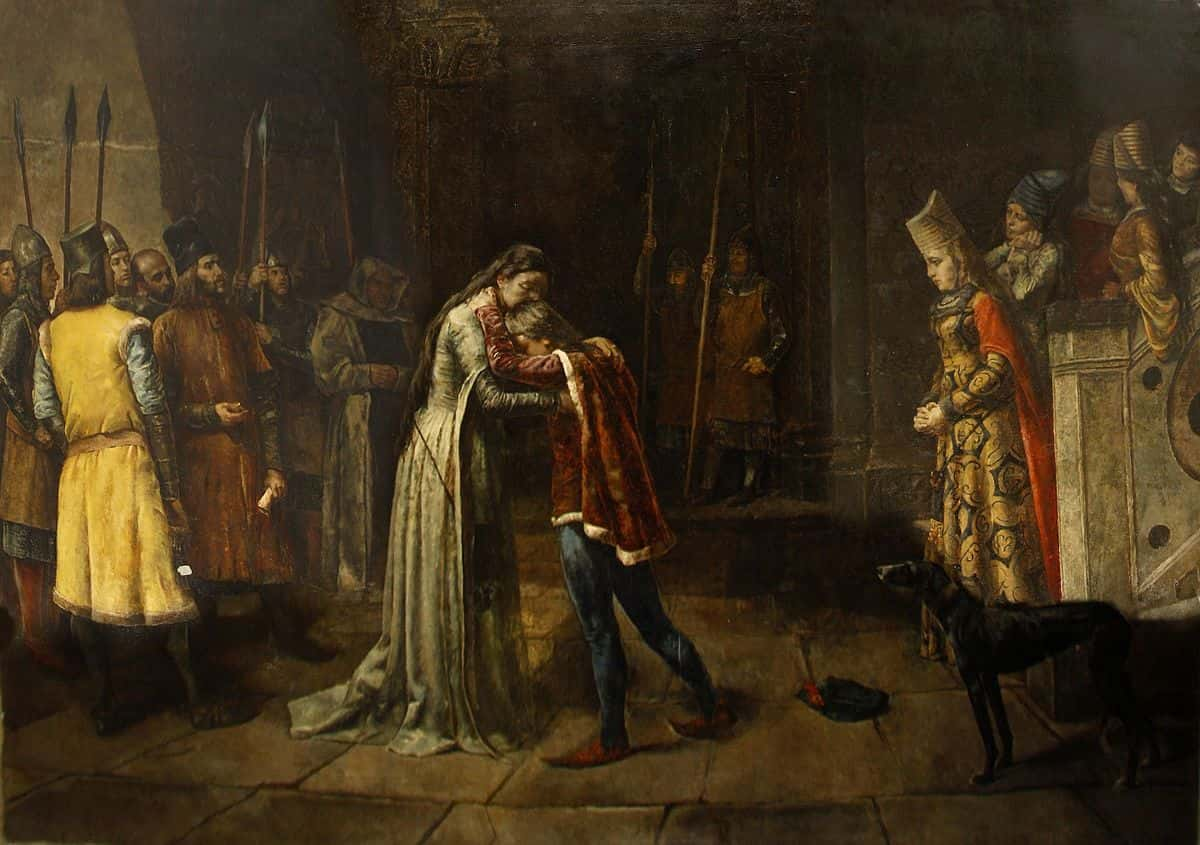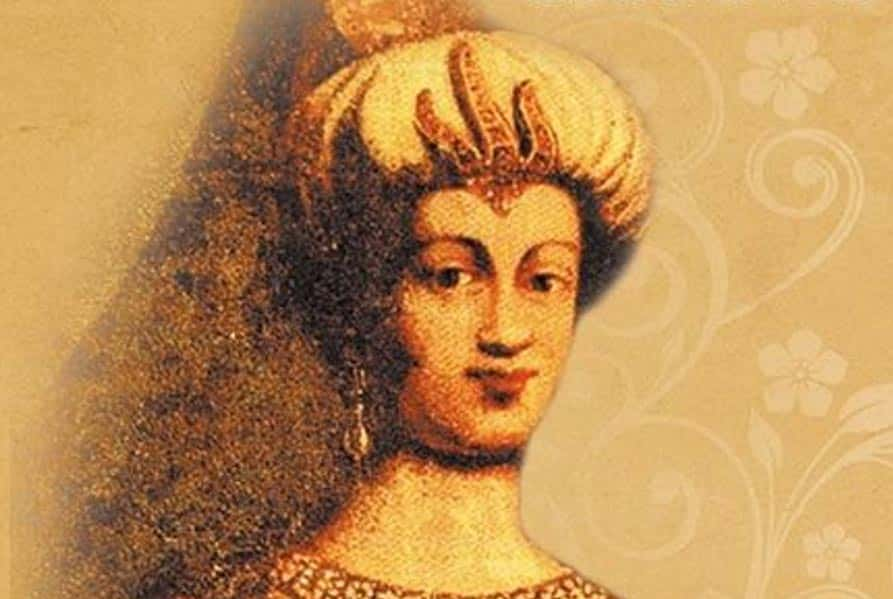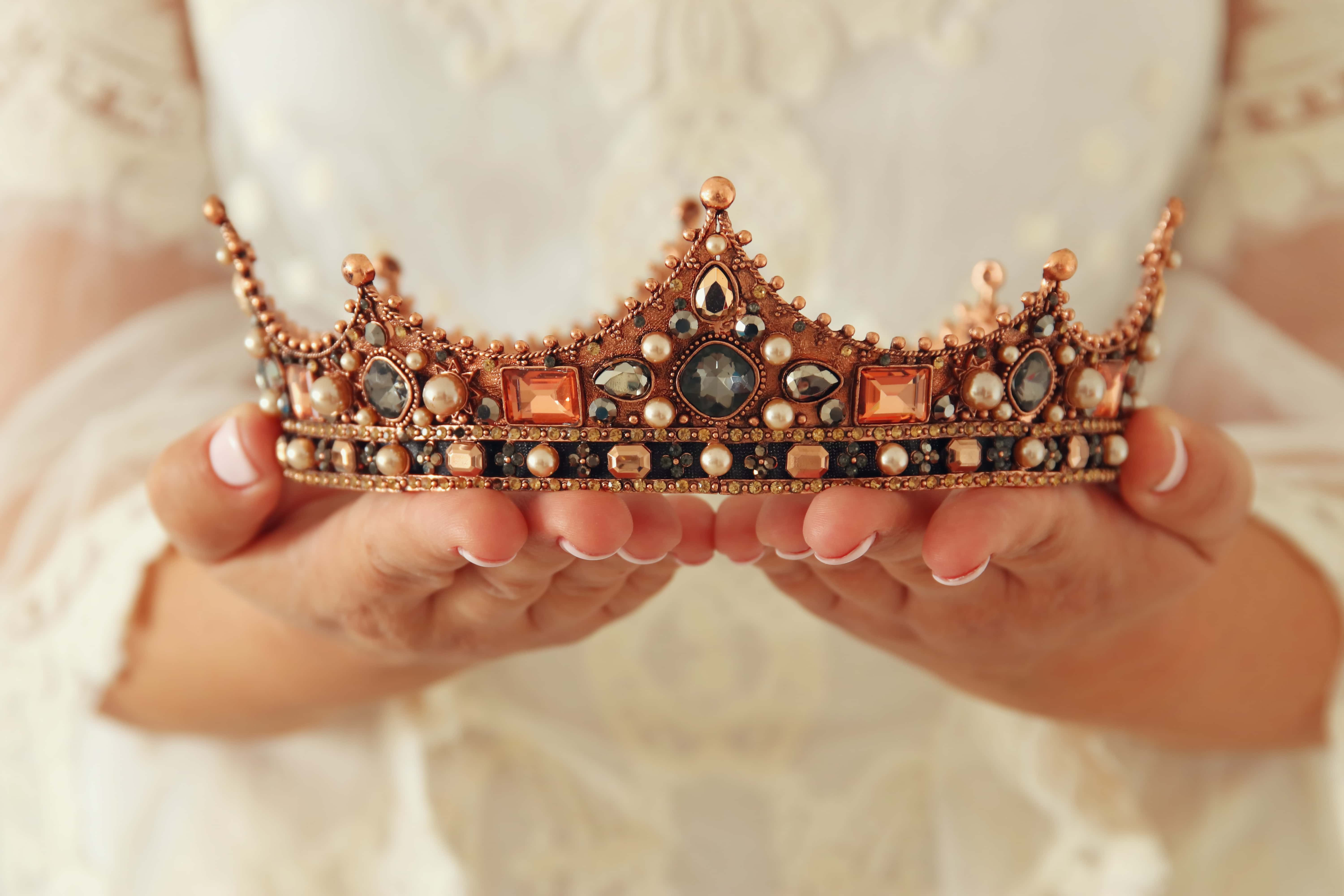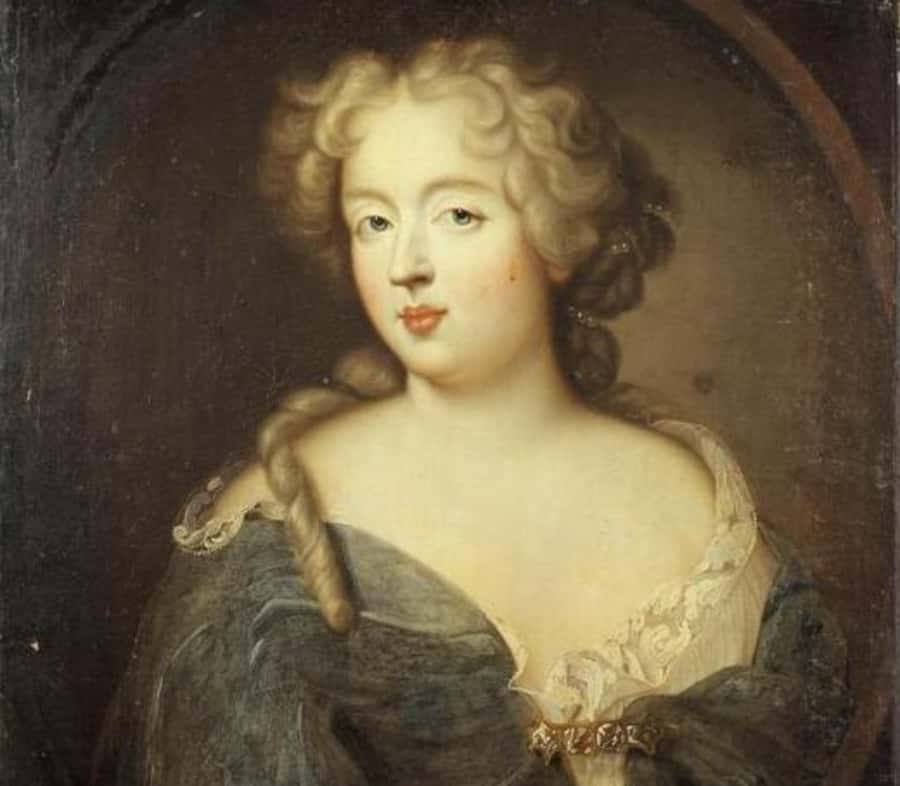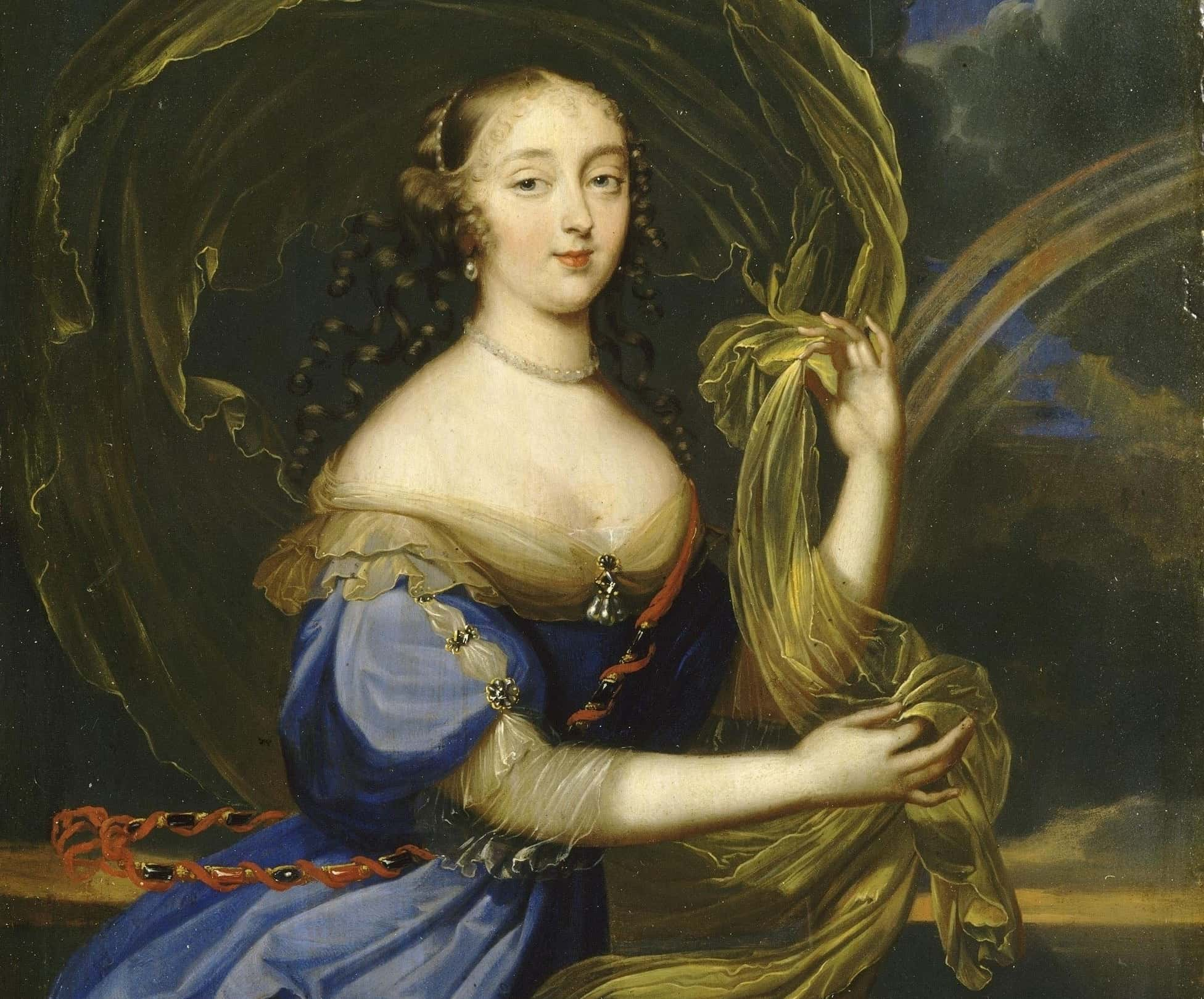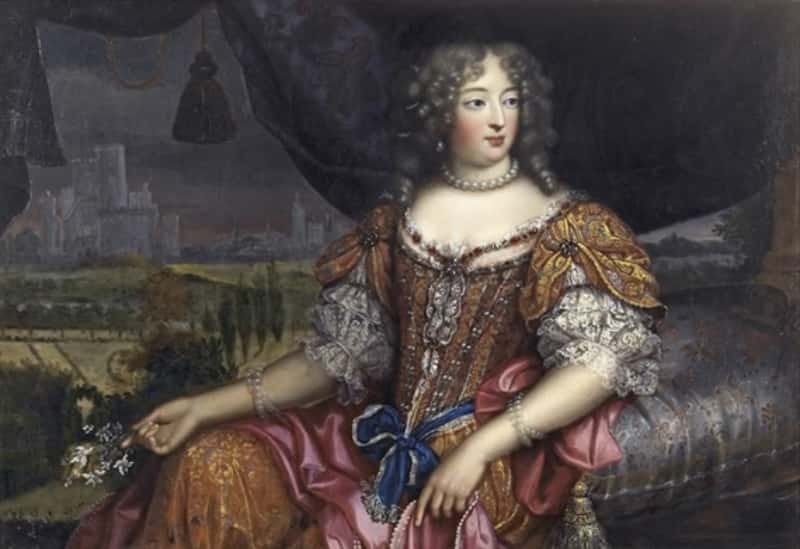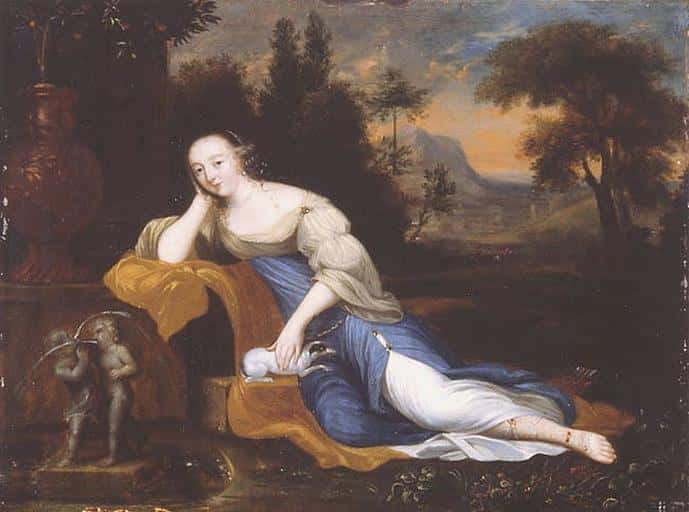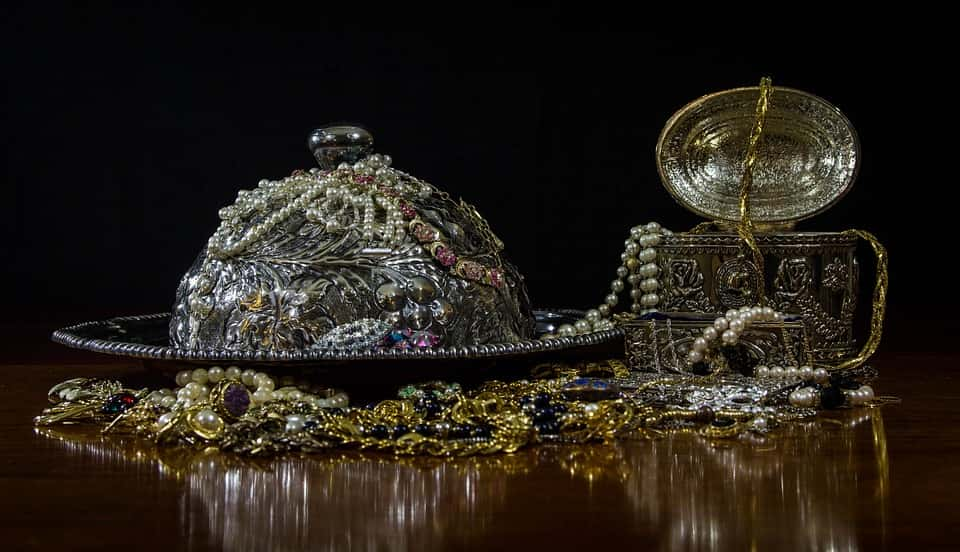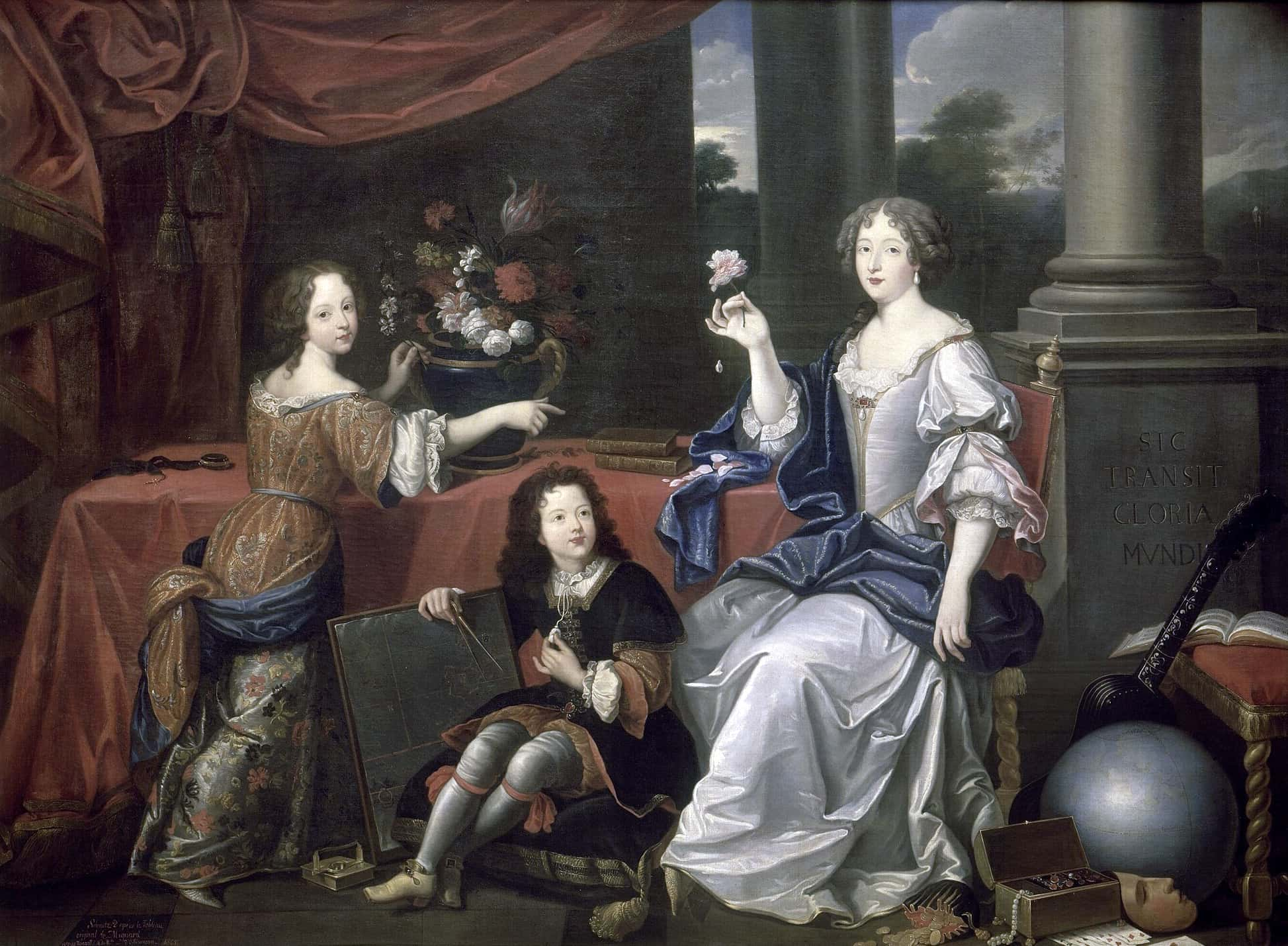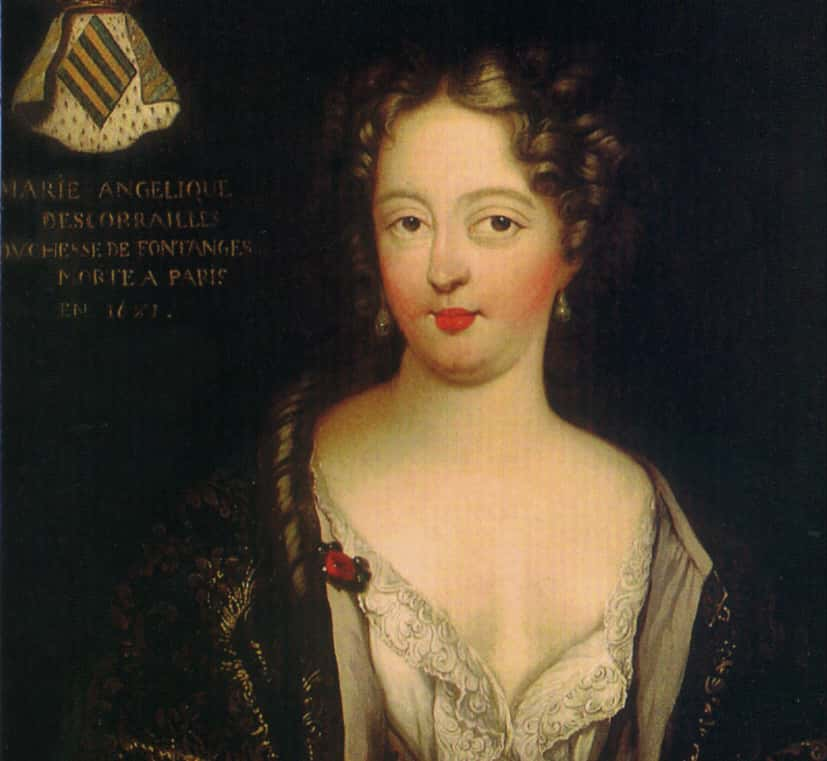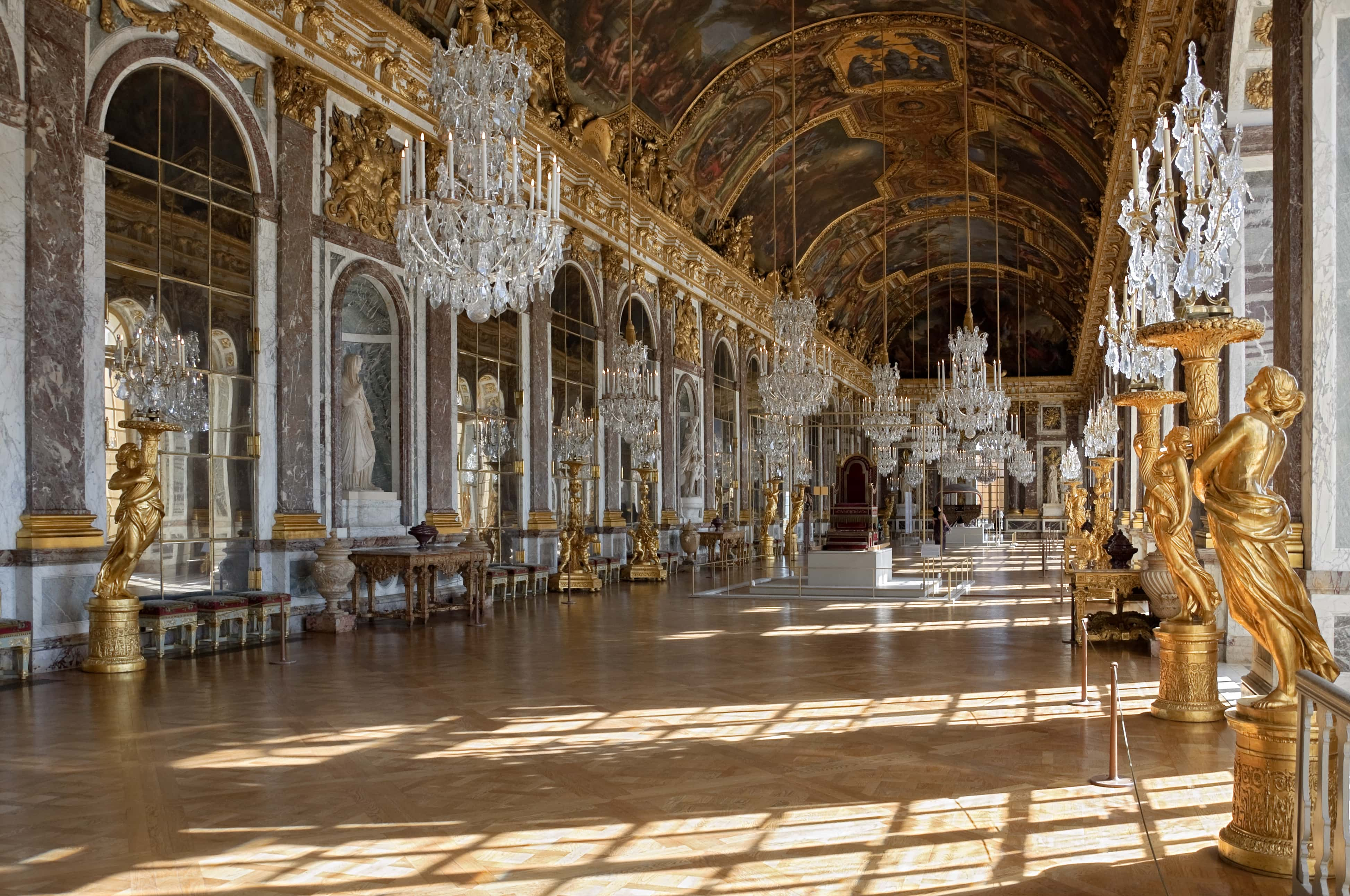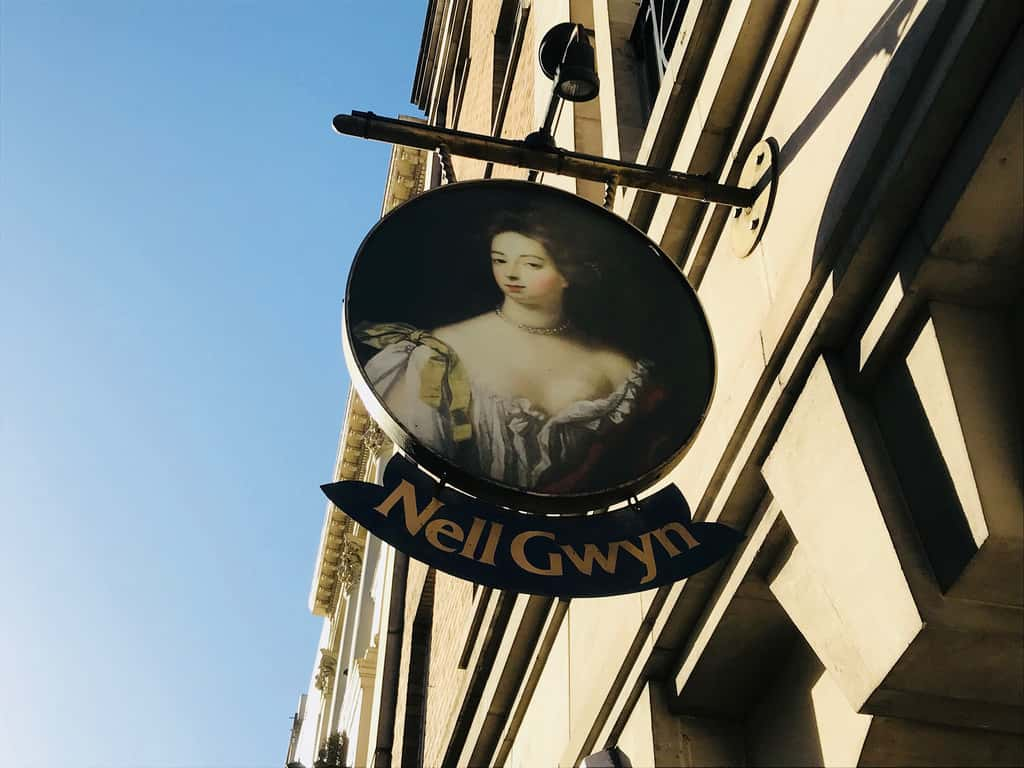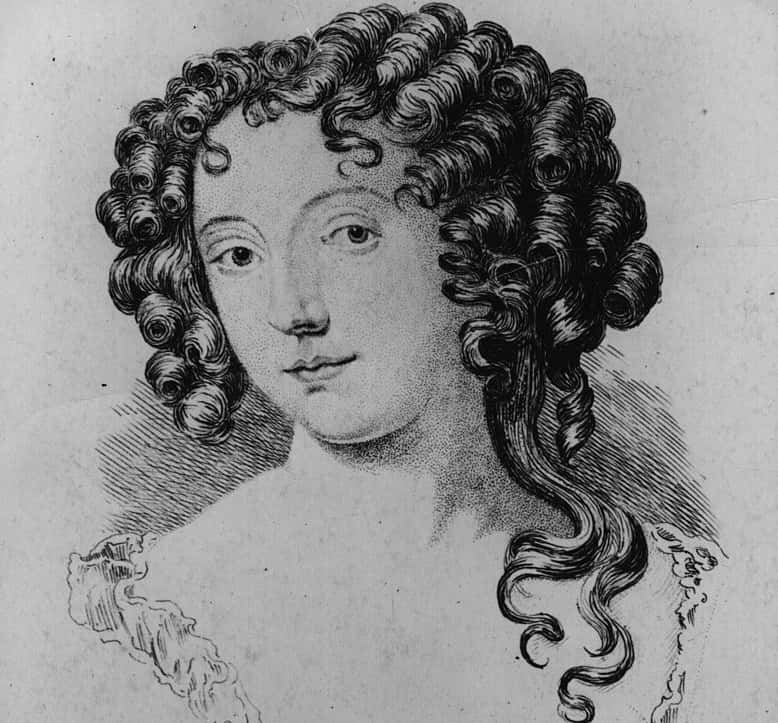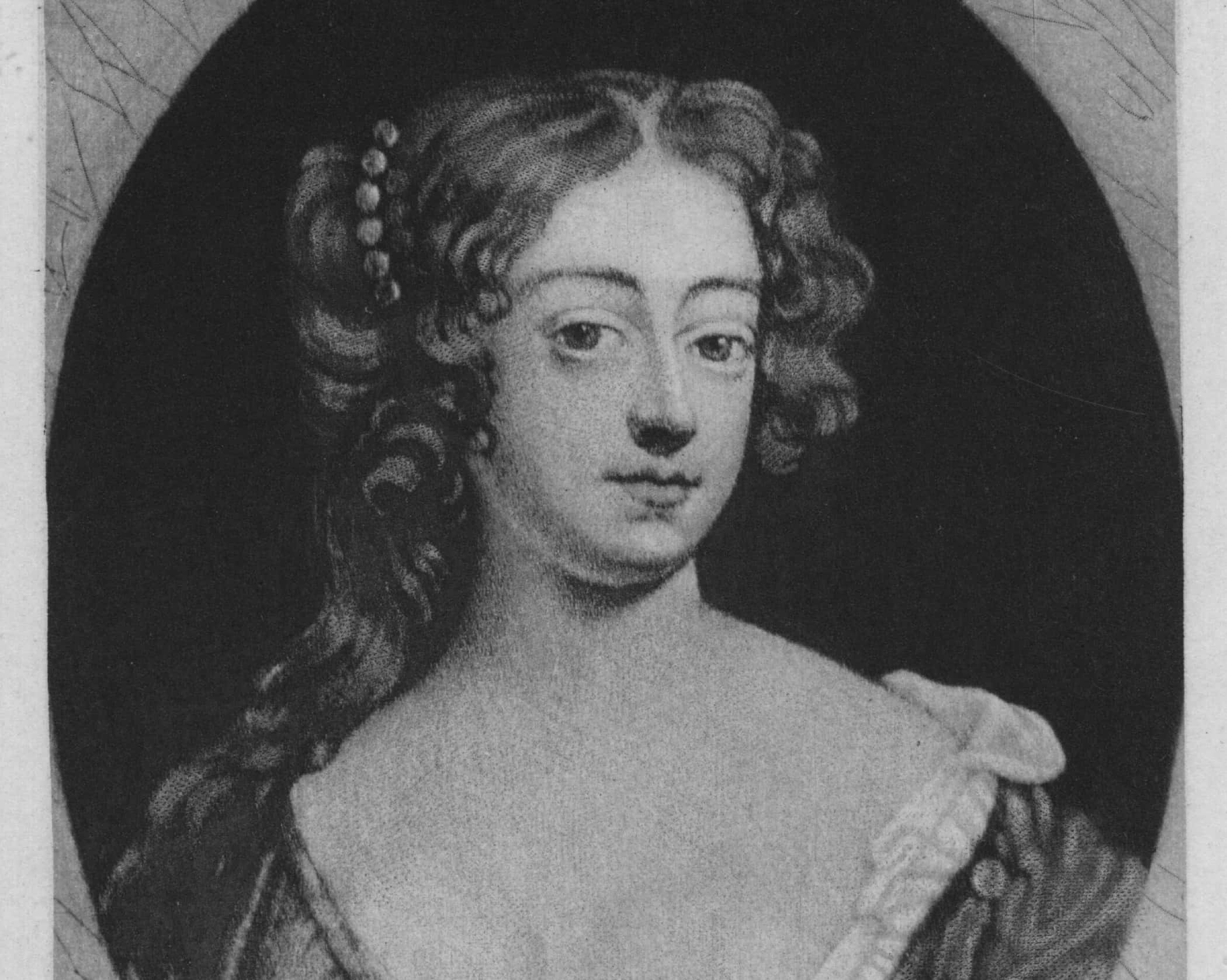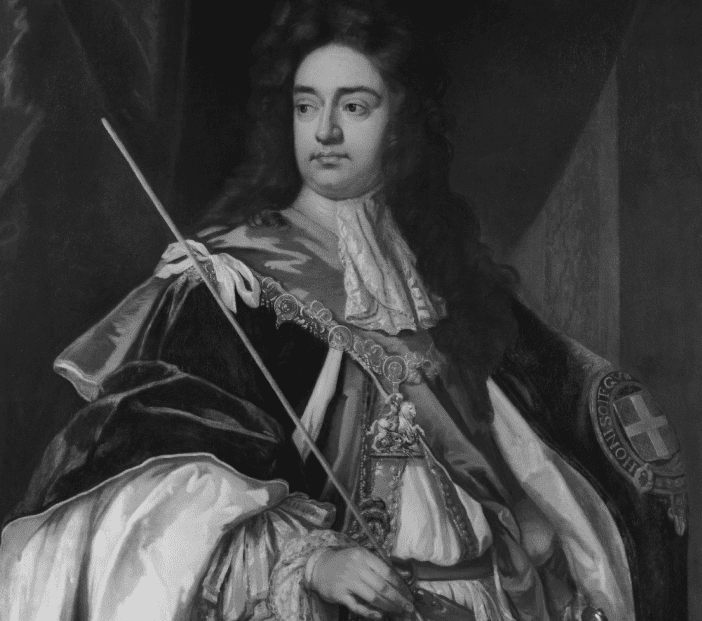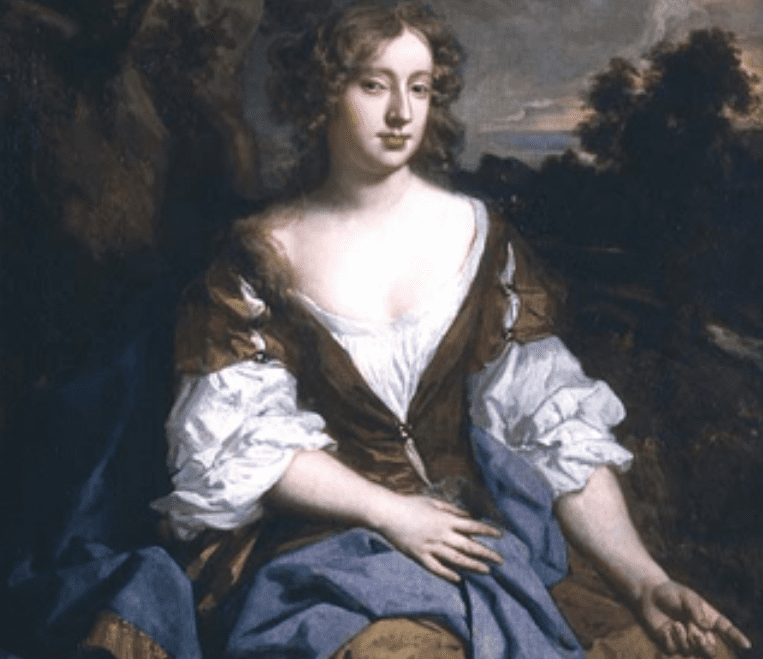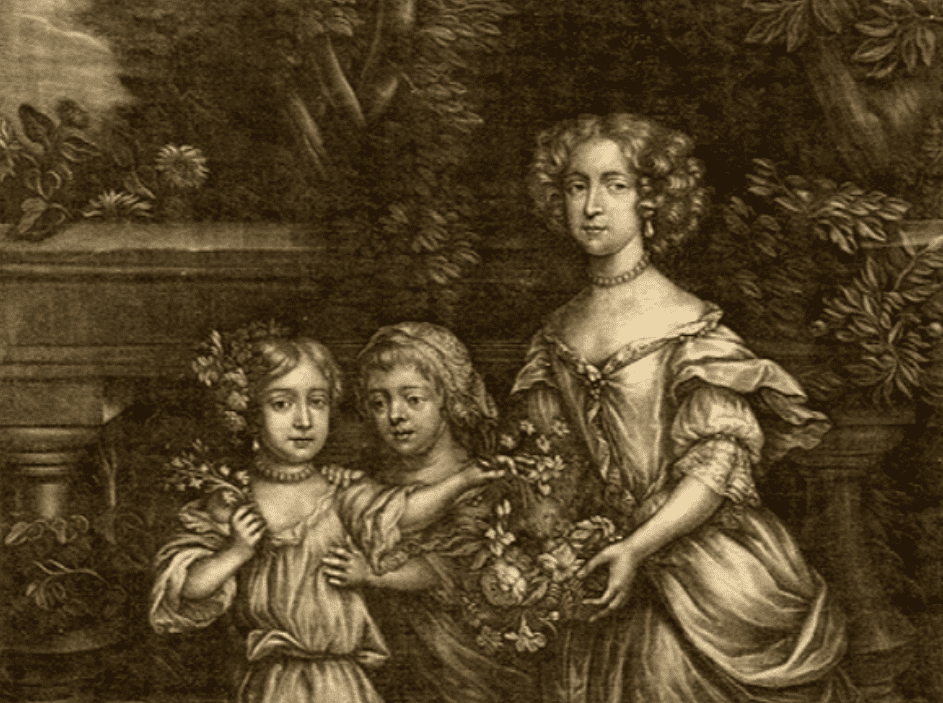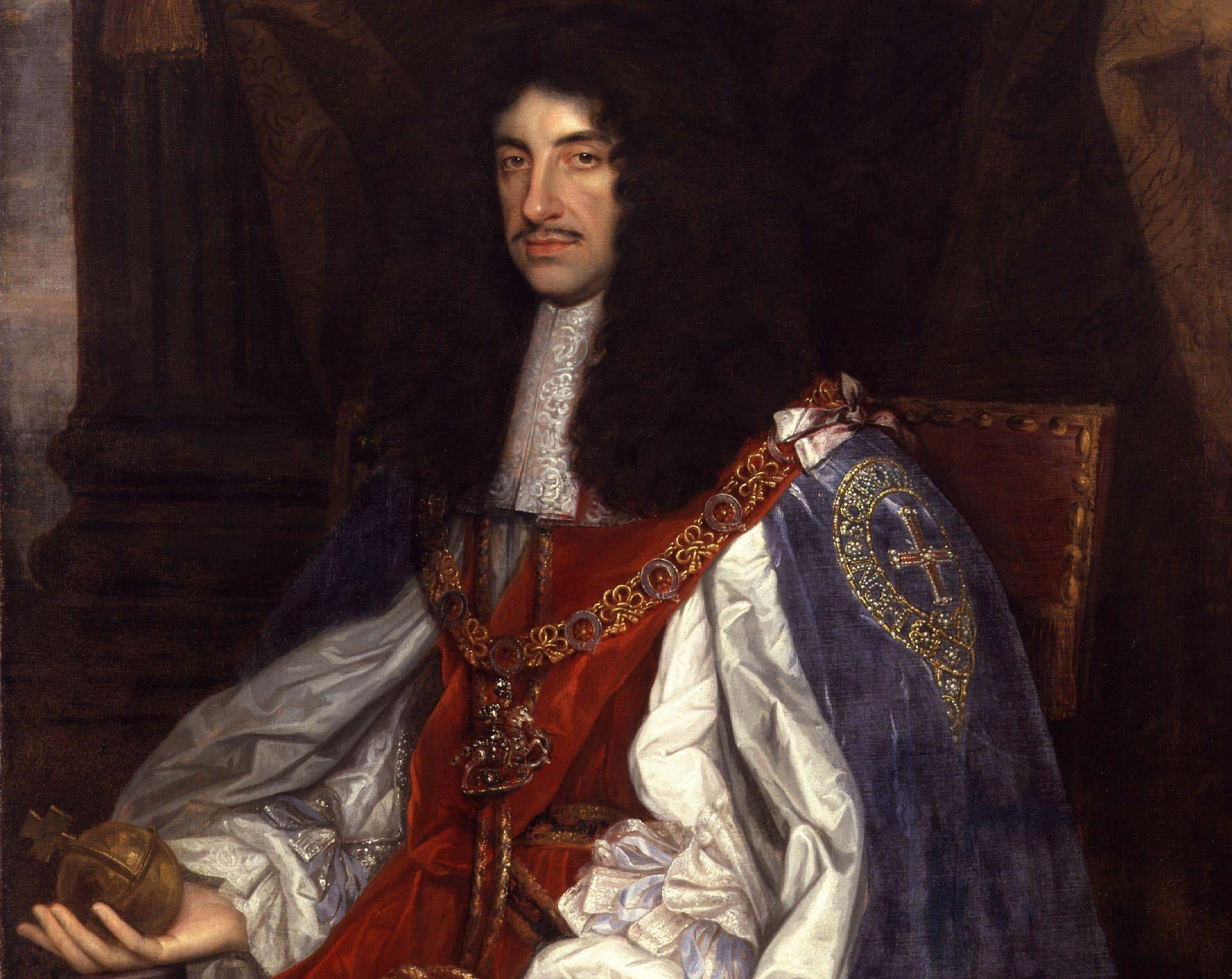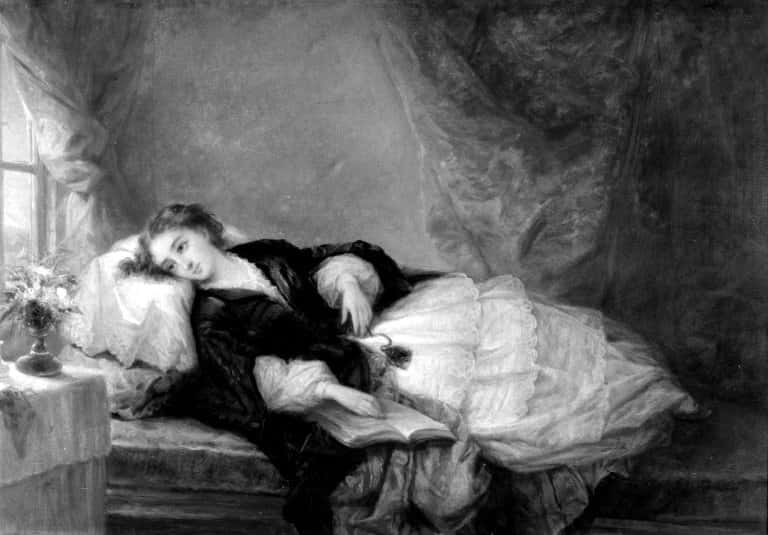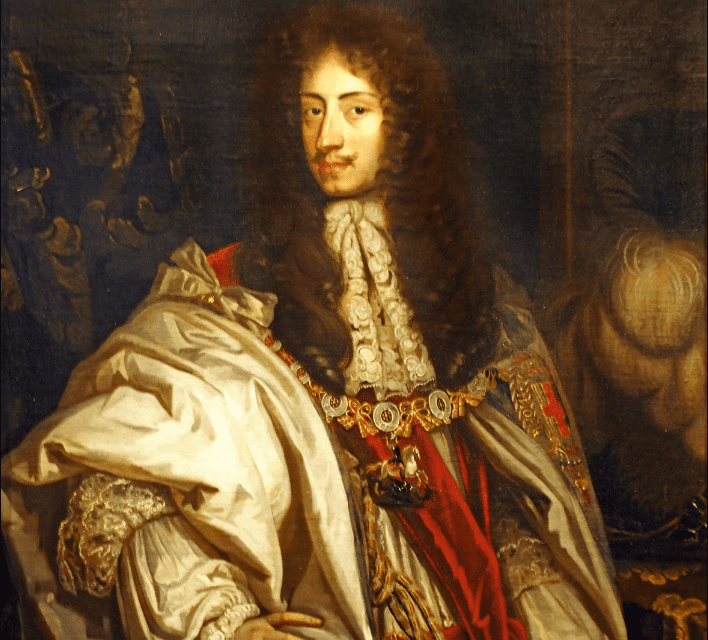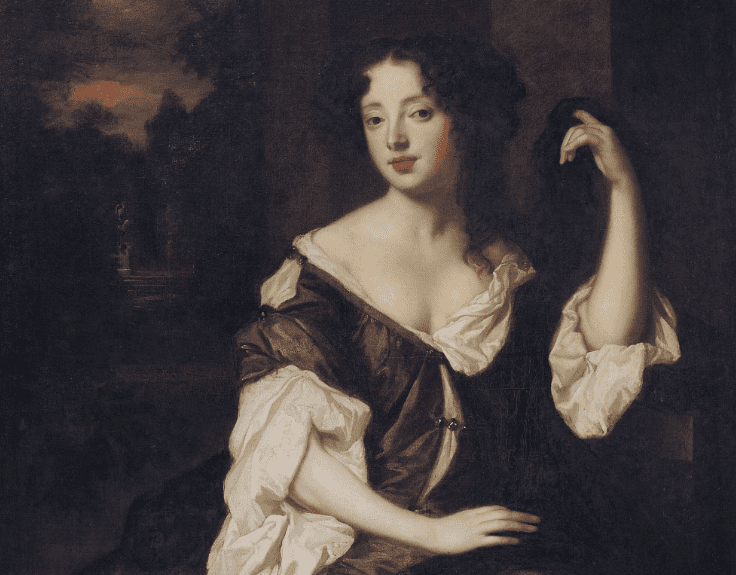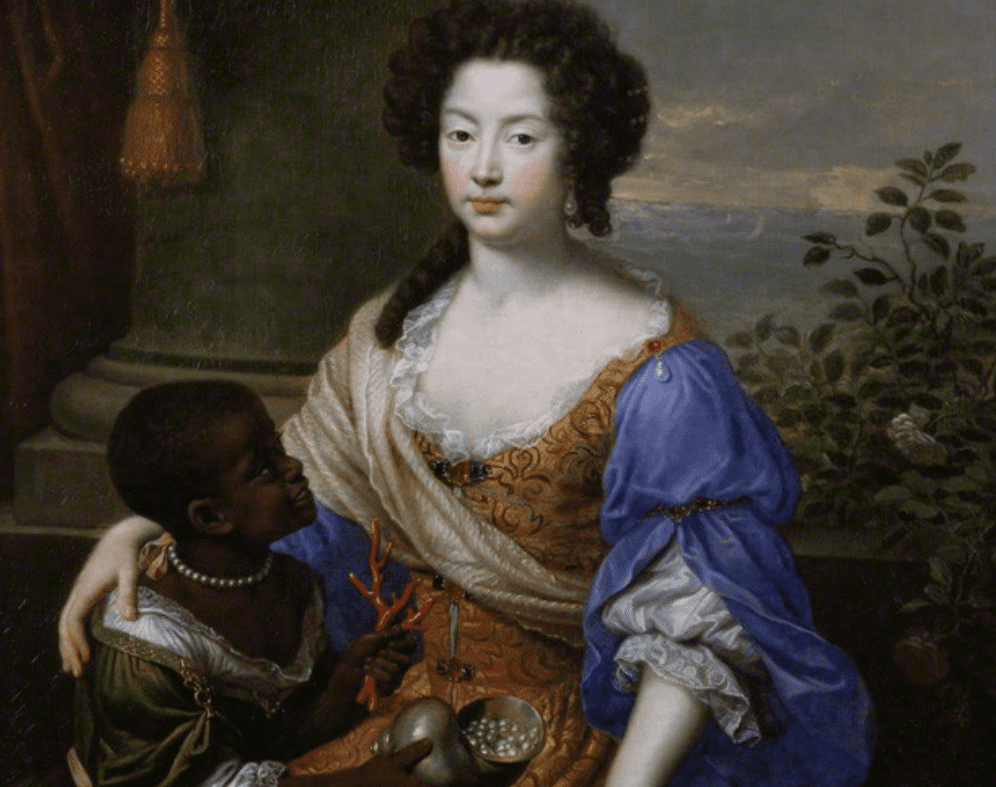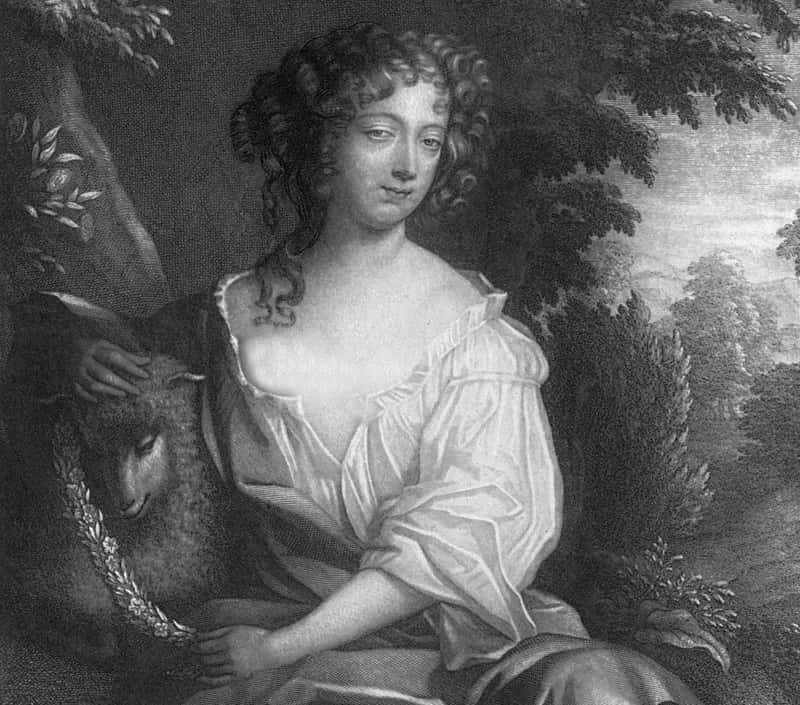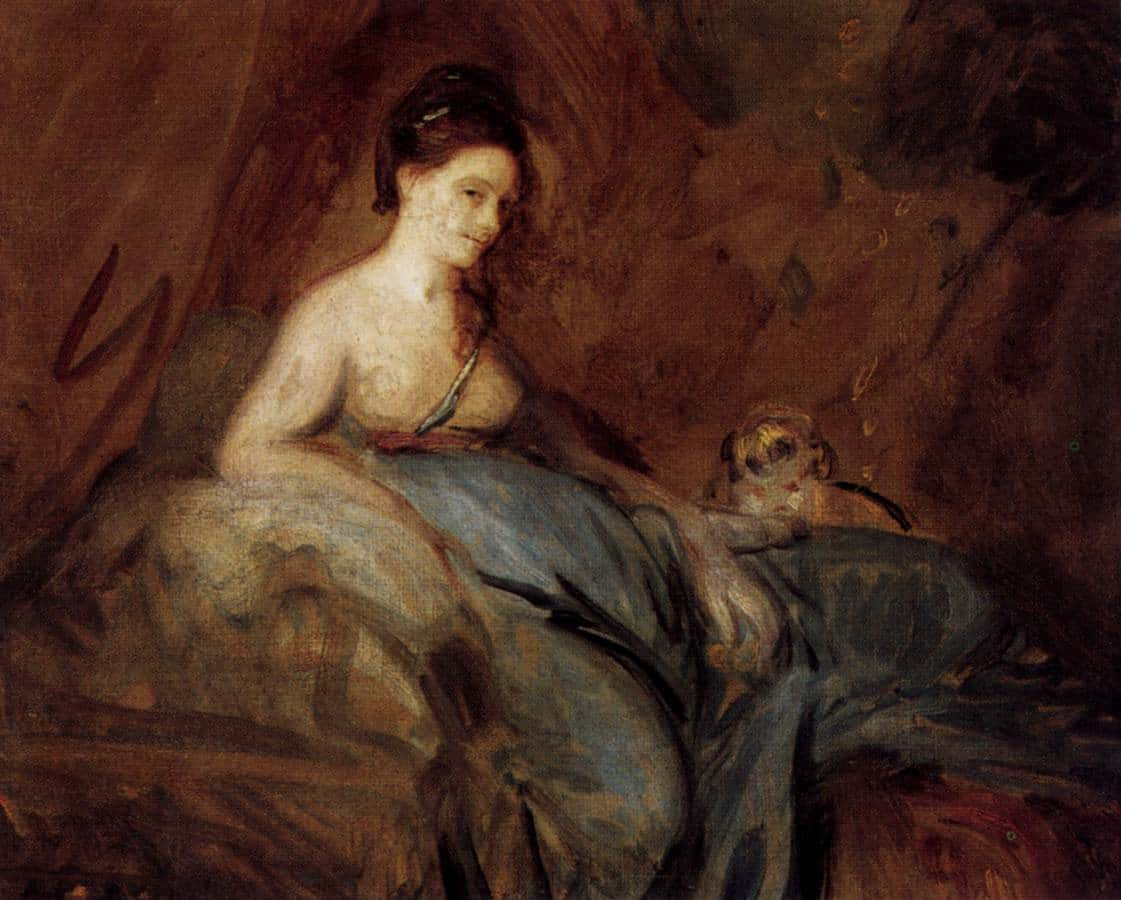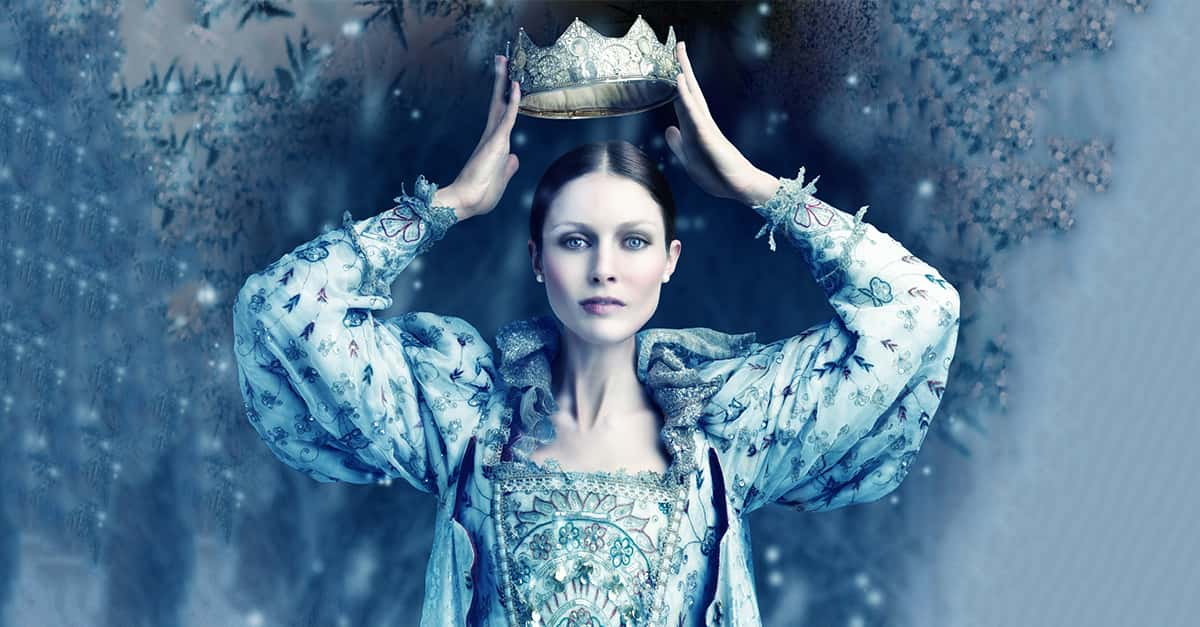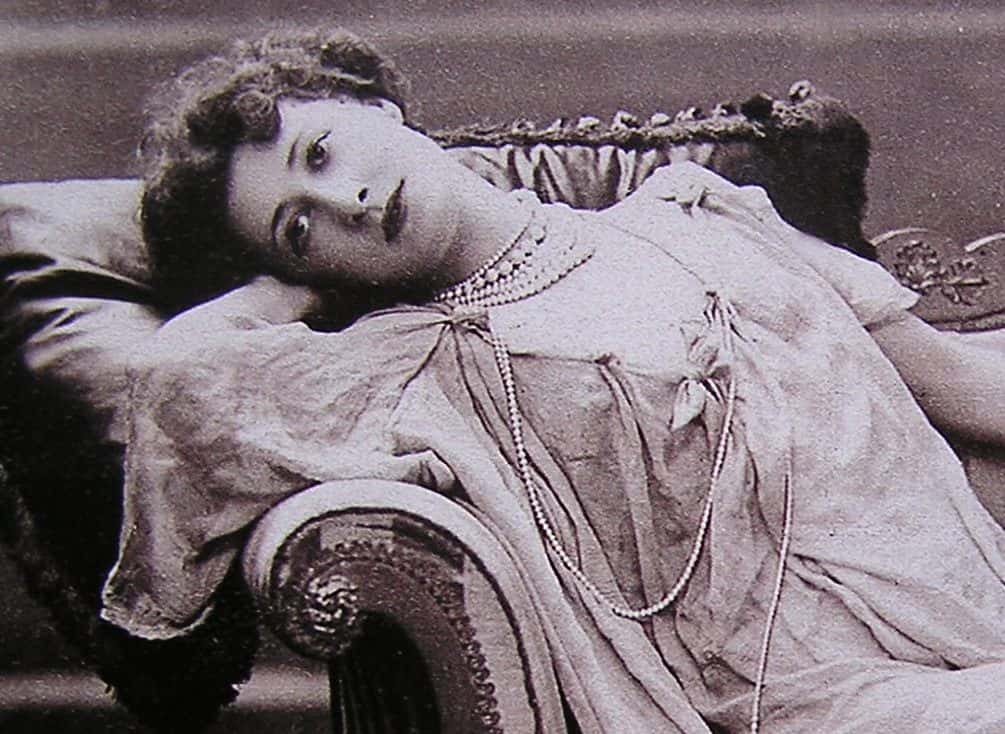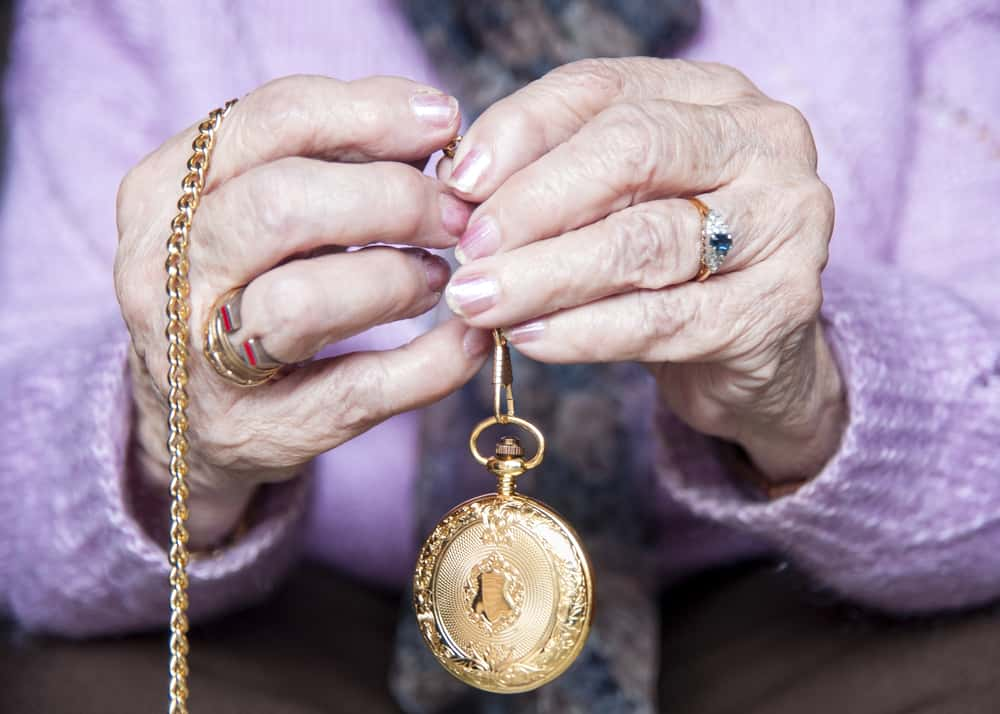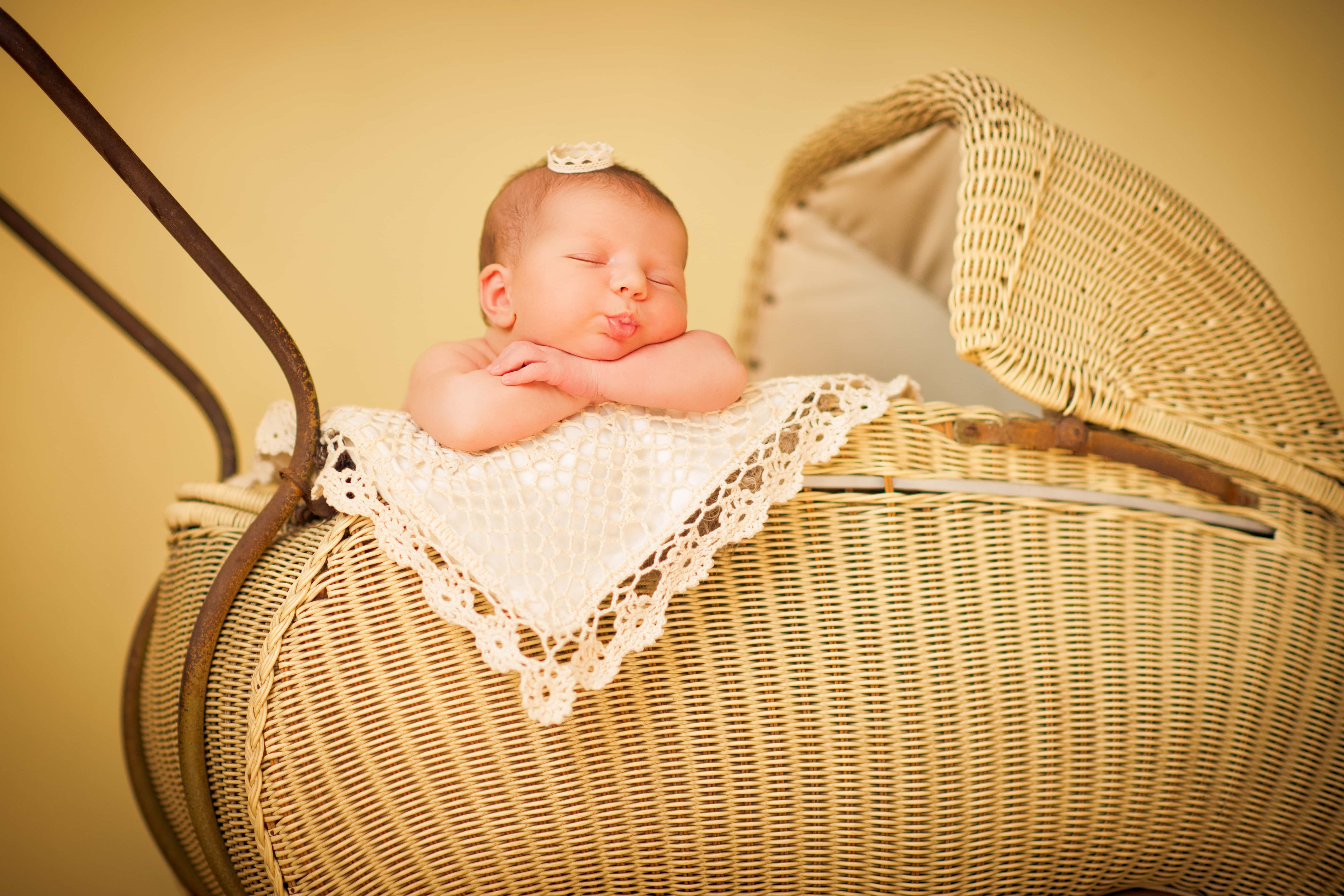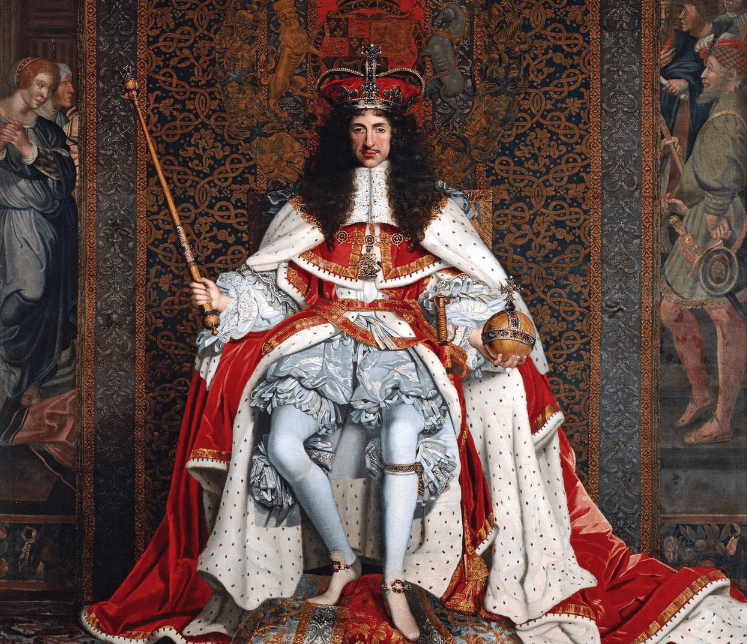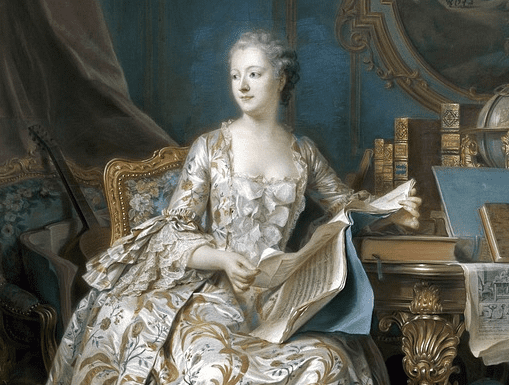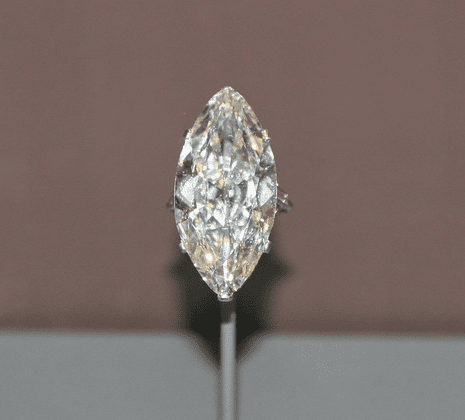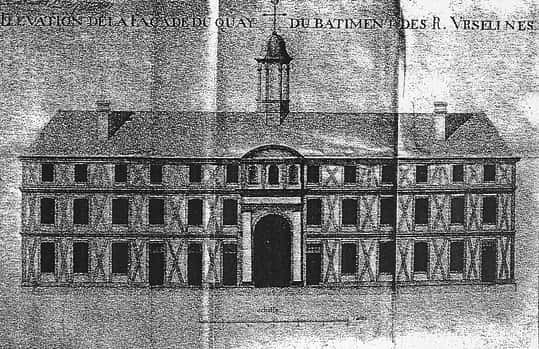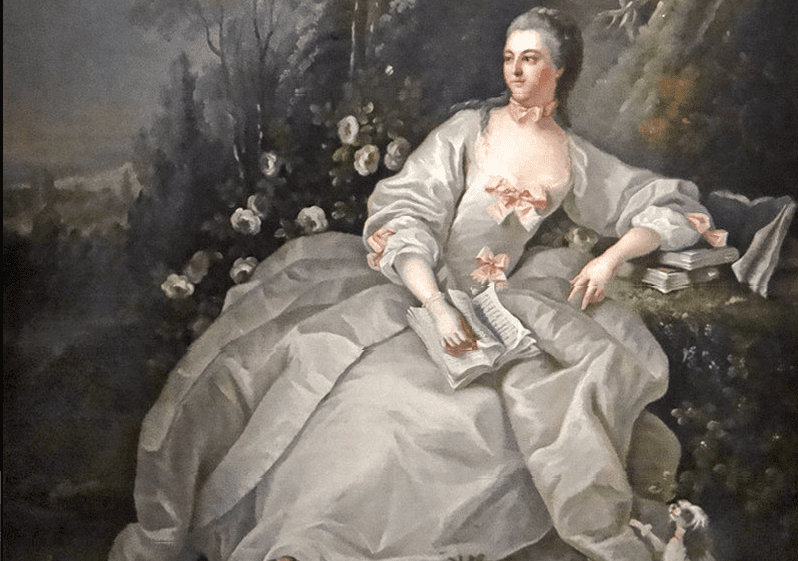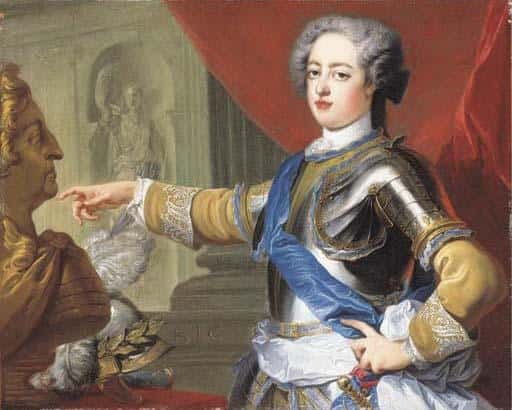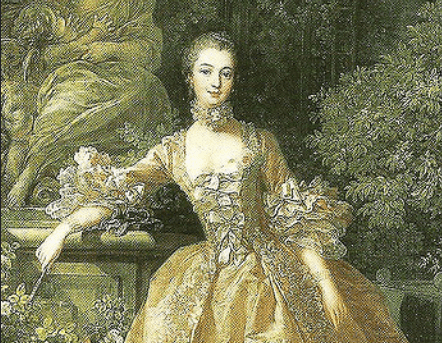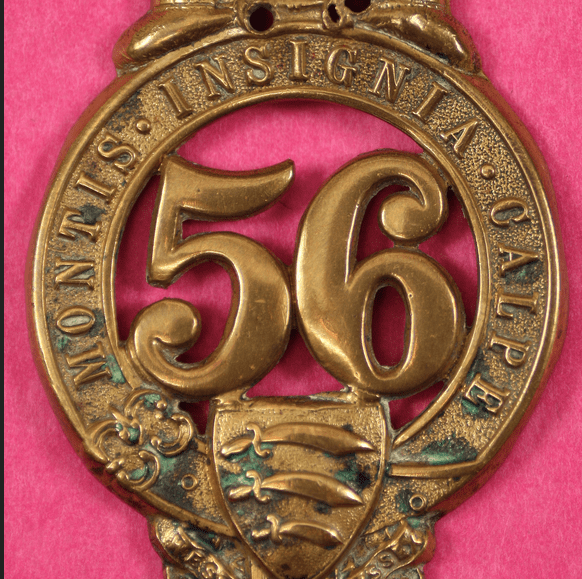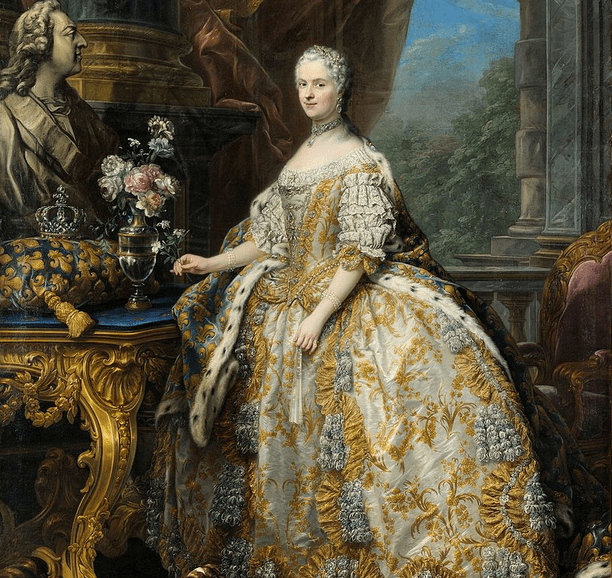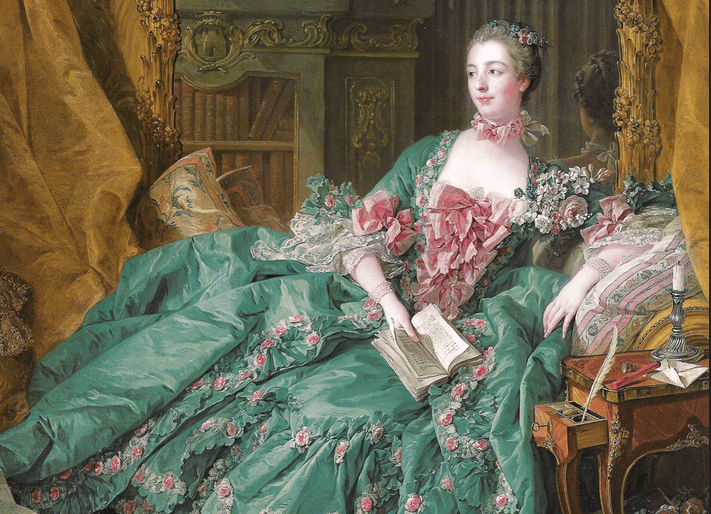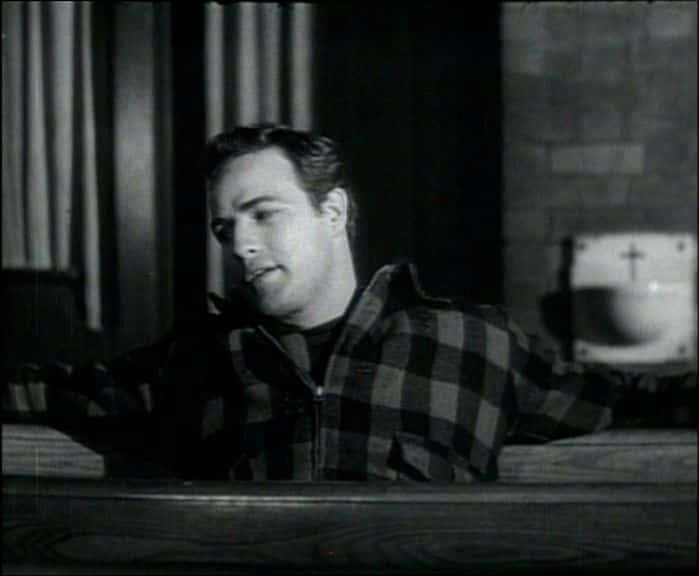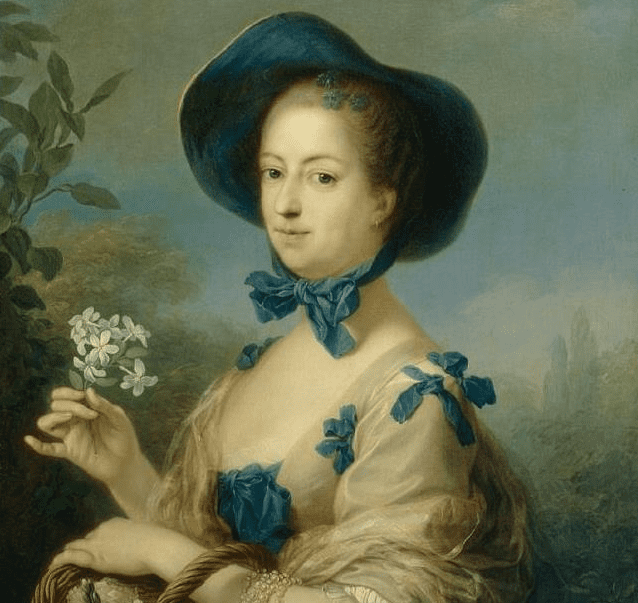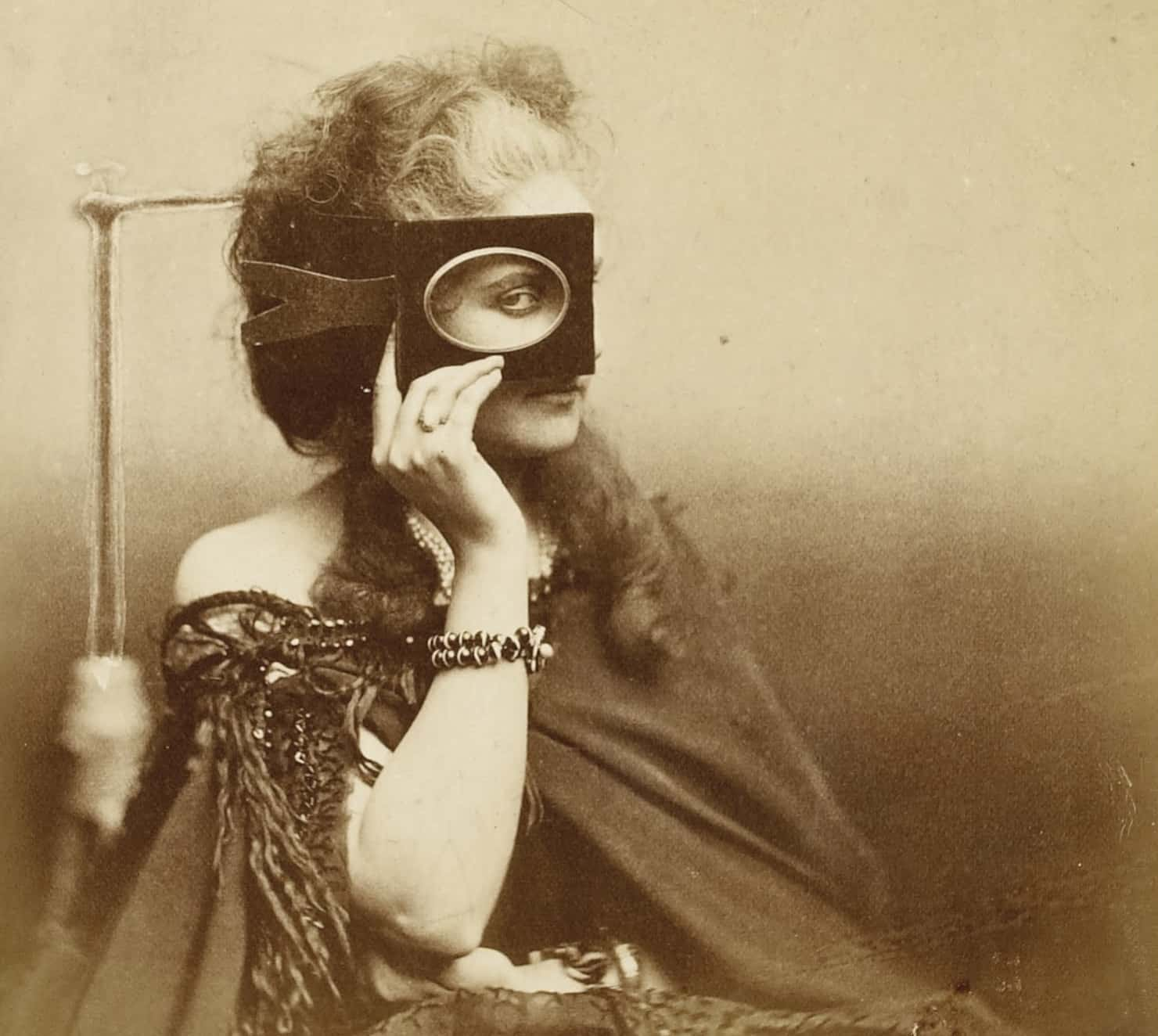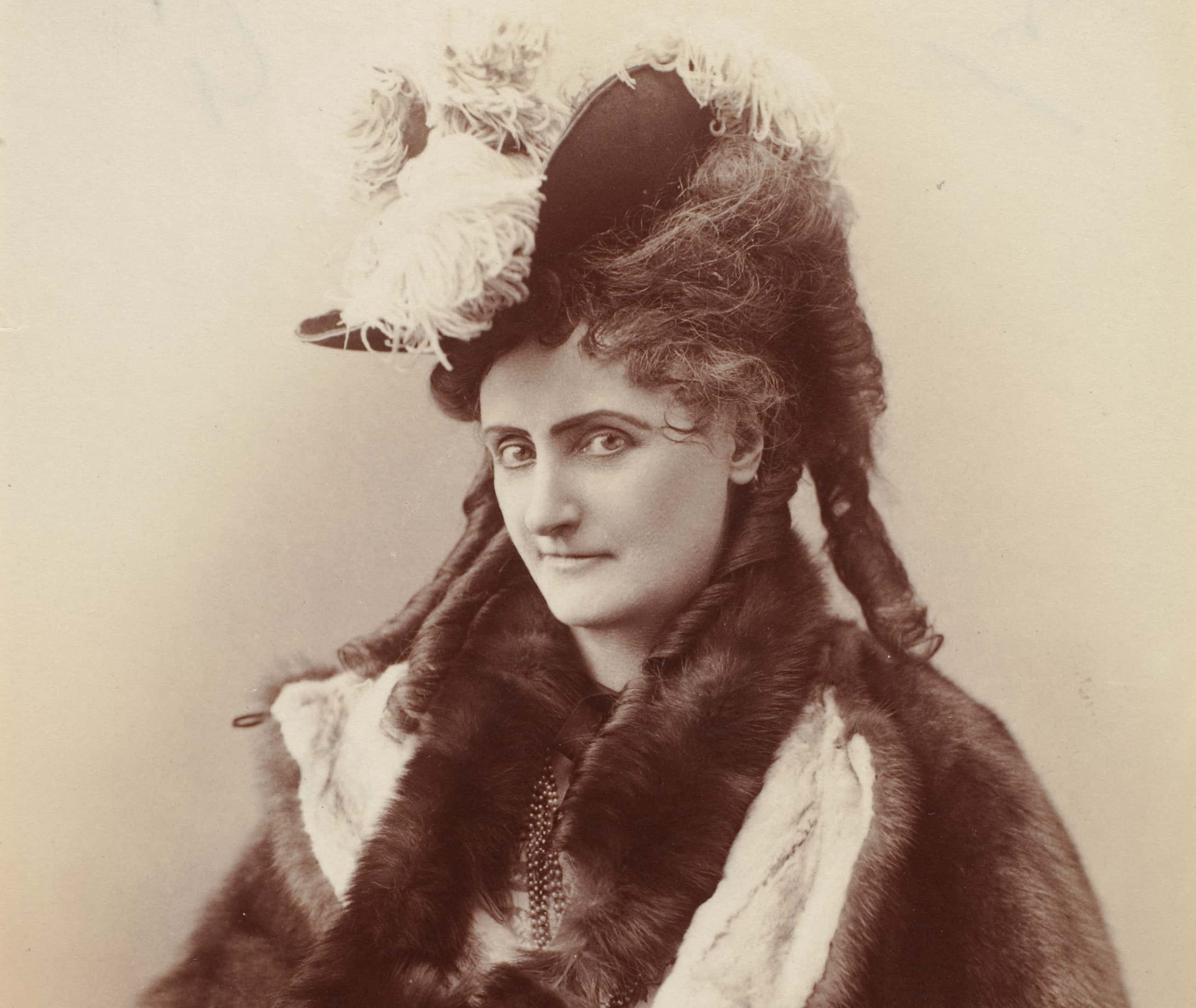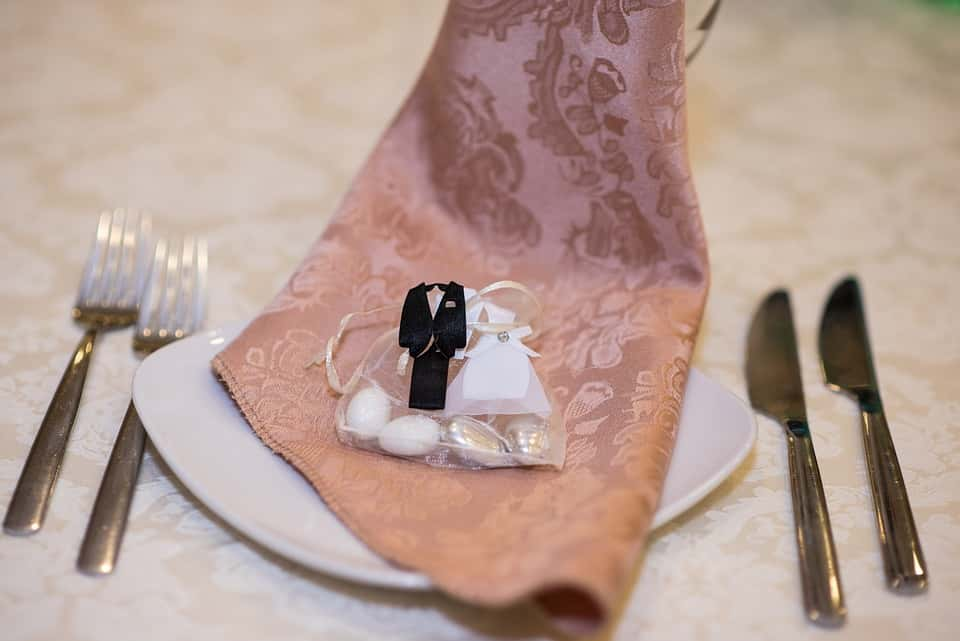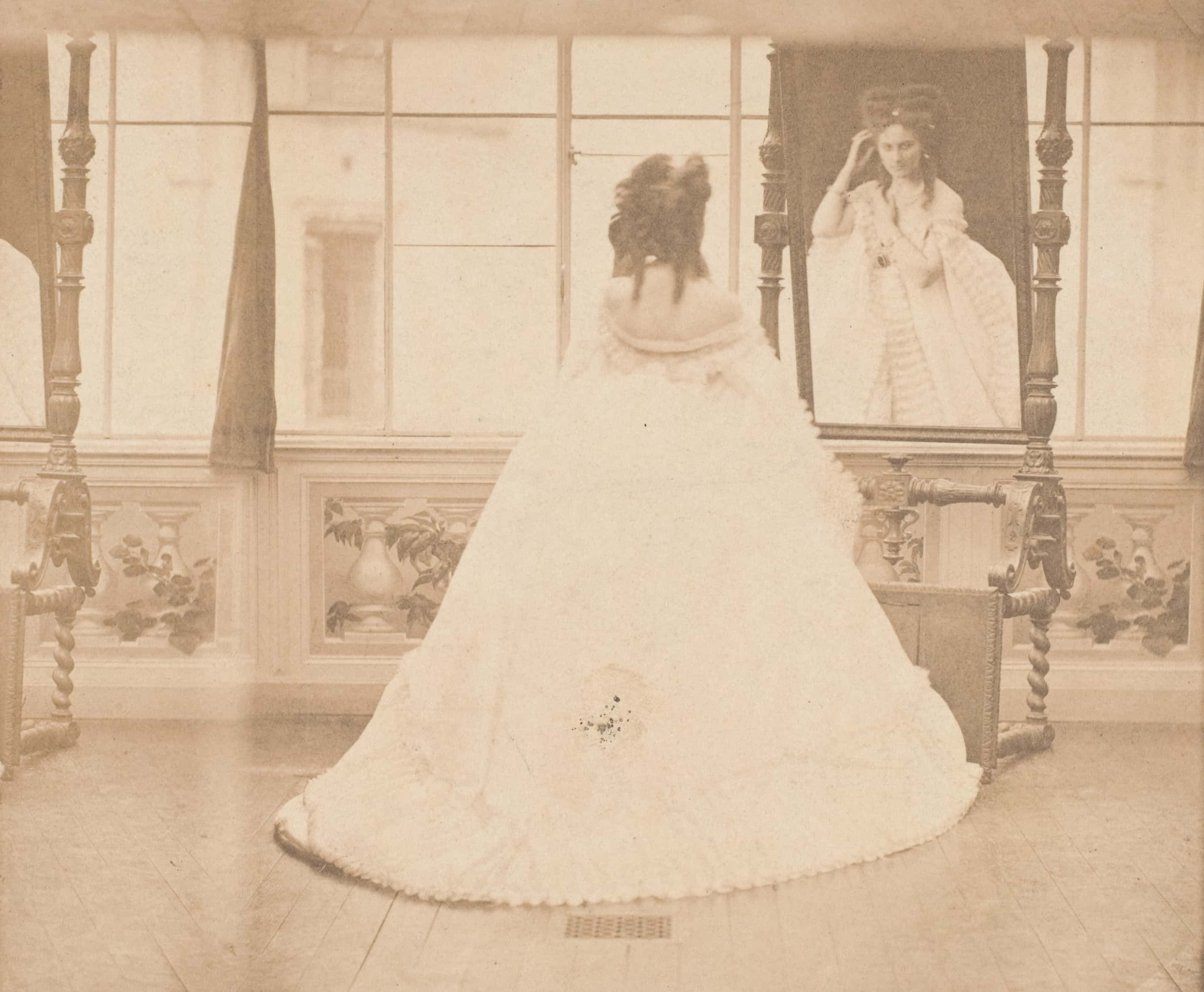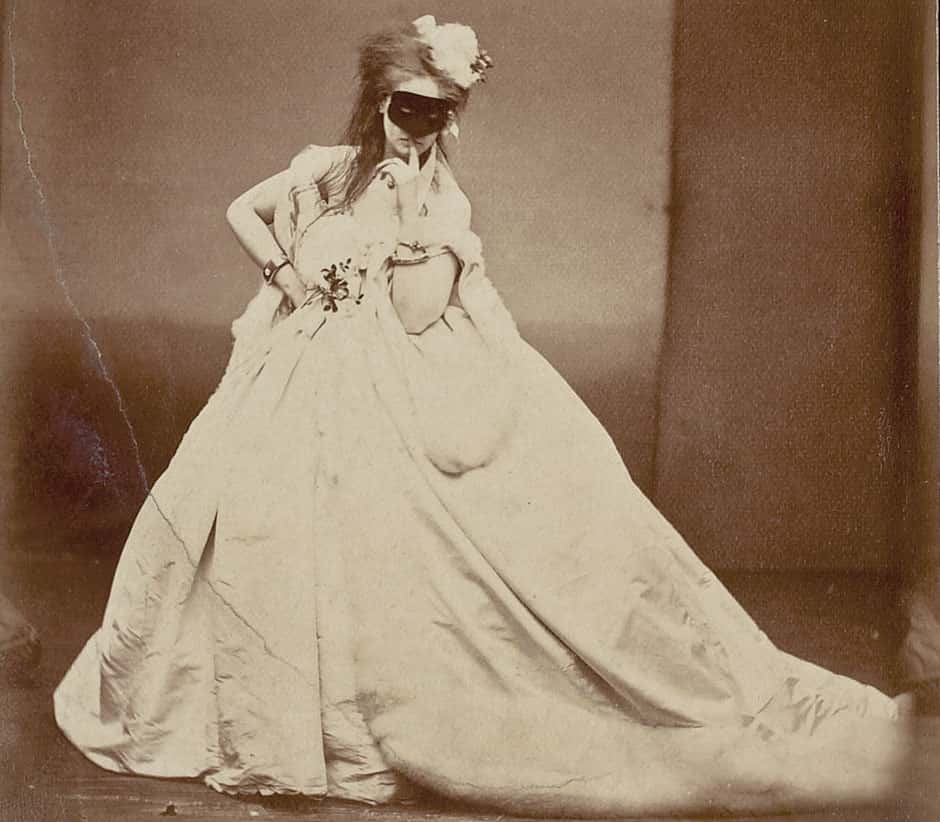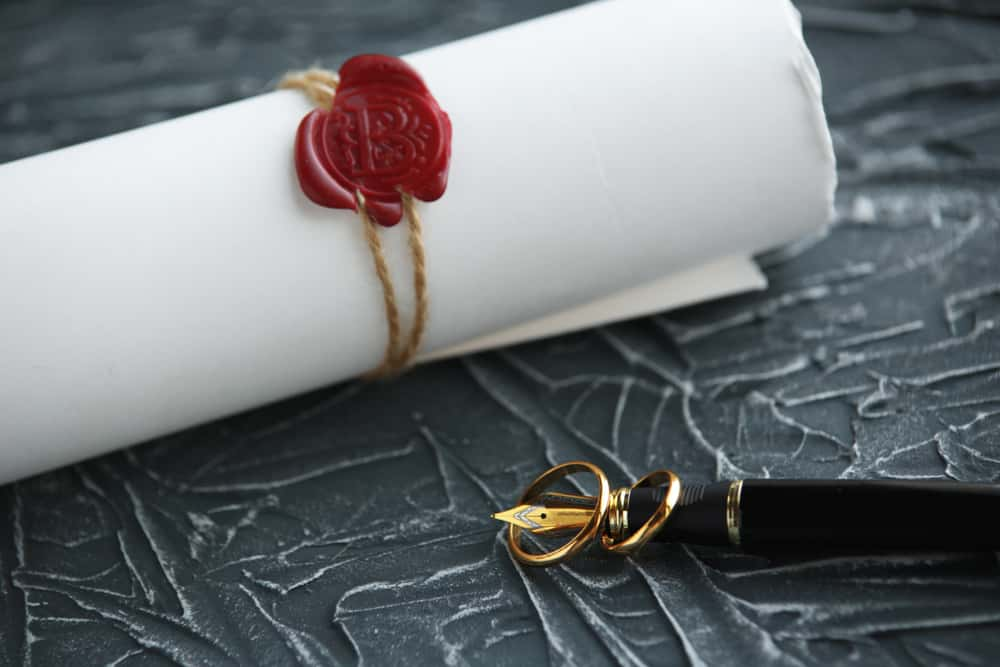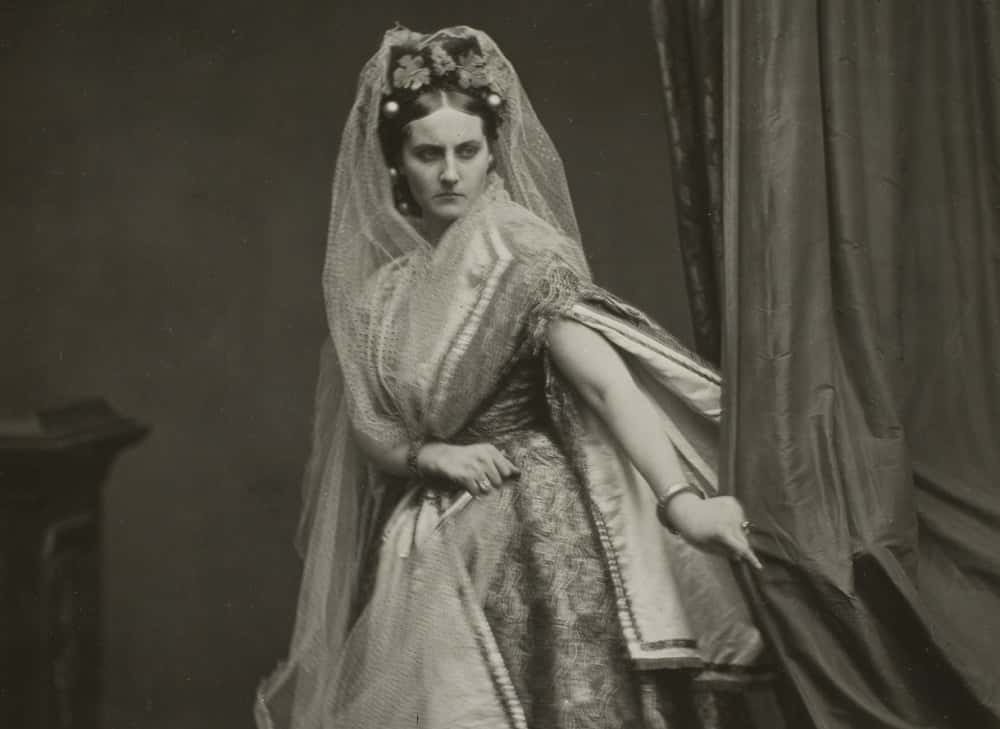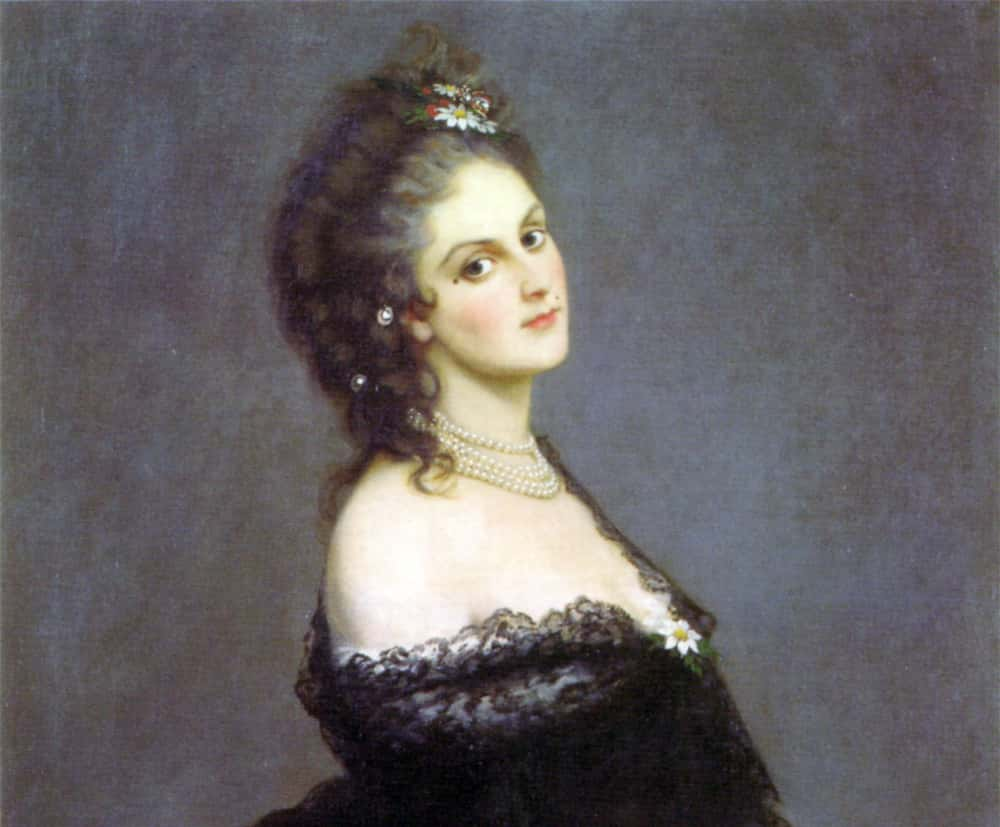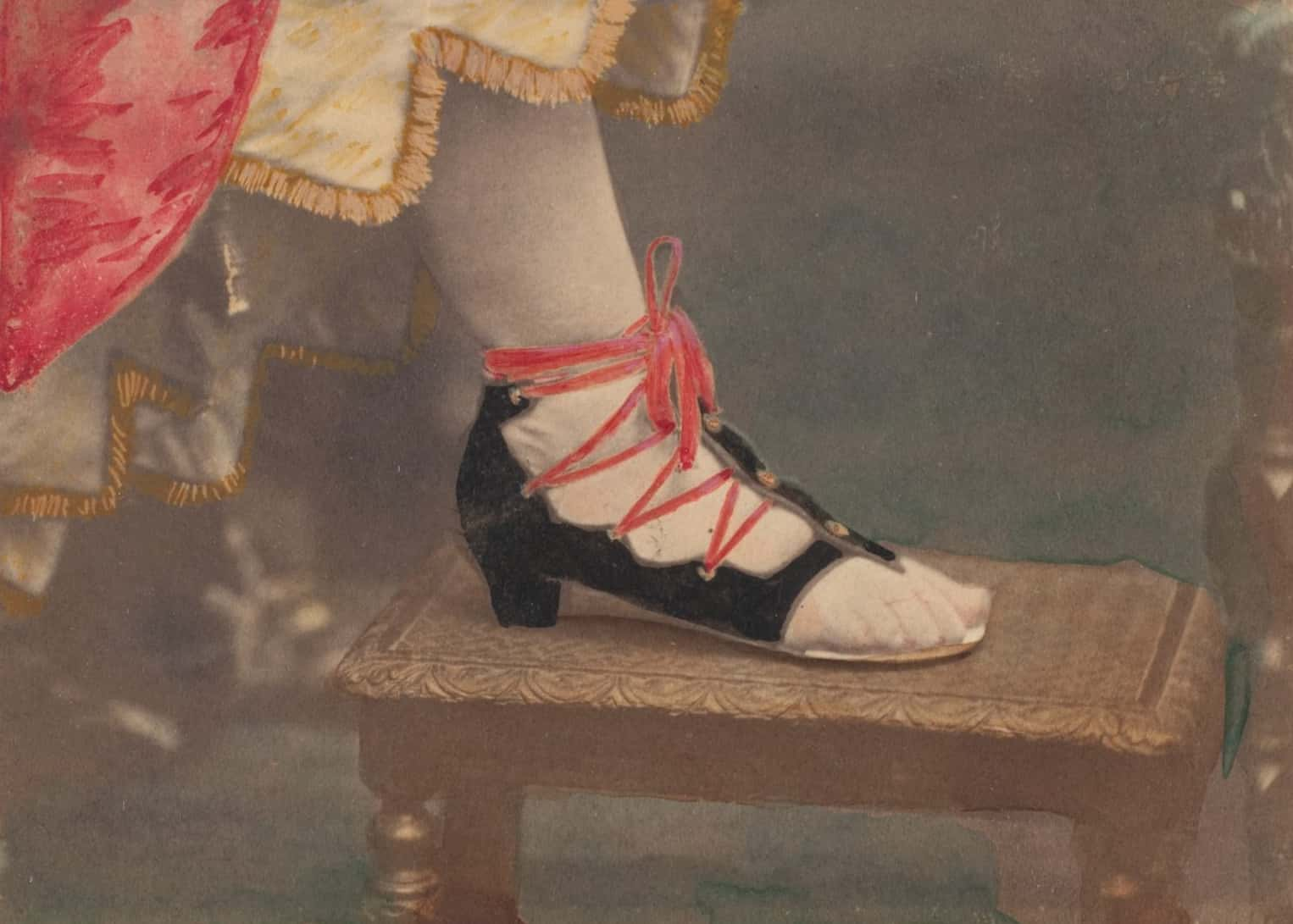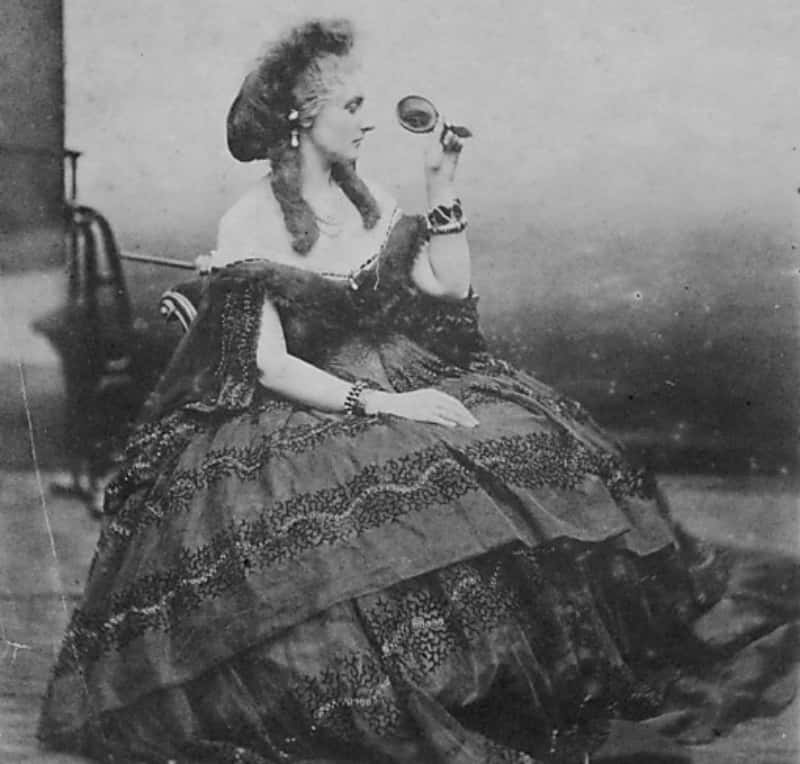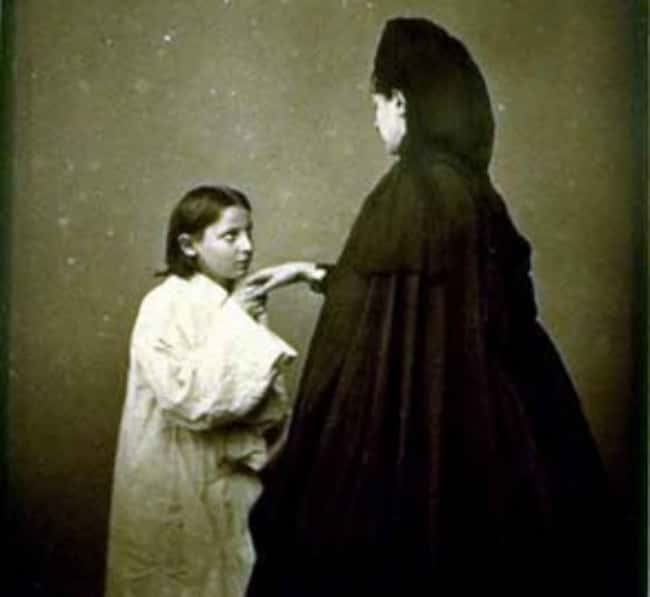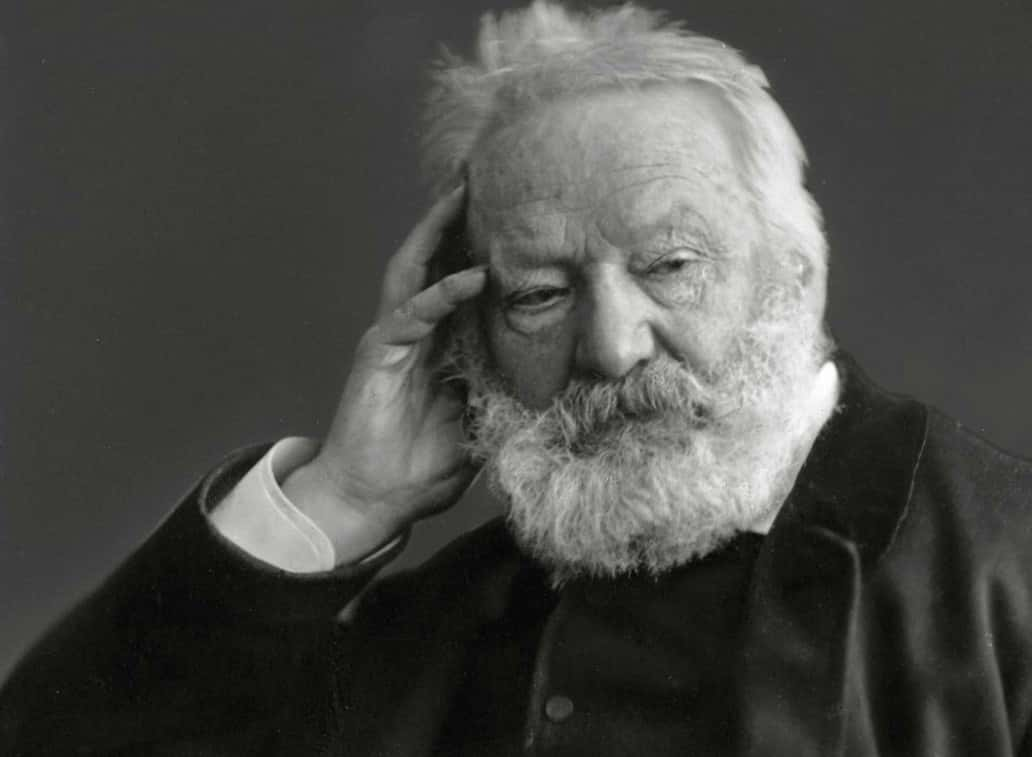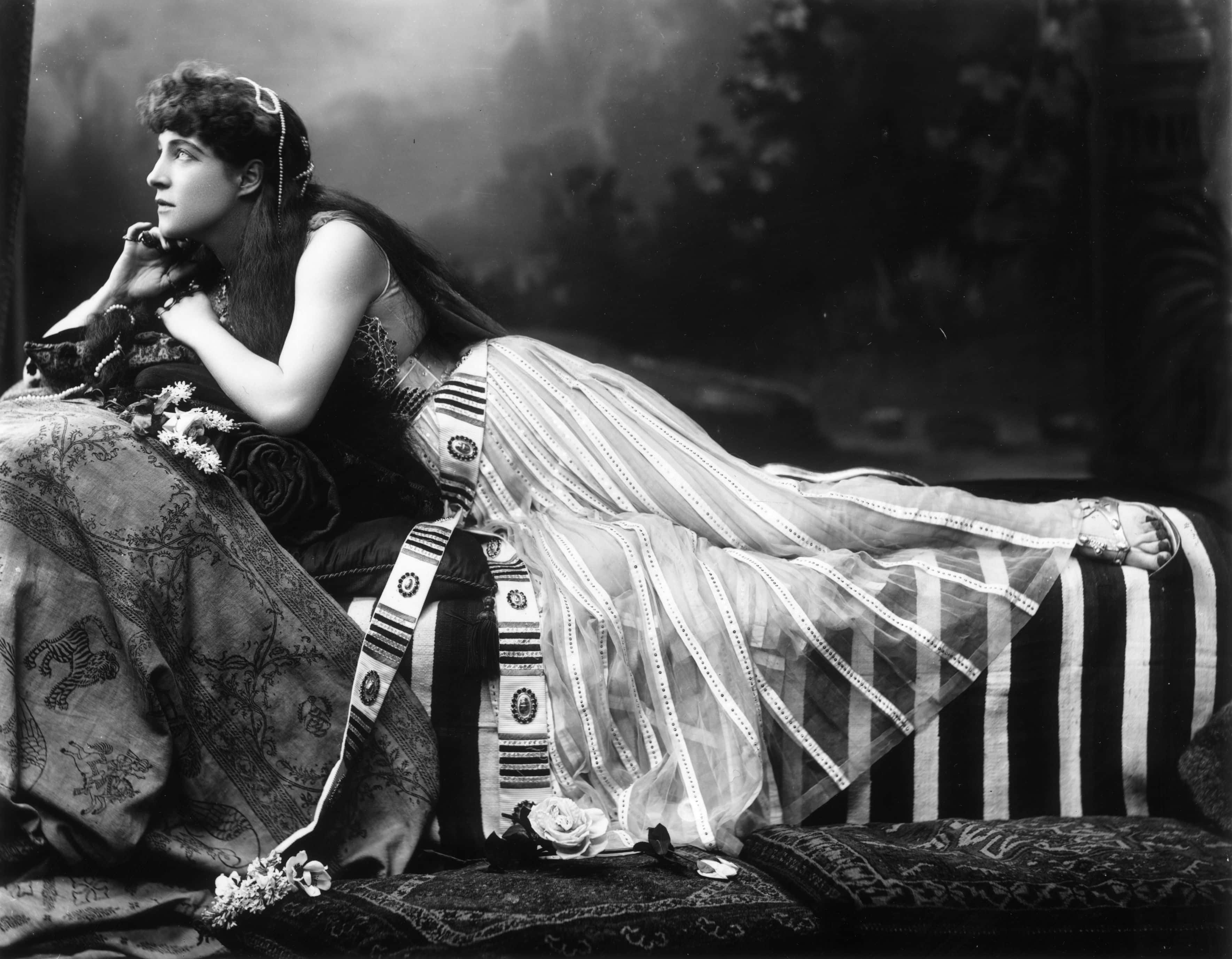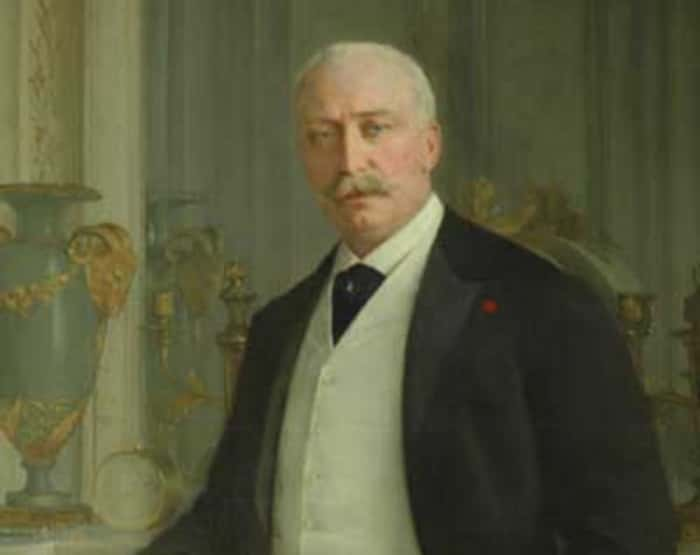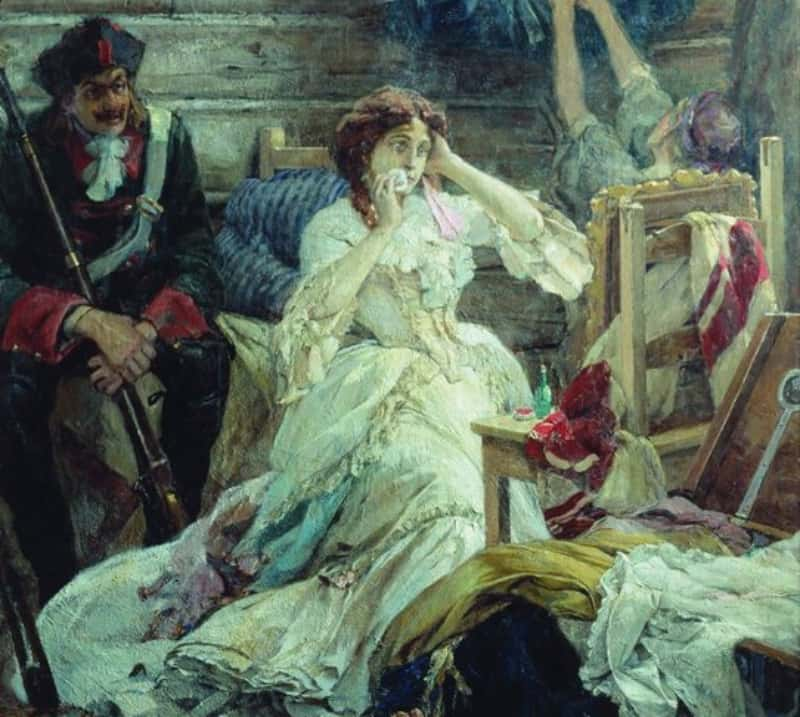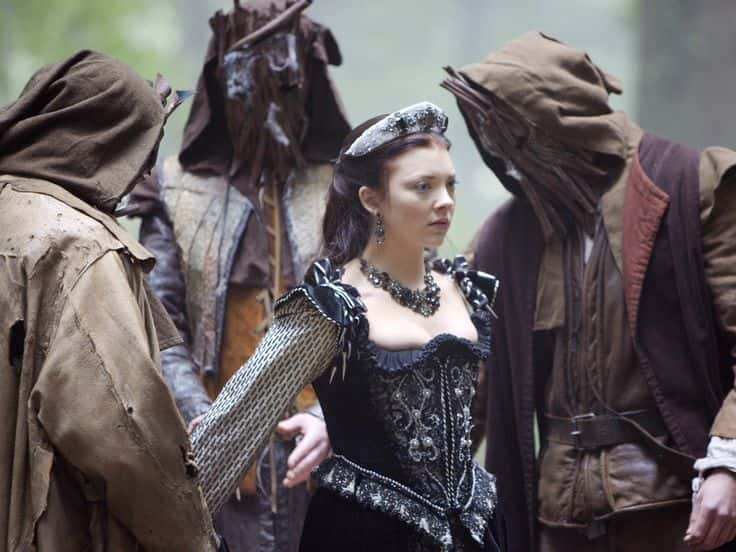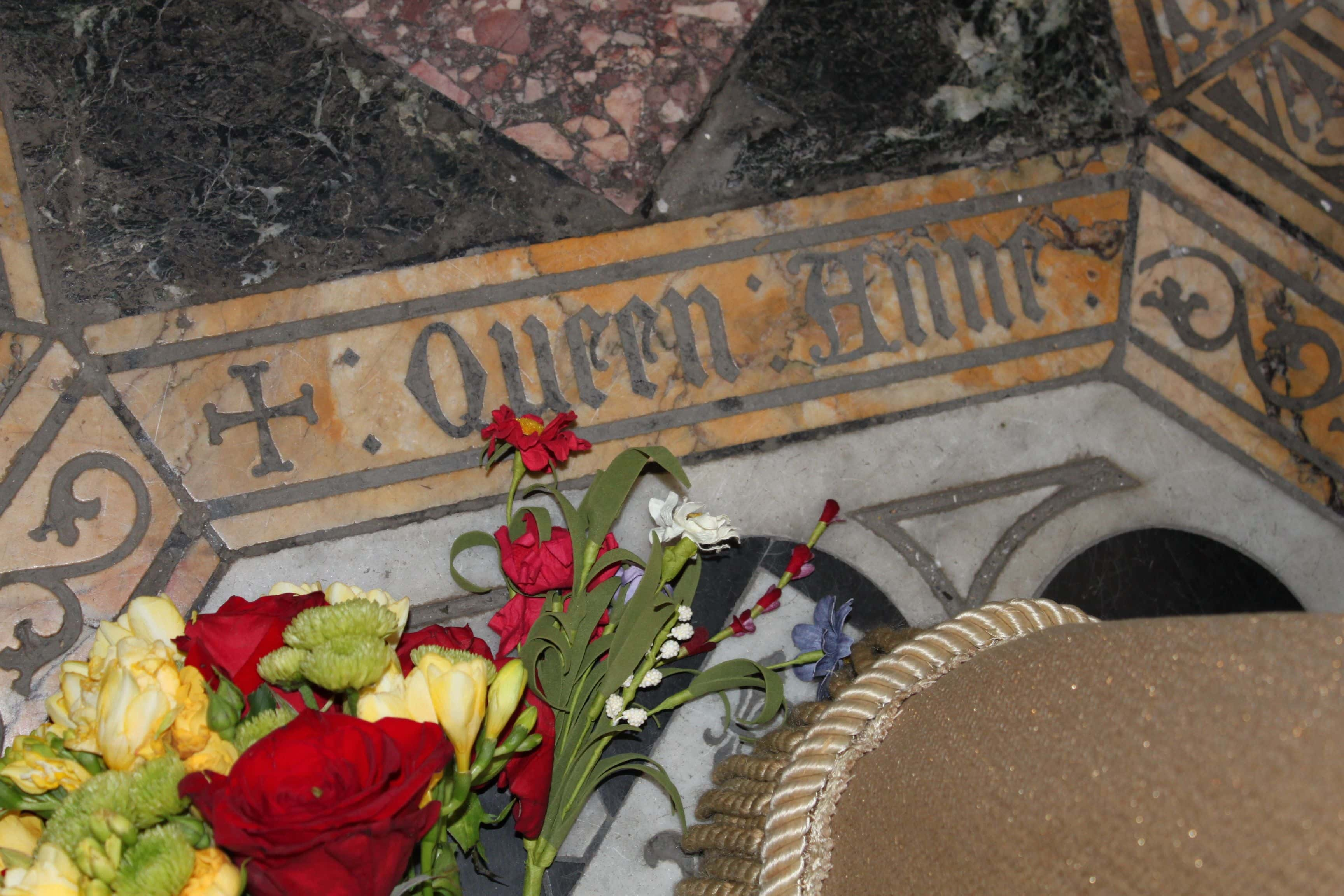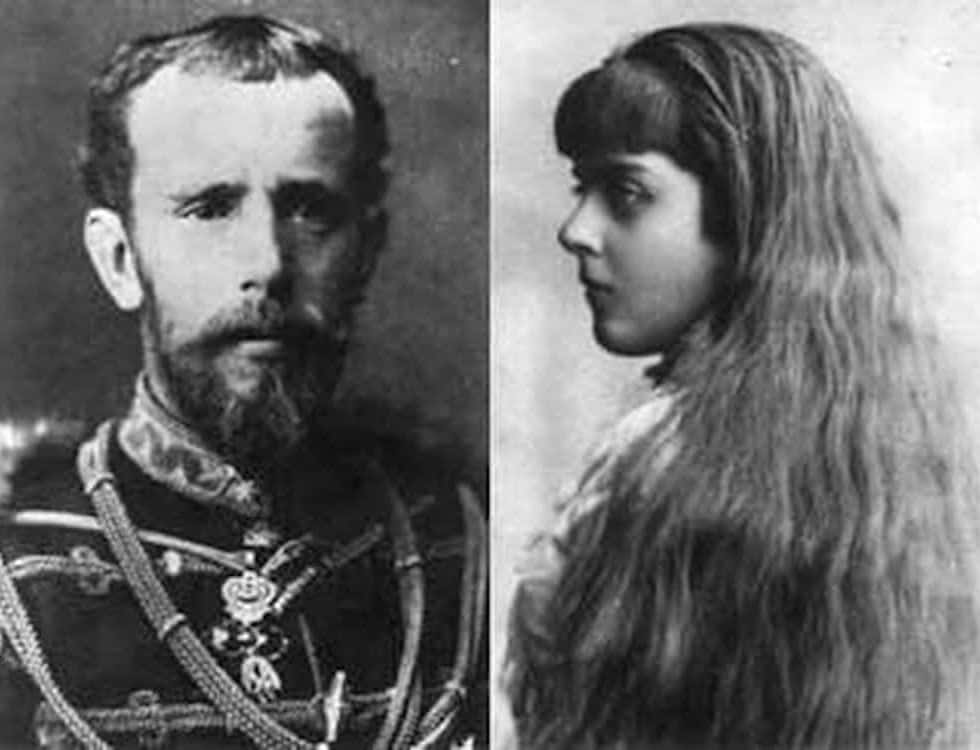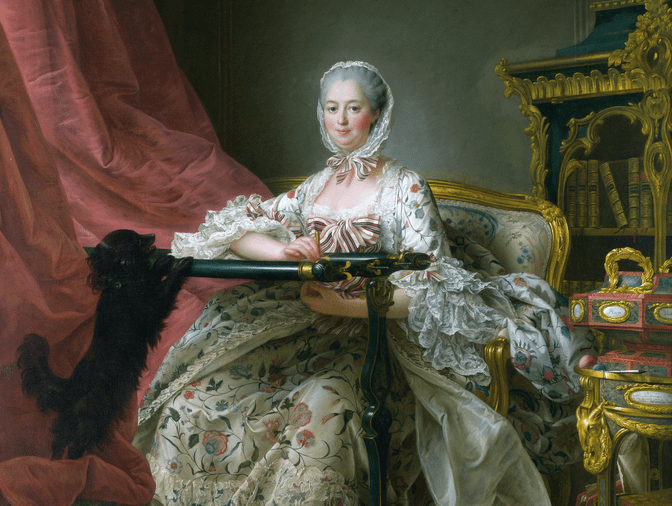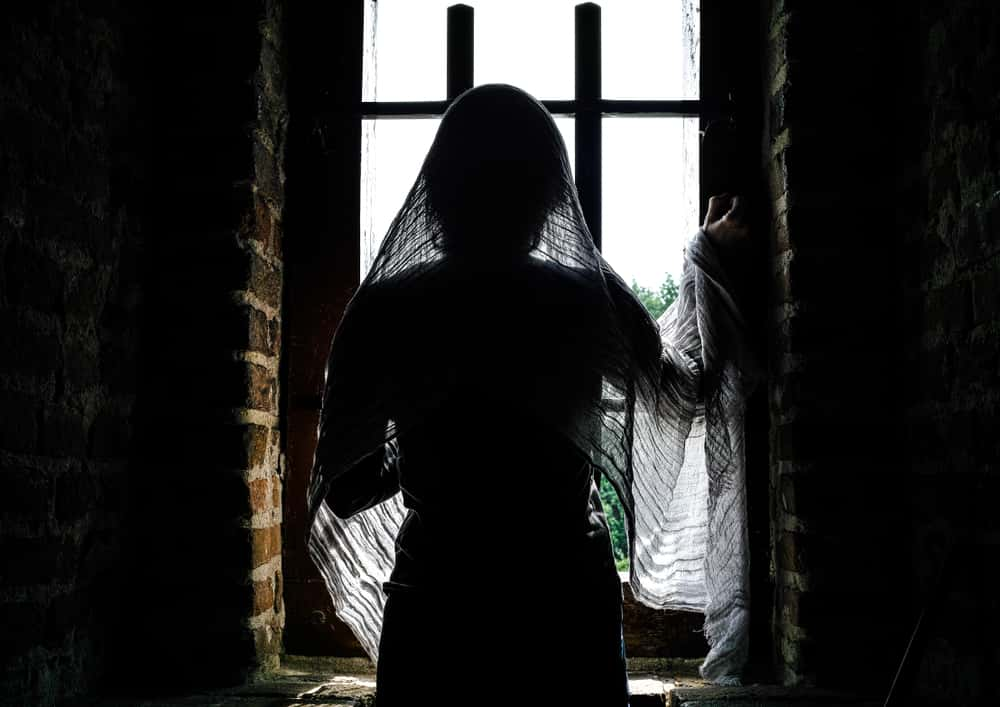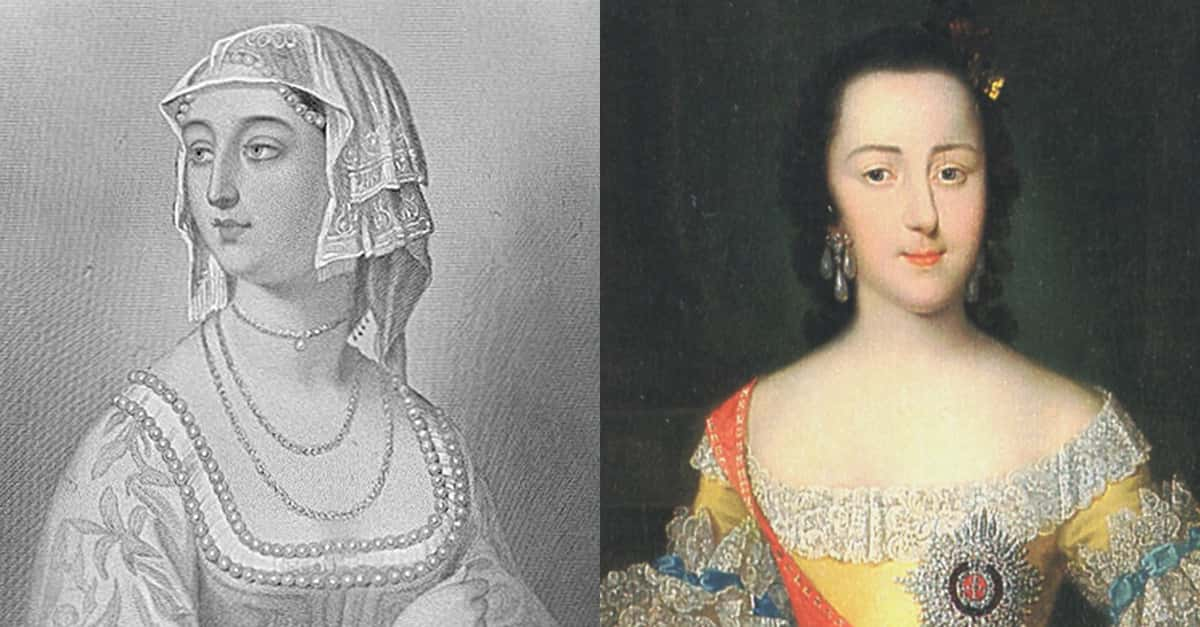Mistresses were an integral part of many powerful unions. For most of recorded history, marriage was all business. Physical and emotional fulfillment could be happy accidents, but they were certainly not prerequisites for wedlock. For such things, a man (and it was mostly men, sorry) had to step outside the bounds of holy matrimony.
And if the partners were high-profile, such extramarital risky business could often shape the face of international politics and culture. Some pages in the book of history were written by characters engaged in some extremely bad behavior. Below are some truly spicy and fun facts about women from the “wrong” side of the bed sheets.
1. A Queen Is Born
Anne Boleyn was born in what is now Norfolk, England in 1501. She was the second Queen of King Henry VIII and was infamously beheaded on charges of witchcraft—but before that, she was King Henry's illicit mistress.
2. Famous Words
The most famous quote by Anne Boleyn was spoken just prior to her execution. She reportedly was chatting with someone about her executioner and, in attempt to reassure her friend, said “I hear he’s quite good. And I have a very small neck!"
3. Not the Momma
King Henry VIII’s interest in Anne Boleyn was controversial, and not just because he was already married. Henry was already having an affair with Anne’s older sister, Mary. There were also rumors that her mother Elizabeth Howard had also been bedded by the King. Despite public accusations claiming the affair, the King denied it, stating “never with the mother” when challenged.
While this seems to let Elizabeth off the hook, it also more-or-less confirms Henry's affair with Mary Boleyn.
 The Other Boleyn Girl, Focus Features
The Other Boleyn Girl, Focus Features
4. No Love Lost
Anne Boleyn showed no lack of disdain for her predecessor, Catherine of Aragon. She refused to attend Catherine’s funeral, prevented Catherine’s daughter Mary from attending, and spent the day parading around the castle in bright yellow. Rumors spread that Anne had threatened to murder Catherine and Mary, and Catherine’s death led many to suggest that Anne had finally made good on her threat.
5. Hard to Get
When Henry started pursuing Anne, she refused his advances. Although the true reason was most likely that she was still heartbroken over her broken engagement to Henry Percy, the king saw her lack of interest as a challenge and gave chase. Eventually, the sport turned into genuine attraction, and he tried again to appeal to her by offering to make her his official mistress, but she refused him again.
Finally, he proposed marriage to her, and this was an offer she couldn’t refuse.
6. Couldn’t Keep Him
Anne’s failure to provide Henry with a male heir led to her being pushed aside for Jane Seymour. Anne miscarried twice during their marriage, with the second appearing to have been a boy.
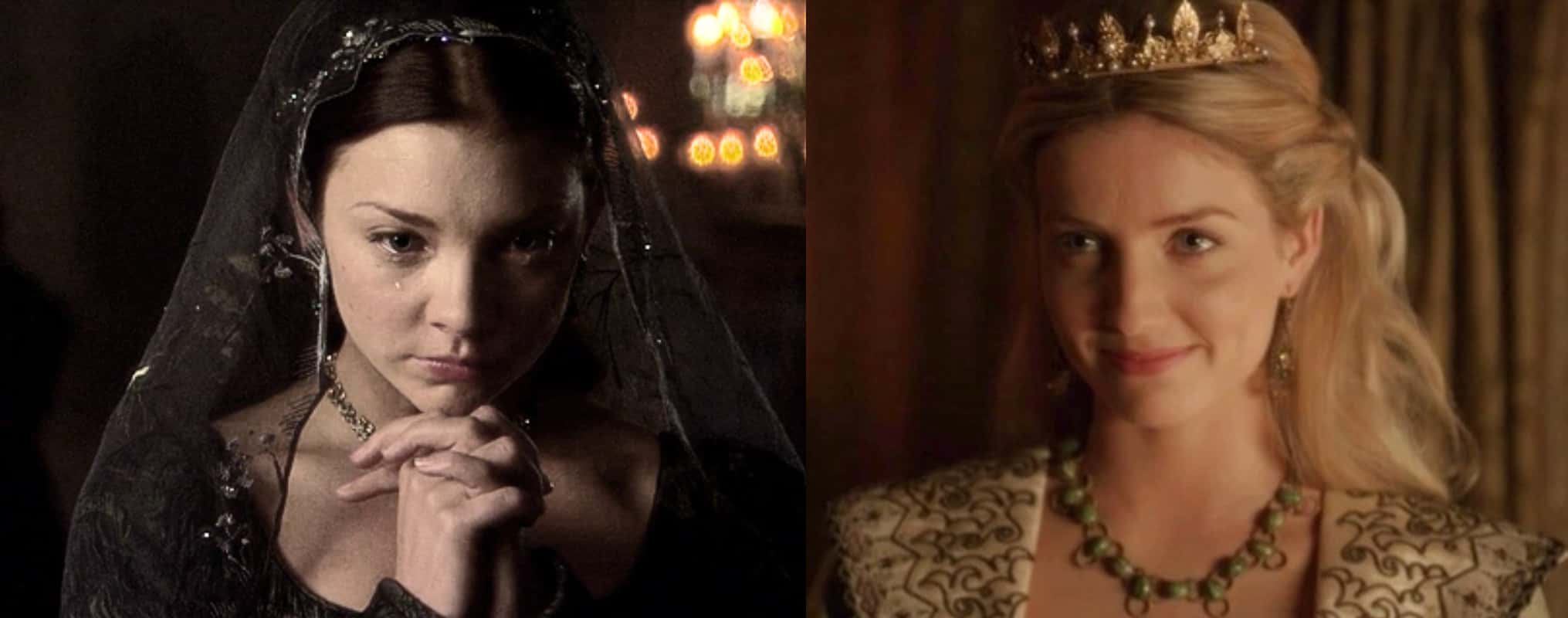
7. Dramatic Allure
Anne Boleyn was never described in history as being classically beautiful. She had a dark complexion and black hair, which made her stand out in a culture where milk-white paleness was seen as the epitome of beauty. Her most striking feature was her eyes which, according to one contemporary, were “black and beautiful.”
8. A Notable First
Anne Boleyn is also notable for being the first Queen of England to be publicly executed. Once found guilty, she was originally sentenced to burn, but Henry changed it from burning to beheading. He called in an expert swordsman from France to carry out the execution instead of using the typical axeman.
9. Getting Her Due
Henry VIII’s thirst for sons made him infamous. But few people know that he already had a son for most of his early reign—thanks to his lover, Bessie Blount. Henry Fitzroy was the only acknowledged illegitimate child of Henry VIII, although the boy died at the age of 17. Blount would still be greeted with the refrain, ‘Bless ye, Bessie Blount” for that proving the Henry VIII could produce male babies.

History's most fascinating stories and darkest secrets, delivered to your inbox daily.
10. Pop(e) Goes the Baby
What do you think of, when you think of a Pope? Flowing white robes? Check. Very impressive hat? Check. Renowned lover... Wait, what? In the 15th-century, courtier Giulia Farnese acted as mistress to Pope Alexander VI. Her nickname in Italian was "Giulia la bella"... which means Julia the Beautiful. Suffice to say, she was quite the stunner.
She also holds a pretty, uh, surprising distinction: to date, Farnese is the only woman to have (publicly) mothered an illegitimate child with a Pope while he served his pontificate.
11. Eat Your Heart out, Dad!
The future King Peter I of Portugal was deeply in love with Inês de Castro, to the point where he neglected his own wife and endangered the international alliance. Infuriated, Peter’s father sent three men to decapitate Inês. In revenge, the heartbroken Peter found two of her killers and had their hearts viciously ripped from their bodies.
He then exhumed his wife’s body, placed her on a throne, and forced his entire kingdom to bow before her corpse and kiss her hand. Creepy, but touching!
12. Long Term
Eleanor de Guzmán was the lifelong mistress of Alfonso XI of Castile. Together, she and Alfonso shared 10 children and a prosperous partnership. So far so good, right? It was...until the king passed. After his death, the Queen had Eleanor executed within a year. Apparently, she was just biding her time. Remember: adultery just doesn't pay.
13. Drowning His Sorrows
Agnes Bernauer was a beloved 15th-century paramour to Albert III, the future Duke of Bavaria. These feelings were not hereditary, as Albert’s father absolutely hated Agnes. Threatened by her vast influence, the Duke Sr. tragically drowned Agnes in the Danube River. Fears of civil war between father and son never materialized, because Alfred soon ascended to the throne.
To commemorate his lost love, Albert quickly endowed a yearly memorial celebration at the “Straubing Carmelite Cloister” to commemorate Agnes.
14. Mega Mom
By far the most powerful harem mistress in history was Kösem Sultan. After the death of Ahmed I’s mother, the Greek-born slave concubine rose to become the chief consort of Ahmed I when she and her “husband” were barely 15. Kösem was regent to her young sons, Murad IV and Ibrahim I, and her grandson, Mehmed IV.
She lived to be about 62—her career in politics spanned over 40 years and she was mourned as "Vālide-i Maḳtūle" (murdered mother) when she died, assassinated by the mother of Sultan Mehmed IV in yet more intrigue.
15. Maybe She’s Born With It, Maybe It’s Gold-Poisoning
Despite being 20 years his senior, legendary mistress Diane de Poitiers kept the interests of King Henri II of France for as long as the king lived. It was only rumored that Poitiers drank liquid gold to maintain her legendary looks. However, in 2009, French scientists examined Poitiers’s corpse and found that her hair contained gold levels at 500 times the human average.
16. Room With a View
It’s said that King Henri II's wife Catherine de Medici bored peep holes into the roof of Diane de Poitiers’s bedchamber so that she could see her husband “in action” with his mistress. She apparently noted the contrast between the disinterested performance she got from Henri versus the “spectacle” he gave Diane…
17. Our Lady of Vindication
Catherine was cordial to her husband’s mistress… during his lifetime. As Henri lay dying from a jousting accident, her true feelings revealed themselves. Catherine denied Diane de Poitiers any access to Henri’s deathbed, ignoring her husband’s final pleas for his lover. After his death, she banished Poitiers and her friends from Paris.
She also ordered the surrender of Poitiers’s crown jewels and her fine castle, the Château de Chenonceau. Even years later, Catherine made her real opinion heard on Poitiers in a letter to one of her children which read, “Never has a woman who loved her husband liked his whore.” Something to keep in mind, fellow ladies.
18. Spanning an Age
When it comes to historic “Other Women,” few would beat the feats of Madame de Montespan, the most famous mistress of the “Sun King,” Louis XIV of France. To many of his subjects, she was considered “true Queen of France” for her terrifying power over the king’s heart and court. It was Montespan, not the king’s wife, who set the artistic and political tone for the historic Palace of Versailles.
19. Every Tree Starts Somewhere
Montespan was no upstart. She was born on October 5, 1640 to one of the most ancient noble families in France, the House of Rochechouart. As the king’s mistress, her legitimized children with him would go on themselves to found royal houses in Spain, Italy, Bulgaria, and Portugal.
20. Call Me by My Adopted Name
The woman who would be “Madame de Montespan” was simply born “Françoise.” Later in life, she adopted “Athénaïs” as a second name. In doing so, she was paid homage the current literary fashion of “les style précieuses,” which celebrated witty women and novelistic flourish.
21. Starter Family
At the age of 23, Françoise-Athenais finally became “Montespan.” She married Louis Henri de Paradaillan de Gondrin, the Marquis of Montespan. Together they had just two children: Marie-Christine, who tragically died at the young age of 11 or 12, and Louis-Antoine, who lived and got along with his mother’s second family.
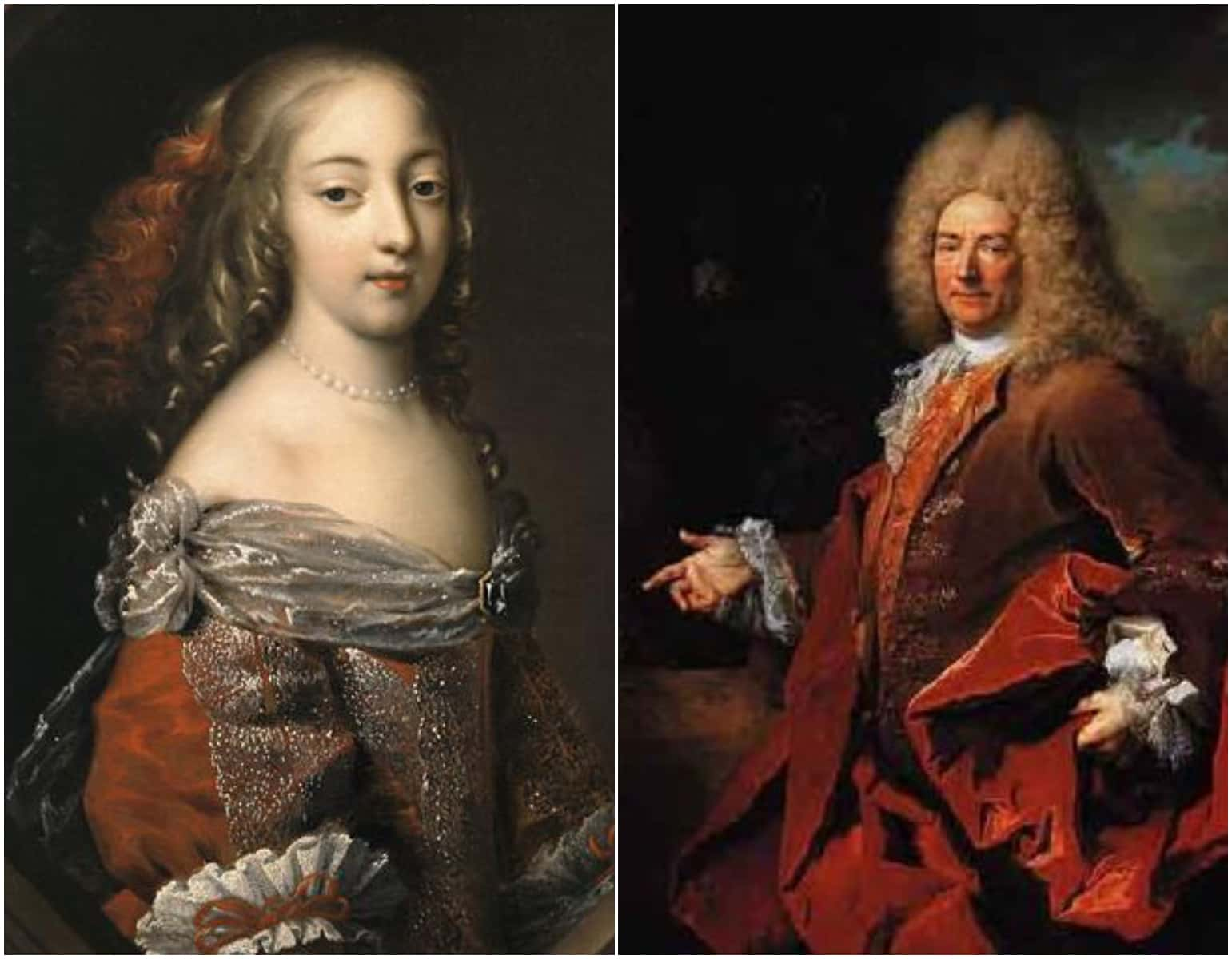
22. Sit, Speak, and Say “I Do”
Like many things that were to come in her love life, Montespan’s wedding was hardly fairytale perfect. For one, the couple had forgotten to bring the traditional kneeling cushions upon which they would bend down and take their vows. To improvise, the bride and groom knelt upon cushions reserved for dogs. Hey, if it’s good enough for Fido…
23. France’s Next Top Model
Montespan possessed a legendary beauty by the standards of her day. With her peculiar and large blue eyes, thick “corn-colored” blonde hair, and her fashionably voluptuous figure, she was held as “astonishingly beautiful,” even for a king’s mistress.
24. Hardly Ever Tongue-Tied
In addition to great beauty, it’s said Montespan inherited her father’s legendary wit—or as they called it back then, “esprit.”
25. Credit Card Debt Transcends Language
Her decadent tastes in food, fashion, and flowers had earned Madame de Montespan the ironic nickname of “Quanto,” which meant “How much?” in Italian. Good thing the King of France was her line of credit.
26. Best Friends for Now
By 1666, Françoise-Athenais de Montespan was a lady with a plan: become the king’s maitresse-en-titre—chief mistress—at any cost. It wasn’t Louis’s wife that was her main obstacle. Instead, it was his current mistress, Louise de La Vallière. However, the tenacious Montespan wouldn’t let a thing like that stop her rise. She reportedly became good friends with La Vallière just to get closer to the king’s inner circle.
Talk about friends with benefits…
27. You’re Hired!
Montespan’s big break in the king’s bed came as both his queen and his main royal mistress became pregnant at the same time. Louise de La Vallière trusted Madame de Montespan to be a “temp” of sorts while she was closed away for childbirth. Madame lived the contract laborer’s dream by staying on the job long after La Vallière had given birth.
28. Bad Stuff Happens in the Bathroom
According to lore, Montespan dropped towel to get on top. It’s said she first seduced the king by letting her bath wrap fall down as he happened to be spying on her shower. I’m sure there is a prologue to this story that is romantic and not totally creepy.
29. You Don’t Have to Rub It in
What’s less attractive than a sore winner? Montespan was known for openly disrespecting Queen Maria Theresa in public—an act for which even the lovestruck Louis himself had to reprimand his mistress.
30. Easy Come, Easy Go
In 1681, a romantic rival to Montespan suddenly dropped dead. The woman in question, Marie Angélique de Scorailles, had risen to become the king’s other mistress. Unfortunately (for some), Marie died under ambiguous circumstances before she could rise much further. A poisoner named Françoise Filastre was charged in her death—and she accused Madame de Montespan of hiring her to do the job.
The False Queen’s reputation would never recover.
31. Wipe Your Tears on This Dollar
By 1691, Montespan’s reputation was in shambles. Released from the king’s affections, she retired to a convent on the rue Saint-Dominique in Paris. It was hardly an ascetic retirement—she lived on a pension of 500,000 francs a year.
32. Montespan Couldn’t Keep His Mouth Shut
Louis Henri did not take well to his wife’s infidelity with the king, even though he wasn't exactly faithful to her, either . He was largely ignorant of the royal affair’s beginnings, but it took one to know one: by June 1668, the male Montespan returned to Paris, got wind of his wife’s adultery—she was pregnant with a baby that couldn’t be his—and actually lashed out at his Majesty.
Louis Henri dressed his carriage all in black, and when the king asked him about the style update, Louis Henri dared to snap that he was mourning his wife, who had mysteriously “disappeared.” Not one to take bad news well either, King Louis promptly jailed Montespan’s husband for rudely exposing him. Two upstanding gentlemen right there.
33. The Black Parade
I guess Madame de Montespan liked dramatic guys. To “memorialize” the death of their marriage, Louis Henri allegedly held a mock-funeral for Montespan on their family lands. His mourning carriage was adorned with huge horns to symbolize his cuckoldry by the king.
34. Too Hot to Be Hired
It’s said Montespan deliberately filled her staff with “virtuous” and “homely” ladies to keep the king’s eyes on herself. This hiring strategy might have backfired: her successor in the king’s heart, Madame de Maintenon, was said to have attracted Louis’s attention with her otherworldly piety and modesty. Couldn't have been too modest, though...
35. (Lack of) Love by the Numbers
It goes without saying that Madame de Montespan eclipsed her lover’s queen at the court. But thanks to historical record, we can quantify by how much: while Queen Maria Theresa held only 11 rooms on the second floor of Versailles, the maitresse-en-titre had a whopping 20 rooms on the first floor. The mistress also had an entourage that held up to 50 people at a given time.
It’s also said King Louis only did his marital “duties” with poor Maria Theresa twice a month. In a lackluster attempt to compete with Montespan, the Queen reportedly adopted the royal mistress’s preference for billowy gowns—which Montespan wore to accommodate her many, many pregnancies by the king. It doesn’t hurt to try?
36. This Is the End
Montespan spent the last 16 years of her life in religious retirement doing charity work and penance. She died at the ripe age of 66 from an undisclosed illness on May 27, 1707.
37. Dressed to Oppress Code
King Louis forbid the surviving children of Montespan to wear mourning clothes in the wake of their mother’s death. What? Did she do something wrong?
38. Wake up Call
If you learn anything from this salacious list, let it be this: pay your dues. This was a lesson learned the hard way by the ex-lovers of famed British courtesan Harriette Wilson. When she retired from the love game in her mid-30s, Wilson set about writing her memoirs. But it wasn’t just because she had a writer’s soul...
Wilson would reveal her ex-clientele’s most lewd secrets unless they paid her to “edit” them out. Since many of Wilson’s lovers were high-ranking statesmen (even the Duke of Wellington was among them!), this was one of the most profitable proof jobs in history.
39. Curse of the Black Pearl
Cora Pearl was an English courtesan who was renowned for her affairs with multiple members of the 19th-century French royal family, her decadent spending, and, most of all, her cruelty. Pearl openly referred to her men as her “chain of gold,” i.e. interchangeable and enriched stepping stones on her way to fortune.
As if to publicly mock her “dark” reputation, Pearl often wore a famous necklace of black pearls that became her calling card.
40. Served With a Side of Buns
Cora Pearl’s decadence was so great, an army of servants once carried her buck naked upon a silver platter into a party. Sexy, but not very sanitary.
41. Rags to Riches
Nell Gwyn is a risque Cinderella story. As the most famous mistress of Charles II, she was born to abject poverty, yet somehow died in wealth and popularity as the icon of the English Restoration. These days, Gwyn is also remembered for her legendary insults, and her status as one of England’s first professional stage actresses.
42. Started From the Bottom?
Gwyn’s early life is surrounded by so much history that it’s not even clear if she was truly as “low-born” as her rags-to-riches mythos infers. Most agree that her mother was Ellen or “Old Ma Gwyn” and that her father might have died in prison, but some assign her the arms of the more illustrious Gwynnes of Llansannor, or they suggest that she descended from clergy and doctors.
In any case, it’s agreed she was born into poor circumstances and had a less than idyllic childhood.
43. Mr. Gwyn, I Presume?
In her younger years, Gwyn experimented with crossdressing. She donned a beard and men’s clothing, taking on the name “William Nell” in her fairly popular act.
44. It’s Not Size That Matters
In terms of appearance, Nelly had chestnut hair, hazel eyes, and a heart-shaped face. In contrast to the buxom bodies favored by Restoration beauty standards, however, Gwyn was petite, albeit “shapely.” What matters is that her future lover King Charles II had very few complaints about the beautiful, seductive woman…
45. A One-King Woman
Charles II took many mistresses, and some of them returned their king’s infidelity. For example, he once caught one of Nell’s rivals, Lady Castlemaine, in a “not good” position with the Duke of Marlborough. In contrast, Nell Gwyn was reported to be monogamous to King Charles II until his death, and thereafter as well.
46. Oranges Aren’t My Main Squeeze
As children, Nell and her sister Rose worked as “orange-girls” at a theater, selling fruit to the patrons. While on the job, Nell quickly became the mistress of the theater’s leading man, Charles Hart.
47. The Original Funny Gal
Out of all Charles II of England’s mistresses, Nell Gwyn was the most beloved by the common people—and arguably the only publicly loved one. Her nickname of “pretty, witty Nell,” originates not from her time in Charles's life, but before, in her years in comedy. Her reputation as a purveyor of sass garnered her much fame as an actress, and she was also popular as a romantic lead.
48. Love Is the Best Pension?
Moreover, Charles II was not Gwyn’s first aristocratic “keeper.” By 1667, Gwyn embarked on an affair with Charles Sackville, Lord Buckhurst. This beau was described as “cultured, witty, satirical, dissolute, and utterly charming.” His arguably most attractive feature, however, was that he housed Gwyn and gave her an allowance of £100 so she could leave acting.
49. Salary Negotiations Are Tough in Any Century
Gwyn’s greed almost got in the way of her meeting Charles II. By late 1667, the Duke of Buckingham was seeking a mistress—but not for himself. The lord intended to remove the politically inconvenient Barbara Palmer from the King’s favor by arranging a rival in the royal bed. Nell’s talents put her in the running, but she made the mistake of asking too much money.
Her demands to be paid £500 a year were just too steep, so Buckingham went with Moll Davis—who was also Gwyn’s rival in acting. Ooh, I smell a scandal.
50. The Royal Runs
According to satires from the era, Gwynn overcame her first romantic rival, Moll Davis, by slipping her laxatives just before Davis was scheduled to “attend” to King Charles. Well, I guess that's one way to get revenge on your enemy. This tale is, of course, more lore than history, but that doesn't make it any less fun.
51. His Majestic Cheapskate
According to lore, Gwyn footed the bill on her first “date” with King Charles II. The two met in adjacent boxes at the theater, where Charles was more interested in pretty Nell than the show. The King invited Nell to dinner afterwards with his brother, the Duke of York. When it came time to get the check, his Majesty and his royal brother discovered they had no cash on them!
Nell covered the expense and exclaimed (in an affectation of the king’s voice and catchphrase) “Od’s fish! But this is the poorest company I ever was in!” Burn.
52. Seventh Time Is the Charm
On May 8, 1670, Nell gave birth to Charles Beauclerk, her first son by King Charles II. Of course, for Charles, this baby was his seventh son over five different women.
53. Pulling My Leg?
In 1671, Gwyn gave birth to her second illegitimate royal son, James. Unfortunately, James died just 10 years later from unknown causes. Some referenced “a sore leg” in his death, which led one biographer to suspect poison…or, perhaps it was just an accident. At this point, we simply may never know the truth of what happened.
54. A Full Belly Is the Best Inheritance
Although Charles took other mistresses, he remained fond of Gwyn for the rest of her life. On his deathbed in 1685, he begged his brother and heir, the future James II, to “Let not poor Nelly starve.” Luckily for Nell, James obeyed his dying request and granted her a lover’s pension of £1,500, in addition to paying off her mortgages.
55. I Guess You Can Keep a Tough Girl Down
Gwyn suffered a stroke in March 1687, paralyzing her spirited self on one side of her body. Just months later, she suffered another stroke that left her completely bedridden.
56. Love Bites Back
At the age of just 37 (most likely), Gwyn passed away on November 14, 1687. It was believed she died from apoplexy caused from late-stage syphilis.
57. You Can Never
Gwyn affectionately referred to Charles II as her sweet “Charles the Third.” This “pet name” referred to her bedroom history: she had previously been a kept woman to both Charles Hart and then Charles Sackville.
58. Kill Your Double
In truth, Gwyn didn’t worry much about her immediate romantic predecessor, Barbara Palmer, who was on her way out as chief mistress to Charles anyway. Her serious rival was actually the French Louise de Kerouaille, who was a maid-of-honor to the Queen and yet another up-and-coming mistress to King Charles II.
Highborn and sophisticated, Louise was the eccentric Nelly Gwyn’s exact opposite; the two would (figuratively) duel for the years to come.
59. Queen of Finding Your Insecurities
Gwyn liked to stab where it hurt. She referred to her rival and co-mistress Louise de Kerouaille as “Squintabella” (in reference to her looks) and “Weeping Willow" (in reference to her proclivity to cry).
60. What's "Clapback" in French?
When she wanted, however, Louise de Kerouaille could give it as good as she got, adding more than a little French sass to her comebacks. When Gwyn once offended her, Kerouaille turned up her nose and snapped, "anybody may know she has been an orange-wench by her swearing." As they say, sometimes the truth hurts.
61. An “Honest” Mistake
According to lore, Gwyn used her signature wit to defend herself from an anti-Catholic mob in 1681. While she was passing through Oxford, a crowd besieged Gwyn, mistaking the actress for her Catholic rival in the king’s bed, Louise de Kerouaille. Gwyn, smiling, assured the mob from her coach window that, “Good people, you are mistaken; I am the Protestant whore!”
62. For Your Eyes Only
Charles II owned topless paintings of Nell that he kept hidden behind landscapes. Portrait of Nell Gwyn as Venus by Peter Lely has the actress in the buff as the iconic goddess. However, Charles only swung the cover to let the most favored eyes have a glance.
63. Collect Them All!
Kitty Fisher is considered one of the first “celebrities” in modern history. The 18th-century English courtesan was a staple in the earliest tabloids, where her feuds and even fashion made the news. In fact, her appearance was so incredibly sought after that fans reproduced and sold the salaciously posed engravings of her person—which essentially makes Fisher the first “pin up girl” in history, too.
64. High in Value, Low in Carbs
At the height of her fame, Fisher was so rich that Giacomo Casanova recounted a rumor that she had “eaten a bank-note for a thousand guineas on a slice of bread and butter” for breakfast.
65. Blink and Happily Ever After Is Over
Ditching her superstar lifestyle, Fisher retired into a life of rural stability. In 1766, she married a Member of Parliament’s wealthy son, John Norris. Most tragically, the famed ex-courtesan died just four months into her new vocation as country wife. Not older than 26 years old, she was buried in her favorite ballgown, as befits a career drama queen.
66. Bawdy Brawl
Kitty Fisher famously boosted her own fame with public rivalries against other celebrities. Most notably, her chief rival was a noblewoman named Lady Maria Coventry. According to the papers, the two women once happened to meet in a park, where Lady Coventry admired Fisher's dress and asked her where she got it. Fisher smugly replied that the Lady should ask her husband, since it was he who had given her the gown as a gift.
In a swat back, Lady Coventry hissed that Fisher was an "impertinent woman," but Kitty just smiled again, and retorted that she would take that insult for now, since Maria was her social superior, but she would make it her life's mission to marry a Lord so that she could eventually give the Lady a proper verbal lashing. Talk about a cat fight.
67. The Real National Treasure
At the height of her fame, Liane de Pougy was known as notre courtisane nationale, which is French for “our national courtesan.” I assume that’s like Poet Laureate but more fun at parties.
68. Passing the Buck
Giulia “La Barucci” Beneni was an Italian courtesan who was so powerful, she once told a colonel that she would only lay with him if he got naked first…right in front of her house, atop a horse, and leading his own troops. Naturally, the colonel did exactly that.
69. Born to Do It
Of all history's mistresses, Hortense Mancini's life was perhaps the most dramatic. Born in Rome to the wealthy, established Mancini family, Hortense lived with a silver spoon in her mouth. Her uncle was the powerful Cardinal Mazarin, and the Mancini family were one of Italy’s oldest noble families. Dating back thousands of years, the Mancinis had countless titles, including dukes, counts, princes, bishops, and knights. Talk about a lineage!
70. Eclectic Background
Hortense was barely out of diapers when her father Lorenzo died in 1650. Shortly after, her mother shuttled her and her sisters off to France, hoping her brother Cardinal Mazarin could arrange good marriages for them.
71. Powerful Patroness
While the girls were in France, the aristocrat Anne of Austria took them under her wing and treated them like her own. This was no small compliment: Anne was actually the mother of the young Sun King, Louis XIV.
72. Cardinal Matchmaker
Eventually, and after much trial and error, Cardinal Mazarin did indeed find suitable husbands for his nieces. All of the Cardinal's matches for the girls were to aristocratic and wealthy men, including more than one prince, so he managed to do quite well by them—well, let's just say at least on paper, for now...
73. Almost a Queen
At first, the beautiful Hortense caught the eye of King Charles II of England, who proposed. The Cardinal, however, turned him down. At the time, Charles was exiled from the English throne, and Uncle Mazarin thought the match wasn't prestigious enough for Hortense, who was his favorite niece. Unfortunately, Charles was restored as King just months later, and when the Cardinal tried to open up the deal again, Charles refused.
74. Quite the Catch
It’s no wonder that Hortense had so many suitors interested in her. She was tall, slim, had waist-length black hair, and was accomplished in music, languages, and sports. She also had impeccable lineage, so what wasn’t to like?
75. Five Daughters, One King
Hortense Mancini's great-granddaughters were almost as notorious as the Kardashian sisters in their time. Four of the five girls became mistresses to King Louis XV, which caused quite a stir at court. They followed one another in succession, each having her own motives and ambitions for being with him. Guess they took after their ancestors!
76. Deathbed Contract
Hortense's wedding was only settled on Cardinal Marazin's deathbed: in 1161, 15-year-old Hortense finally married Armand-Charles, Duc de la Meilleraye. Armand fit the bill in terms of massive wealth, but he was twice Hortense’s age, and the union was not a joyful one. After the Cardinal died and left Hortense his sizeable fortune, she lamented that she was “the richest heiress and the unhappiest woman in Christendom.”
77. Strange Ideas
Hortense had good reason to be sad: Armand was a veritable nut job. He was known to search Hortense’s room for hidden lovers each night before locking her in, refused to allow the female servants to milk cows because he felt it was too sexual, and often knocked out the front teeth of female servants to make them look less attractive.
Oh, and he quite frequently eliminated the genitals from human figures in the artworks he owned. Um, what?
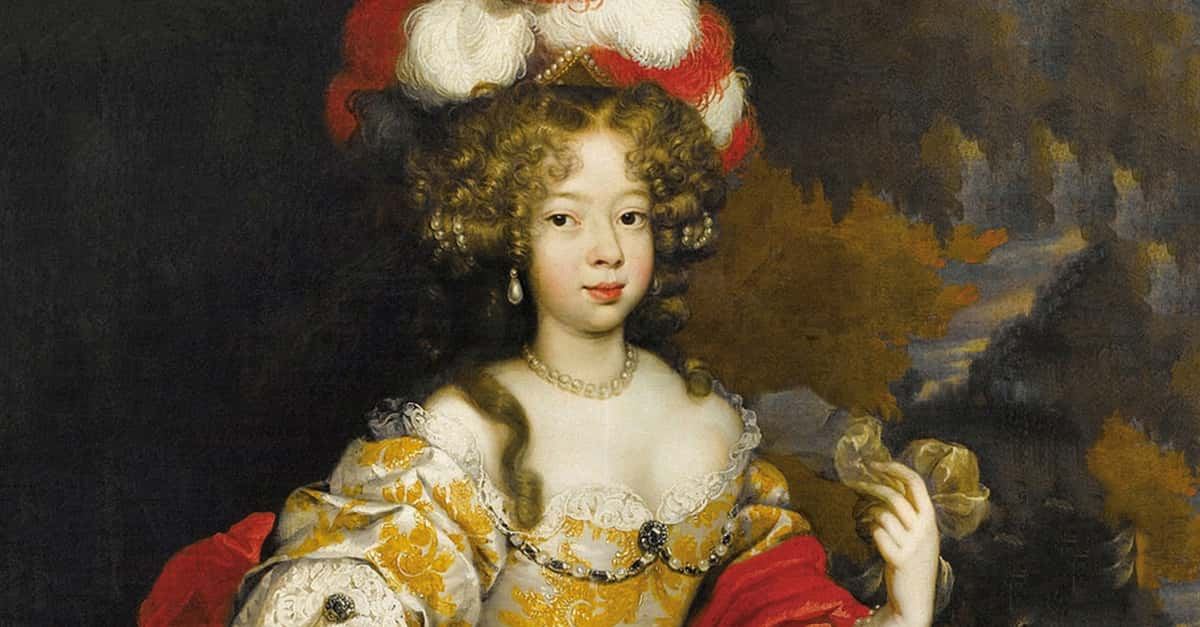
78. Not Very Ladylike
By 1666, Hortense had finally had enough of her unhinged husband Armand. Her first attempt was a failure, but in 1668, at the age of 22, Hortense tried again. With the help of her brother, she finally escaped Armand's clutches and fled her home, leaving behind her young children.
79. The Woman Who Rides Like a Man
When Mancini finally freed herself from her nightmare marriage, it became the talk of the town, and she quite promptly began gallivanting across Europe in a highly unladylike manner. She dressed as a man, drank, gambled, shot, and took lovers of both genders. This behavior likely didn’t make her many friends in society, but she must have had fun doing it.
80. Helping Hand
Although Hortense had finally left her husband, he kept all of her money, leaving her in need of some assistance. But Hortense was nothing if not resourceful, and after her desperate situation in Savoy, she set her sights on another old lover: King Charles II of England. To gain passage into England, Mancini arranged a visit with her niece as a pretext, and made sure to dress as a man to avoid any unwanted detection.
81. Reintroduced
If Hortense ever worried that Charles wouldn't taker her back, she needn't of. He almost immediately opened his (bedroom) doors to her, and she became his chief mistress. This position came with a financial perk: English money that her husband couldn’t touch.
82. Party Girl
Not everyone was as charmed by Mancini as the King. Charles's old chief mistress Louise de Kerouaille was heartbroken at her demotion. A friend of Kerouaille recalled that in one visit, "She opened her heart to me…explained to me what grief the frequent visits of the King of England to Madame de Sussex [Hortense Mancini] cause her every day."
83. Love Letter
Mancini reportedly once had a love affair with Aphra Behn, one of the first English women to make a living as a writer. Behn's "The History of the Nun" even pays romantic tribute to Mancini by saying, "how few objects are there, that can render it so entire a pleasure, as at once to hear you speak, and to look upon your Beauty?"
84. A New Playmate
While at the English court, Mancini met Anne Lennard, King Charles's illegitimate, teenaged daughter by another mistress. It seems an attraction to Hortense ran in the English royal family: she and Anne soon began a rumored affair, though Anne was married and Hortense was already chief mistress to her dear old dad.
85. A Nightgown Duel, Seriously?
Hortense and Anne's steamy tryst came to a head in a very public, very erotic fencing duel where the two women were clad only in their nightgowns. After this display of lust, Anne's husband finally stepped in and sent her off to the country, where she reportedly locked herself in her room, cried uncontrollably, and kissed a miniature portrait of Hortense at all hours of the day.
Hortense, however, wasn’t nearly as attached, and seemed to have no trouble moving on to her next affair.
86. Crossing the Line
You’ve got to give it to Hortense: the girl could seriously party, and she had no trouble keeping up with King Charles II. For his part, Charles didn't seem to mind most of Hortense's cavorting, but he certainly didn't like to see her dallying with his daughter Anne—and when Mancini took up with the Prince of Monaco shortly after, it was the last straw.
Charles ended the affair permanently and cut off his money, though that part was only temporary.
87. I’m Not Coming Back
For all the intervening years, by the end of Hortense's life her husband Armand still hadn't given up trying to force her to come back and be miserable with him. He even launched a legal suit against her. None of this, however, mattered a whit to Mancini: she defiantly stayed in England, growing older, running lively salons, and gambling away much of her money.
88. Travelling Corpse
Yet tragically, after Hortense died in 1699, the ever-watchful Armand punished her with one final indignity. As a hard-living woman, Hortense left many debts behind her, and one of her creditors decided to claim her corpse as collateral in the hopes of getting back some of what she owed. Armand saw his chance, and ruthlessly took it: he bought her corpse and paraded it around France for months.
Mercifully, he eventually stopped, and Hortense is now buried beside her beloved uncle Cardinal Mazarin.
89. Can’t Keep a Survivor Down
“Black Harriot” was one of the only, if not the only, black female brothel-owners in 18th-century London. At some point, she was a slave in Jamaica, where she was educated for high society by a plantation owner named William Lewis. Although Harriot lived among white London elites for a time, she was soon impoverished.
Putting that education and survival instinct to use, Harriot managed to escape debtors’ prison by attracting lovers. Soon, she saved up enough money to start the aforementioned bawdy house.
90. Pompadour and Circumstance
Madame de Pompadour proved to be deeply influential and beloved in her time. She not only shared the bed of the king but also shared his power, to the benefit of many. In fact, many consider her to be one of the most powerful mistresses in history.
91. Paging Ms. Poisson
Pompadour’s full name was Jeanne Antoinette Poisson. She was born on December 29, 1721.
92. Diamonds Are Forever
Peculiarly, there is a long-standing rumor that King Louis XV commissioned the “marquise cut” diamond to be shaped like Pompadour’s mouth. This diamond cut is also known as the “navette.”
93. Sick Note Unavailable
When she was 5 years old, Pompadour began her education at an Ursuline convent in Poissy. At this time, that was the best education one could gain. However, due to illness, Pompadour left the convent four years later and went home again.
94. Let’s Get Married
When Pompadour was 19 years old, she married into the family of her guardian, Le Normant de Tournehem. She married his nephew Charles Guillaume Le Normant d’Ettioles, who later became de Tournehem’s sole heir in 1740.
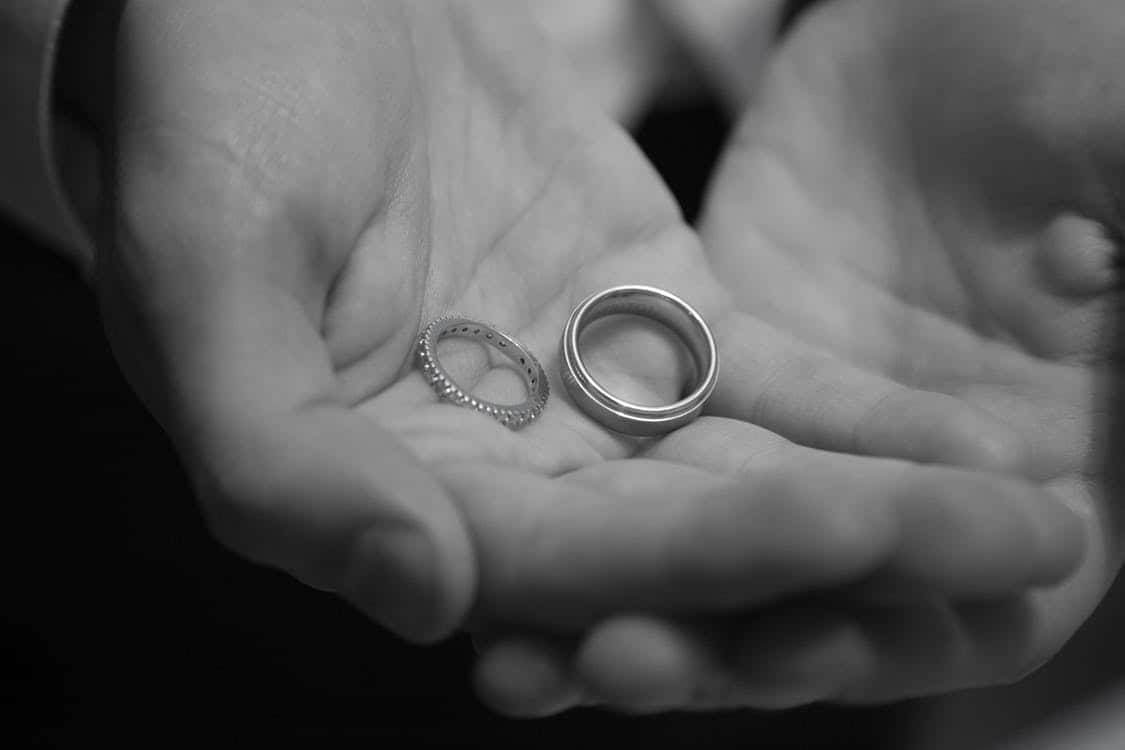 Pexels
Pexels
95. Growing up Some More
While Pompadour had reportedly been very quick-witted and bright as a child, her reputation for wit and intelligence didn’t truly emerge until she became a regular member of the salons, where she received her education in courtly behavior and wide knowledge of subjects for meaningful conversations. In other words, she just needed some time to shine.
96. Look Over Here!
Pompadour first tried to get the attention of King Louis XV when he was on a hunting expedition in 1744. The hunt was held nearby her own estate, and so she was allowed to follow the king’s entourage from a distance. However, she wasn’t content with that arrangement, so she purposefully rode in the king’s path several times. To make doubly sure he couldn’t miss her, she was wearing a different-colored outfit each time she rode past him. Subtle!
97. Her Reputation Precedes Her
Before Louis XV and Madame de Pompadour actually met, the king had actually heard of her as early as two years prior. Such was her reputation by that time as a social butterfly that the king already knew who she was before her stunt on the hunt, to be blunt.
98. Sour Spouse
Pompadour’s husband, Charles Guillaume le Normant, was deeply upset by her becoming the king’s mistress, though there was hardly anything he could do about it.
99. Jealous Lover
Interestingly, one of the main obstacles blocking Pompadour from being King Louis XV’s mistress was his then-mistress at the time. Her name was Madame de Chateauroux, and she naturally worked to prevent Louis from getting too close with Pompadour. However, this ended when Chateauroux passed away on December 8, 1744.
100. Second Meet-Cute
Pompadour was given her first formal invitation to the Palace of Versailles when a masked ball was held on February 25, 1745. The ball was held to celebrate the wedding of the Dauphin Louis de France to Maria Teresa of Spain. Louis outdid everyone else by dressing up as a yew tree, which was apparently such an ambitious costume that it required seven other courtiers to pull it off.
Pompadour attended while dressed as Diana, who was the Roman goddess of the hunt, a fitting reference to how she’d first met the king. We can assume that Louis appreciated that reference, because he chose that ball to unmask himself to her and publicly declare his affection for Pompadour. It was a milestone for their relationship.
101. Moving up in the World
Pompadour became the king’s official mistress by March of 1745, when she took up her abode in the Palace of Versailles. Her apartment was right above the king’s, in case anyone was confused by her reasons for being there.
102. Jolly Good!
Until 1881, the British Army had a regiment called the Regiment of Foot. They were nicknamed the “Pompadours” as their uniforms had purple facings. Purple had been Pompadour’s favorite color, though being soldiers, the men of the 56th spread the rumor that it had also been the color of her undergarments. Naughty, naughty.
103. Bye, Mom
Despite all the efforts of Pompadour’s mother to prepare her daughter to win the heart of the king, she did not live to see her efforts rewarded by seeing Pompadour become the chief mistress. She died on the Christmas of 1745, so she at least presumably got to see her daughter gain the honor of becoming a mistress, like every mother wishes.
104. The Mistress and the Queen
You’re probably thinking about how awkward and toxic Pompadour’s relationship with Louis XV’s wife, Queen Marie Leszcynska, must’ve been. However, their relationship was completely cordial, if the accounts are to be believed. Pompadour eagerly tried to make friends with the queen on their first meeting, and the queen accepted her graciously.
At the height of Pompadour’s influence, she was raised to serve as a lady-in-waiting to Queen Marie, which gave her a lot more power than she already held by that point.
105. Best Friends Forever
Pompadour proved herself highly important to Louis XV, due to her being the only person able to tell him the truth no matter what. In addition, Louis was prone to depressive moods and melancholy. Pompadour was always able to help him through these moods or cheer him up with activities which he liked. In response, Louis gave Pompadour a lot of power and influence in his court.
106. Playing Dress-Up
Pompadour began a trend when she would pretend to be a peasant by aping their attire. This would later be continued by the doomed Queen Marie Antoinette, who went one step further by having golden milk churns. Because you know, nothing makes you think of rustic French peasantry more than solid gold objects.
107. Speaking of Cup Size…
One long-standing legend is that the shape of the French champagne glass, also known as the coupe, was originally modeled after the size and shape of Pompadour’s breast. It remains unconfirmed whether this is true, but the story has endured across history.
108. No Parent Should Have to Bury Their Children
Pompadour and her husband, Charles Guillaume, had two children together. Tragically, they both died young. Their son died while still in infancy and their daughter, Alexandrine Le Normant D’Etiolles, died at the age of nine.
109. Nothing off the Top!
One of the most long-lasting aspects of Pompadour’s legacy is the hairstyle which was named after her. This elaborate hairstyle, which involves one’s hair being worn straight up from the forehead and sides. This hairstyle endured for centuries after Pompadour’s death. It wasn’t just a hairstyle for women, either.
Recent examples of men adopting the pompadour hairstyle in one form or another include Elvis Presley, Marlon Brando, David Beckham, Justin Timberlake, and Zac Efron.
110. A Sad Ending
In 1764, Pompadour fell ill due to tuberculosis. Louis attempted to look after her as best he could, but she tragically succumbed. She was just 42 years old.
111. Après Nous, Le Deluge
One of the most famous quotes associated with Pompadour has become an expression in the French language. Translated, it means “after us, the flood.” This statement was made by Pompadour to comfort her love, Louis, after France’s terrible defeat at the Battle of Rossbach in 1757. The statement has two possible meanings. Either it is a declaration that everything will collapse after Louis’ reign, or it is a declaration that it doesn’t matter what happens after Louis’ reign.
112. Self-Fulfilling Prophecy?
When Pompadour was a little girl, she was taken to a fortune teller by her mother. The fortune teller allegedly foretold that Pompadour “would one day reign over the heart of a king.” Pompadour would later be groomed to fulfill that prophecy by becoming the mistress of King Louis XV. She also gained a new nickname which would stay with her for the rest of her life: reinette.
In French, this word means “little queen,” quite an ambitious name for such a little girl!
113. Bibliographic Friends With Benefits
When the poet Percy Bysshe Shelley starting hooking up with Frankenstein author, Mary Godwin (later to be Mary Shelley), he wasn’t exactly unattached. In fact, Shelley was married. Shelley and Godwin did, eventually, tie the knot to each other—some three weeks after Shelley’s very pregnant wife was found self-drowned in a river.
114. Rising up in the Ranks
Charlotte Hayes is one of the most infamous courtesans in Georgian English history. Born in the lowest poverty, she died with a massive fortune, royal connections, and ownership of arguably the most famous bawdy house in Georgian London: the Madam of the King’s Place brothel (We’re not sure that royal seal of approval is official…).
115. Beginner’s Yuck
In her own words, Charlotte Hayes apparently sold her own “first time” over “thousands of times.” She was quoted as referring to virginity as “easily made as pudding.” For those who can’t connect the dots yet: she faked it with NSFW and probably edible means.
116. Let's Take a Selfie
Virginia Oldoini—known better to history as the Countess of Castiglione—might be the original Queen of the Selfie. The Italian aristocrat’s legendary beauty and photographic adventures led to her reputation as history’s first modern fashion model. Of course, she didn’t get by on looks alone, though they certainly helped her from time to time.
117. Skip to the End
Born to a family of minor nobles in Tuscany on 22 March 1837, she was formally named “Virginia Elisabetta Luisa Carlotta Antonietta Teresa Maria Oldoïni.” Understandably, the future spy and model was known to her loved ones more simply as “Nicchia.”
118. Sow Your Wild Oats Before You Spit Them out
Virginia Oldoini earned her famous name and title through marriage. At the age of 17, she was wed to Count Francesco Verasis di Castiglione, who was 12 years older. They only had one child, a son named Giorgio. Right before her arranged marriage to this older man, Oldoini embarked on an affair with a naval officer, which suggests she desired things beyond domestic bliss from the beginning.
119. Belle of the Ball
Oldoini followed her husband to the court of King Victor Emmanuel II of Sardinia-Piedmont (today we just call it “Italy”). The Countess quickly outshined her hubby, winning ministers and courtiers alike over with her charm. In fact, she was known to the court as “la divina contessa.”
120. CIA: Cute Intelligence Agency
Oldoini’s true career, however, began when she was “discovered” by her cousin, Count di Cavour. Her first gig wasn’t for modeling: It was for espionage. Cavour saw the value of Oldoini’s charms and singled her out as the perfect candidate to deploy to the Parisian court of Napoleon III. Castiglione soon became the French ruler’s mistress.
121. I’m Keeping the Title
Oldoini’s husband did not take well to his wife becoming a spy and seducing the French emperor. Their very public affair led him to demand a marital separation. Nevertheless, she would address herself as the “Countess” for the rest of her days…
122. Broken Heart Queens Club
By 1860, Oldoini’s affair with Napoleon III had soured, and she had completely lost favor at his court. The reasons for her sudden fall from grace remain a private mystery.
123. The Eyes Have It
To no one’s surprise, the Countess of Castiglione met the Eurocentric beauty standards of her day. She is typically described as a wavy-haired blonde with pale skin, delicate features, and an oval face. According to lore, her eyes could change color from green to an almost supernaturally blue-violet. Pretty handy trick to have if you’re a model and spy.
124. Dress up, Not Mess up
Not all spies are subtle. Case in point: The Countess of Castiglione favored extravagant costumes. She became notorious for her elaborate entrances, which sometimes included a “Queen of Hearts”-style outfit.
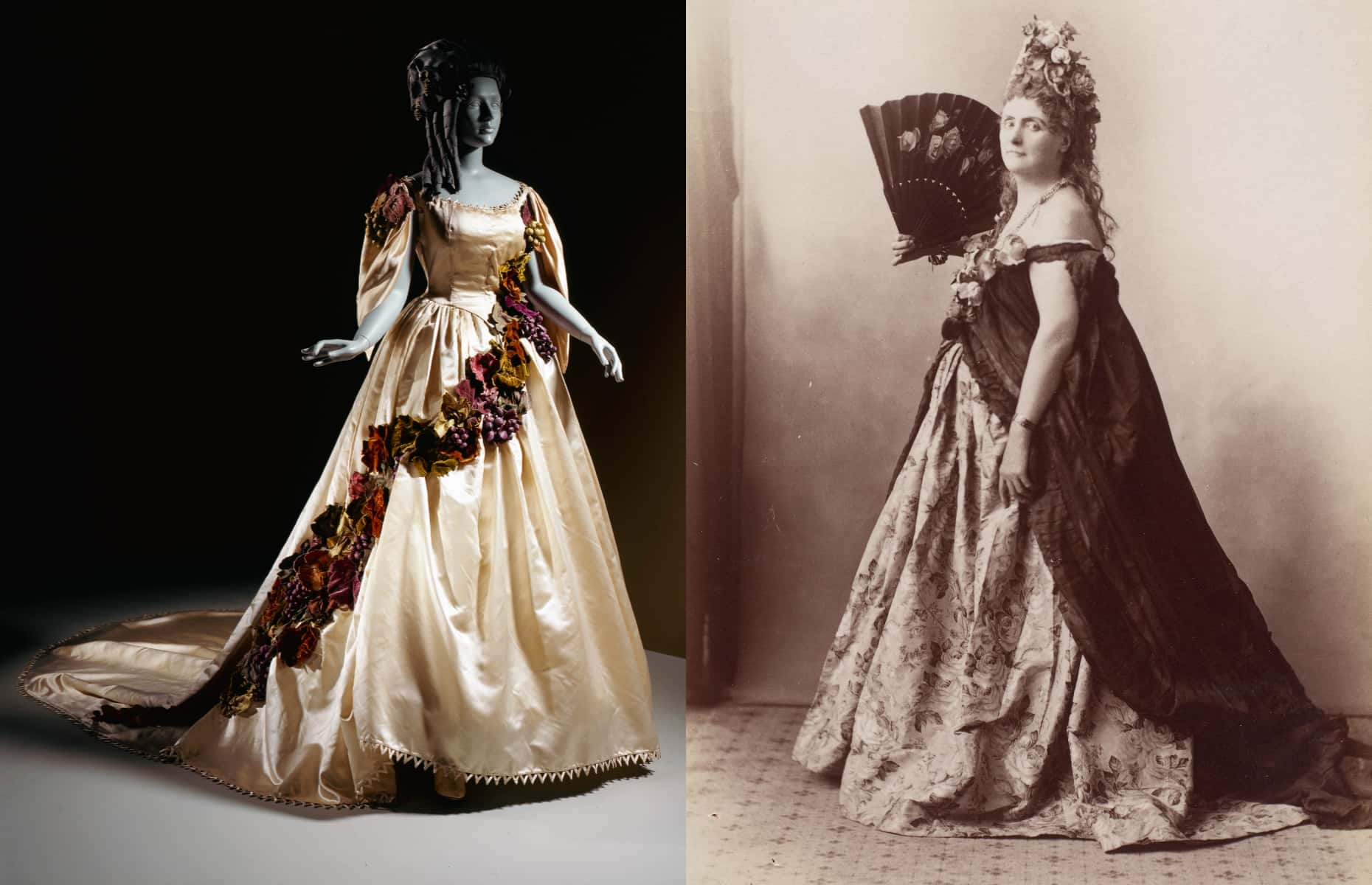
125. The Original Influencer
Oldoini’s modeling career began when she was still royal mistress at Napoleon’s court. Starting in 1856, she sat for court photographers Mayer and Pierson. Her relationship with Pierre-Louis Pierson would go on for four decades, and produced over 700 photographs. Talk about leaving a legacy that you can look back on.
126. This Little Piggy Asked to Be Censored
Some of Oldoini’s photos put her in “risqué” positions (at least by 19th century standards). In such scandalous poses that—gasp!—exposed her bare feet and legs, her head is cropped out.
127. One of the Boys
Despite her own feminine charm, the Countess of Castiglione was not fond of the ladies. At those French court gatherings, she often refused to even speak to other women. Maybe the OG beauty queen didn’t like competition…or she only had time to deal with the country’s most powerful. In 19th-century Europe, this often translated to “men only.” Sorry, girls.
128. Too Hot to Be a Writer
At one point, the Countess tried her hand at writing. Her autobiography was to be humbly titled The Most Beautiful Woman of the Century. Tragically, she never completed the book. She was probably too busy being beautiful.
129. The Conceit Has Limits
The Countess’s legendary charm was not universally effective. Someone else observed that while she was definitely beautiful, that self-obsession streak could wear thin, and “after a few moments…she began to get on your nerves.”
130. Mommy’s Little Co-Star
For most of his life, it appears the Countess’s son Giorgio remained in his eccentric mother’s custody. It’s theorized that he is even in some of her photos. In certain shoots, the Countess of Castiglione is posing with a child who is also extravagantly dressed. It’s not for certain whether this is Giorgio—but I’m pressed to imagine other children who were just lying around and waiting to be props.
131. Ugly Selfie Challenge
Contrary to the image of her as a vain glamor girl, not every photo of the Countess of Castiglione showed her at her “best.” In later years, she seems okay with being photographed veiled and toothless. There exist even “ugly” photos of her laying in a coffin. To me, this willingness to be ugly speaks to some level of self-awareness and whimsy about her quirky project.
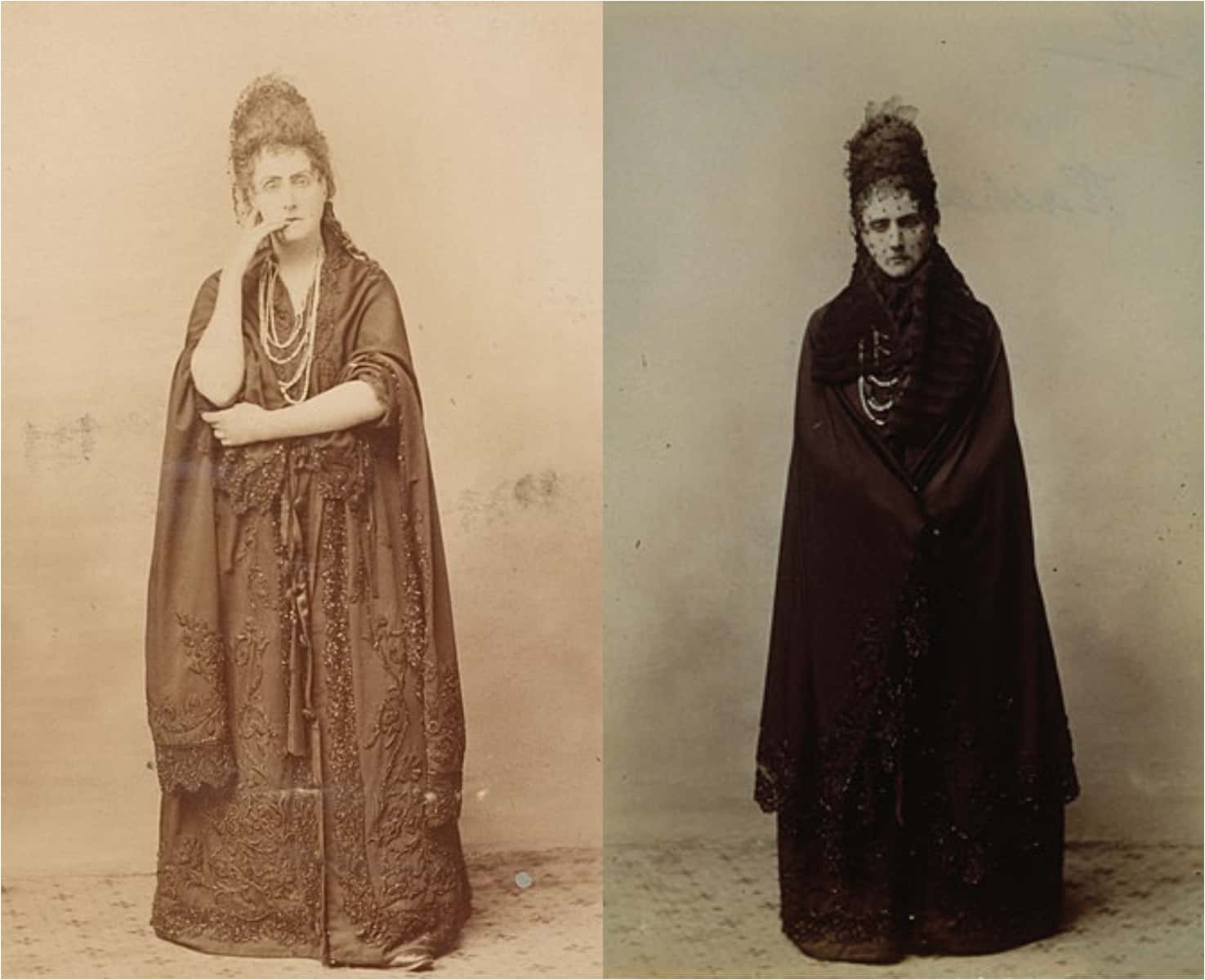
132. Twelve Hours of Hard Labor
At the height of her fame as a courtesan, the Countess could still rake it in. Reportedly, Richard Seymour Conway offered 1 million francs for just 12 hours of her “company.”
133. Non-Motion Picture Show
It was decades in the making, but the Countess was finally ready to show her photos to the public at the turn of the century. The aging model had big plans to display her collection of over 700 photos at the Exposition Universelle in 1900 in her biggest group photo display yet. Most tragically, this was not to be…
 Flickr
Flickr
134. Maybe Next Century
After a lifetime of being camera ready, Virginia Oldoini, the Countess of Castiglione, spy and mistress to rulers, passed away on November 28, 1899. She would not live to see the Exposition Universelle, where she planned to debut her photos. By dying in 1899, she also missed out on the 20th century—an era where photography would only continue to dominate media society.
135. She Wears Her Heart (and Your Hubby) on Her Sleeve
Dressed in her Queen of Hearts gown, Oldoini once scandalously entered a royal ball on the arm of her (married) lover, Emperor Napoleon III, right in front of his wife. At least the empress got one snipe in. The spurned wife reportedly gave Oldoini’s sexy outfit a once-over and told her, “The heart is a bit low, Madame.”
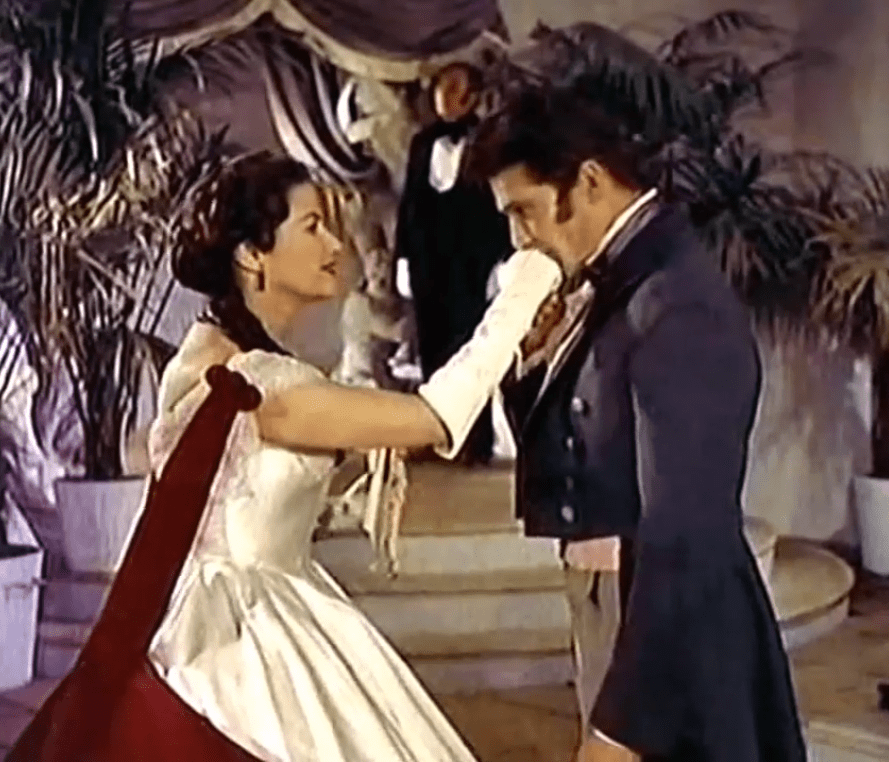 The Contessa
The Contessa
136. Putting the “Ew” in “Hugo”
The French author Victor Hugo was a notorious philanderer—but he was also a dad trying his best. These two roles came together when his son’s partner, the actress Alice Ozy, began seeing other men. In response, Hugo slept with Alice himself, thinking that the embarrassing affair would “avenge” and cheer up his son. The boy was shockingly ungrateful towards Hugo’s efforts.
137. All's Well That Ends Wells
H.G. Wells authored some of the most iconic science-fiction stories in English literature, from War of the Worlds to The Invisible Man. He also carried on numerous affairs and kept meticulous notes about them his diary. His wife, Jane, didn’t just turn a blind eye—she lent both of her ears. Jane was reported to have feelings that ranged from neutral to downright enthusiastic when it came her husband’s religiously delivered bawdy stories.
Wells would often ask for Jane’s blessing to stray, at which point Jane would deliver nothing harsher than a riotous chuckle.
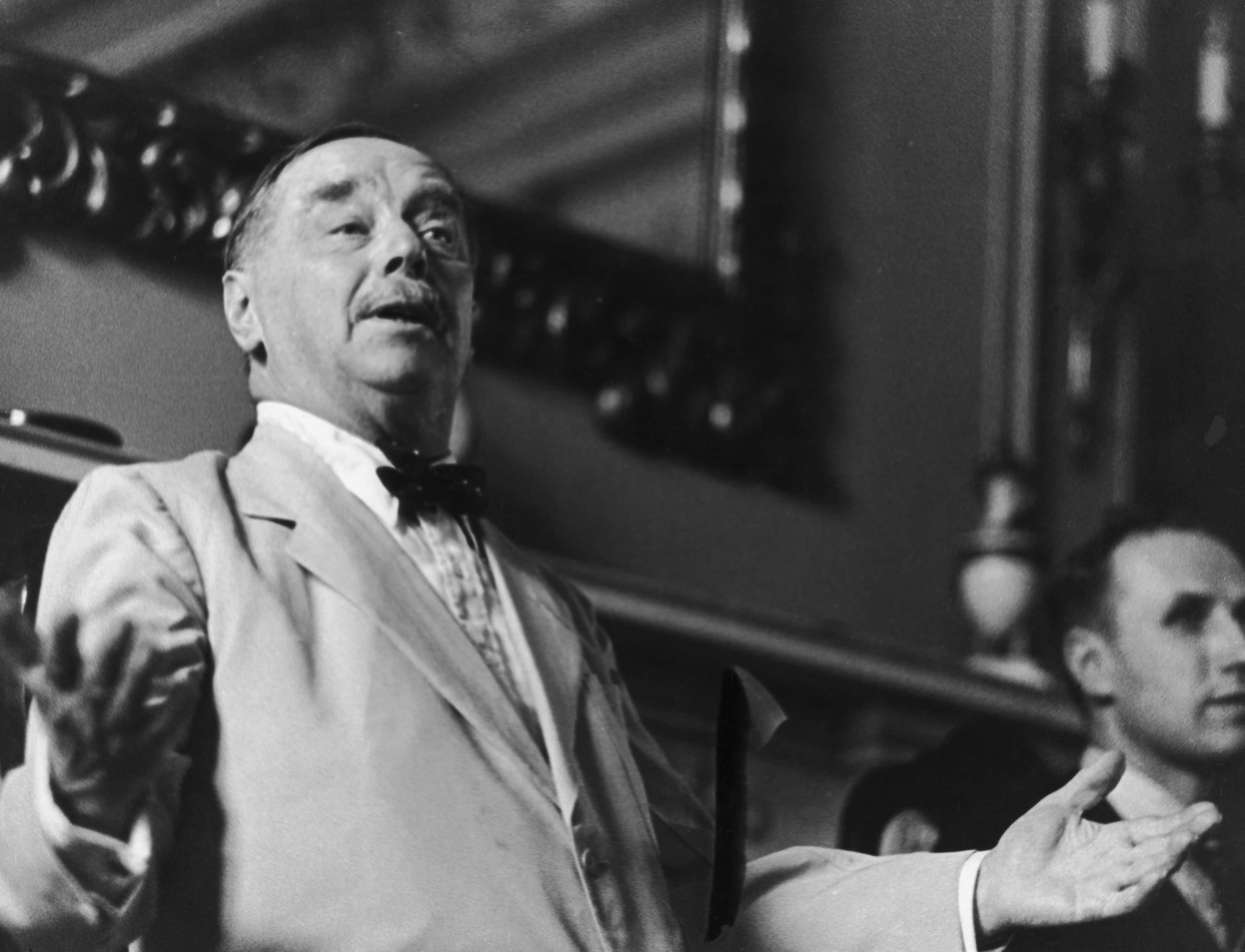 Getty Images
Getty Images
138. Big Love: International Edition
International famed pilot and daredevil had Charles Lindbergh actually had three different families across the world with three different women. Two of the mistresses, Bridget and Marietta, were sisters. Clearly, Lindbergh really wasn't afraid of anything. Even the inevitability of a callous double-life collapsing around him.
139. The PM’s Royal Connection
Queen Victoria’s son, the future Edward VII, was renowned for his extramarital partners. One of these ladies is believed to have been Lady Randolph Churchill, the mother of Prime Minister Winston Churchill.
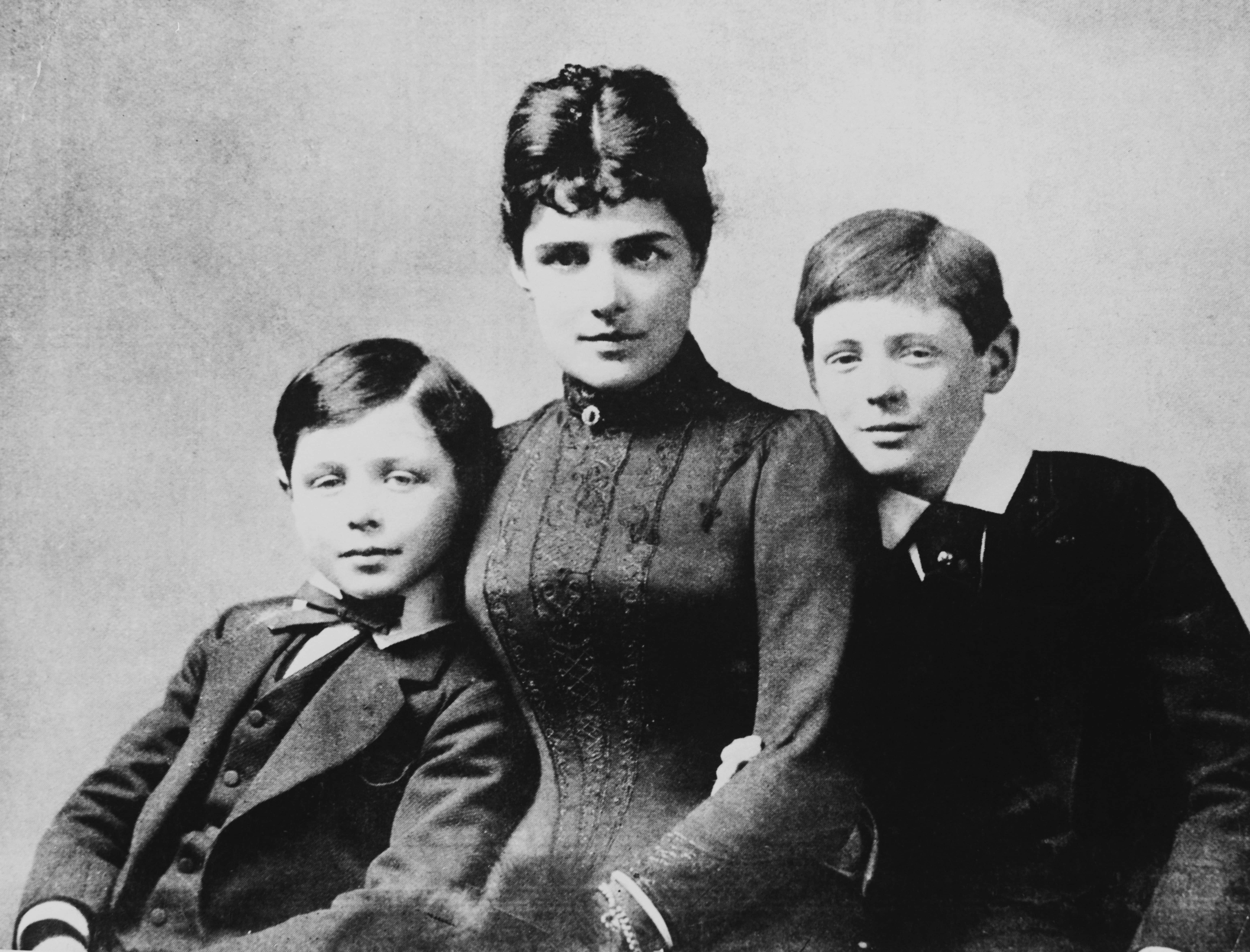 Getty Images
Getty Images
140. Let's Cool Things Down
Edward VII of England allegedly dumped his mistress, Lillie Langtry, because she jokingly dropped a piece of ice down the back of his shirt and then refused to apologize.
141. A Presidency Comes to a Close
Sadly, “Death Pump” is not the name of a rockin’ heavy metal band. Instead, it’s the cruel nickname waged upon the grieving mistress of French President, Félix Faure; the 58-year-old Faure had died in the middle of an intimate act with his 30-year-old paramour.
142. Death of a Mistress
Mary Hamilton was the royal mistress to Peter the Great, and lady-in-waiting to Empress Catherine I, when she was executed for the theft of Catherine’s jewelry, abortion, and the killing of her own infant. After she was decapitated, Peter held her head up to the crowd and, being the learned man he was, gave a lesson on anatomy before kissing her goodbye.
143. False Charges
Before her doom, Anne Boleyn was accused of adultery with 5 men (including her brother), and of plotting to murder the king and her lovers so she could marry Henry Norris. Modern historians agree that the charges brought against Boleyn that led to her execution were false and unconvincing and that Henry had her killed just because she didn't happen to have any male children.
144. Is It Her?
Despite the careful planning that went into Anne Boleyn’s execution, little to no thought was given to what should be done with her remains afterward. Not having arranged for a coffin, her remains were allegedly put into an old arrow chest, and she and her brother were buried in an unmarked grave in front of the altar at the Church of St. Peter ad Vincula.
In an interesting twist, it turned out that five other beheaded women had been buried under the altar, and it had simply been assumed that the bones found in an arrow chest there were hers. There is also a theory that her relatives had her body secretly reburied somewhere else, which based on that discovery, might have been true.
Without DNA testing, the truth will probably never be known.
145. For Witchcraft and Treason…
When Anne Boleyn was brought to the scaffold to die, she begged leave to address the crown and was granted the right to do so. Despite the limited evidence against her, she said, “Good Christian people, I am come hither to die, for according to the law, and by the law, I am judged to die, and therefore I will speak nothing against it. I am come hither to accuse no man, nor to speak anything of that, whereof I am accused and condemned to die, but I pray God save the king and send him long to reign over you, for a gentler nor a more merciful prince was there never: and to me he was ever a good, a gentle and sovereign lord. And if any person will meddle of my cause, I require them to judge the best. And thus I take my leave of the world and of you all, and I heartily desire you all to pray for me. O Lord have mercy on me, to God I commend my soul.”
As she awaited the executioner’s blade, kneeling on the block, she repeated the phrase, “To Jesus Christ I commend my soul; Lord Jesu receive my soul.”
 YouTube
YouTube
146. Imagine Swiping Left on Your Priest
Ninon de Lenclos worked at “Sun King” Louis XIV of France’s court, and could reel even holy men into bed. Notoriously, the infamous Cardinal Richelieu was going to pay 50,000 crowns just for a single night in her sneaky arms. For whatever reason, she simply ran away with the money and sent her friend to the Cardinal's bed in her stead. Awkward.
147. WWND?
King Louis XIV, then still a young boy, trusted Ninon de Lenclos with advice on matters of state. If he wasn't sure what decision to make, he would ask, "What would Ninon do?"
148. Thanks, Diane
Queen Catherine de Medici’s husband Henri II was utterly enthralled by his mistress, Diane de Poitiers. In fact, it was Poitiers who had to remind Henri of his royal baby-making “duties,” and bid him to spend more (re)productive time with his wife. You know you're doing something wrong when your mistress starts telling you to sleep with your wife.
149. All for Love
In 1889, the 17-year-old Baroness Marie Alexandrine von Vetsera was found shot to death alongside her lover, the married Prince Rudolph of Austria, at their Mayerling country lodge. It was an apparent murder-suicide; but to this day, the sequence and chain of events leading up to their deaths remain ambiguous. Although some assumed the prince murdered his lover, recently discovered letters from the Baroness to her mother indicate that she was planning to commit suicide alongside the prince "out of love."
150. Baby Steps Towards Peerage
On December 21, 1676, infamous mistress Nell Gwyn’s only surviving son, Charles, finally got a title befitting his status as a king’s (illegitimate) son. How Charles became the Earl of Burford is attached to two unseemly stories. The most popular? One day, her lover King Charles II came to visit Gwyn and his son, when she called over their offspring with a “Come here, you little bastard, and say hello to your father.”
Aghast at her conduct, the King received this explanation from Gwyn: "Your Majesty has given me no other name by which to call him." And thus, Charles gave his son a proper title: the Earl of Buford.
151. No Time to Brainstorm When Skulls Are at Stake
The second story of how Gwyn secured a noble title for her son is more violent. In this tale, she holds the baby Charles out a window and threatens to drop him unless King Charles elevates their son to the peerage. Instinctually, King Charles cried, “God save the Earl of Buford!” and I guess they went with that.
152. From Lover to Friend
While on the outside, their relationship was happy and healthy, modern historians now know that Madame de Pompadour and King Louis hid a dark secret behind bedroom doors. From 1750 onwards, Pompadour ceased being a sexual partner to Louis XV. They no longer actually made love. This was attributed to her very poor health.
Over the years as Louis XV’s mistress, she suffered three miscarriages, and also “suffered the after-effects of whooping cough, recurring colds and bronchitis, spitting blood, … as well as an unconfirmed case of leucorrhoea.” However, her bond to Louis did not dim, as she served as a “friend of the King,” maintaining her influence at court.
153. Connections Stronger Than Seduction
Contrary to what you might think, Pompadour did not block King Louis XV from seeking out other mistresses when she no longer held that position. She reportedly maintained that she was uninterested in what Louis got up to with other women, so long as she kept a hold on his heart. If such was the case, Pompadour was successful: Louis was loyal to her until her death.
154. Putting the “Snap” in Snapchat
The Countess of Castiglione's fashion shoots also doubled as warning shots to her enemies. When her estranged husband tried to claim custody of their son, she sent him a photo herself in loose hair…and a knife in her hand. Naturally, the photo was titled “La Vengeance.” Do you think her husband eventually got the point?
 Shutterstock
Shutterstock
155. If I Can’t See Me, You Can’t Either
The Countess did not cope well with aging. Unwilling to confront her fading looks, she spent her final years in black-colored rooms with closed blinds and no mirrors. Not even she was entitled look at the waning beauty of the Countess of Castiglione.
 Shutterstock
Shutterstock
156. Not a Morning Person
In her later years, the Countess did leave her house now and then—but only under veils, and only with the cover of darkness to hide her “shameful” age.
157. The Prodigal Son Doesn’t Return
The Countess of Castiglione’s self-seclusion might have been rooted in more than vanity. In 1879, her beloved and only son Giorgio passed away from smallpox, predeceasing his mother by 20 years. Suddenly, her regime of funeral black rooms, veils, and never leaving the house makes tragic sense…
Sources: 1, 2, 3, 4, 5, 6, 7, 8, 9, 10, 11, 12, 13, 14, 15, 16, 17, 18, 19, 20, 21, 22, 23, 24, 25, 26, 27, 28, 29, 30, 31, 32, 33, 34, 35, 36, 37, 38, 39, 40, 41, 42, 43, 44, 45, 46, 47, 48, 49, 50, 51, 52, 53, 54, 55, 56, 57, 58, 59, 60, 61, 62, 63, 64, 65, 66, 67, 68, 69, 70, 71, 72, 73, 74, 75, 76, 77, 78, 79, 80, 81, 82, 83, 84, 85, 86, 87, 88, 89, 90, 91, 92, 93, 94, 95

